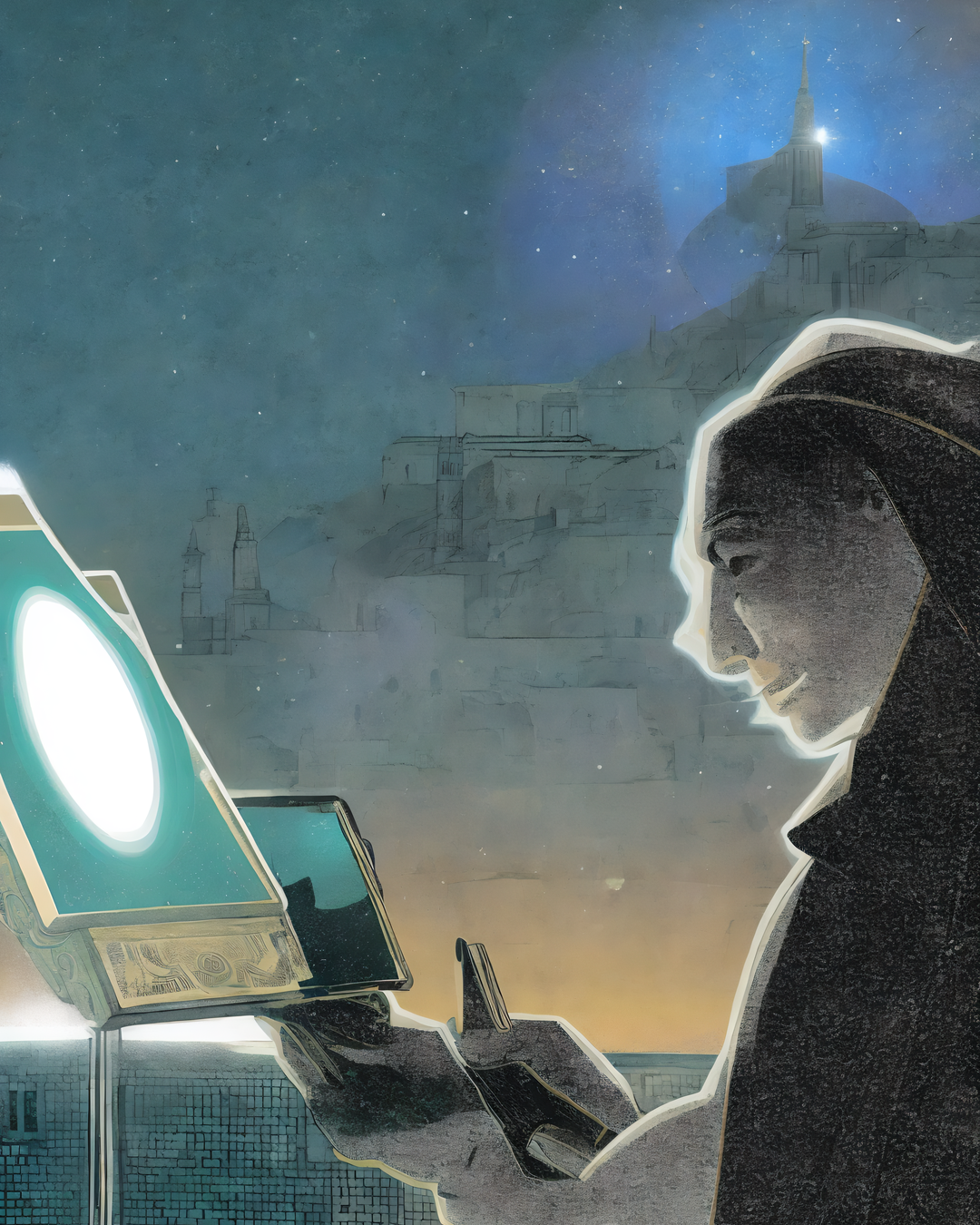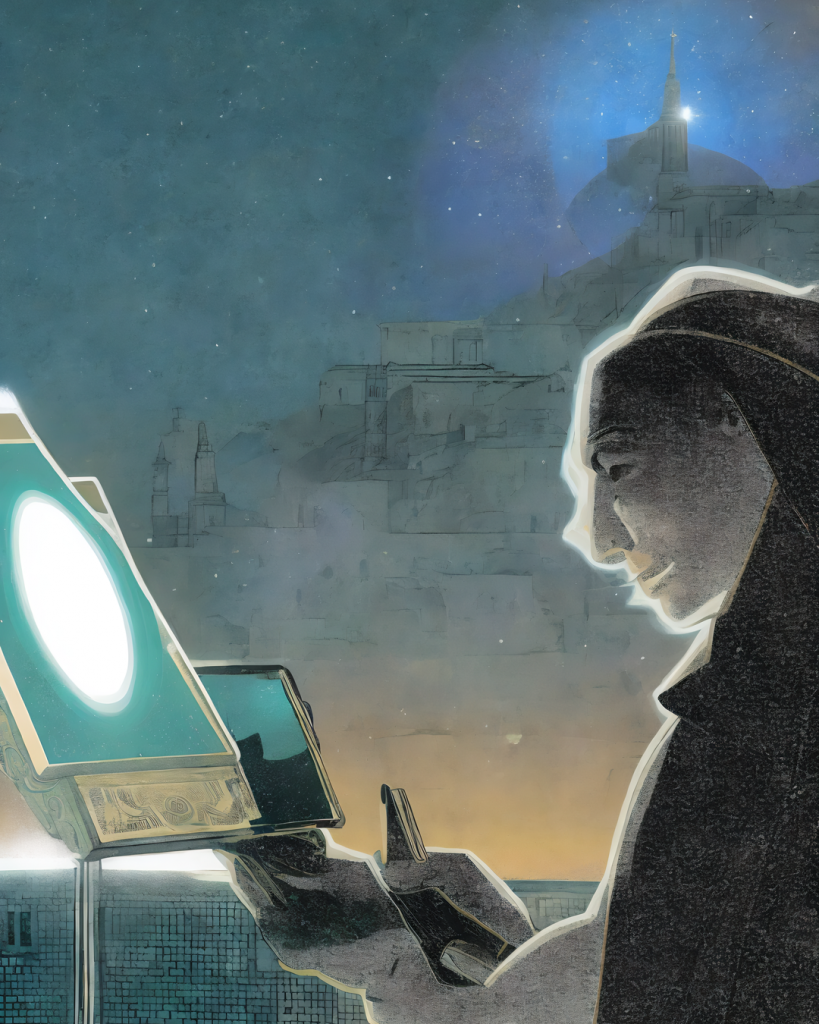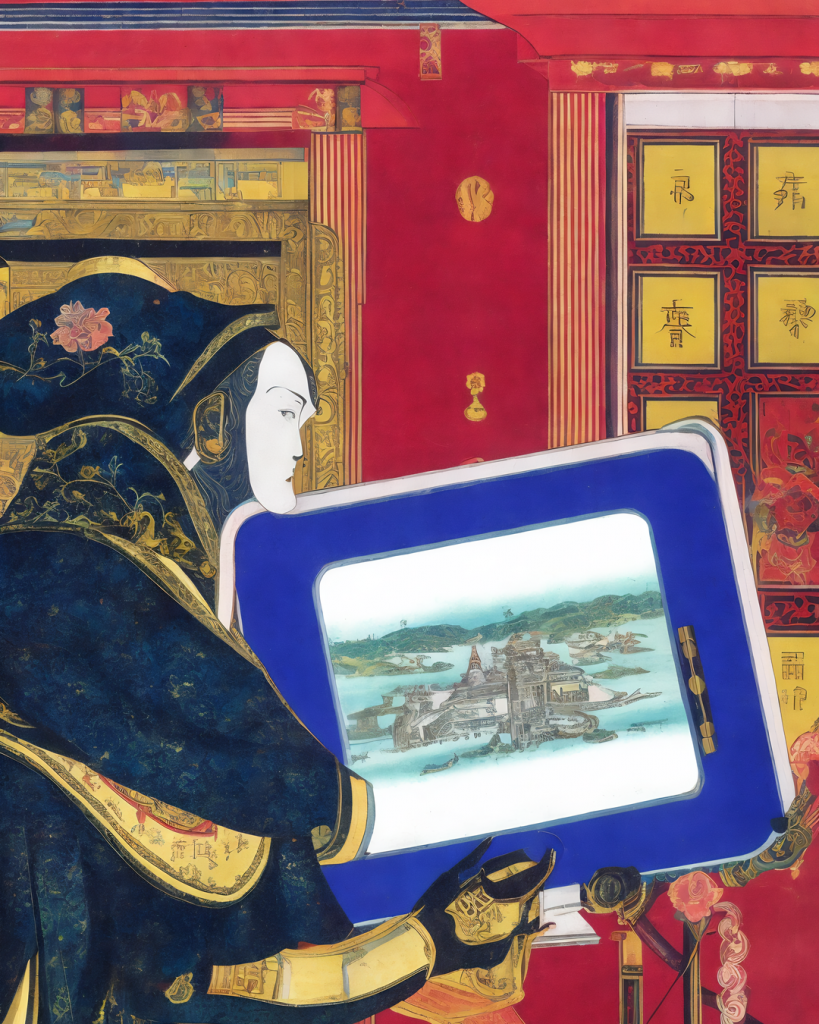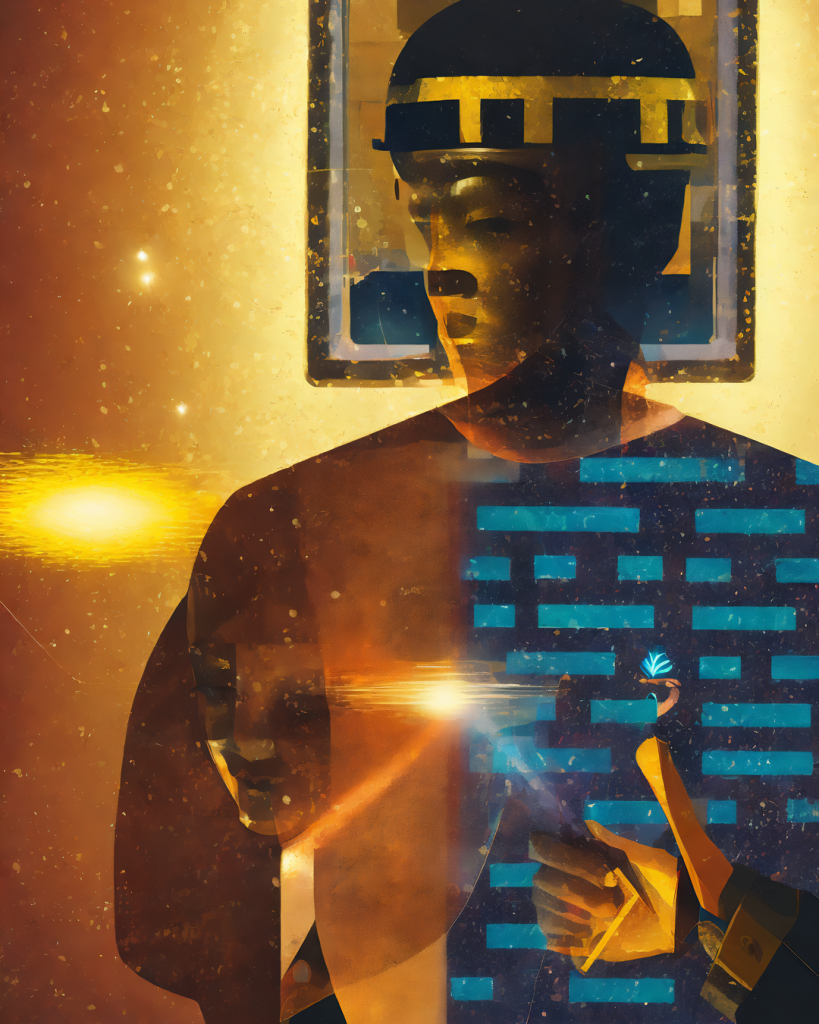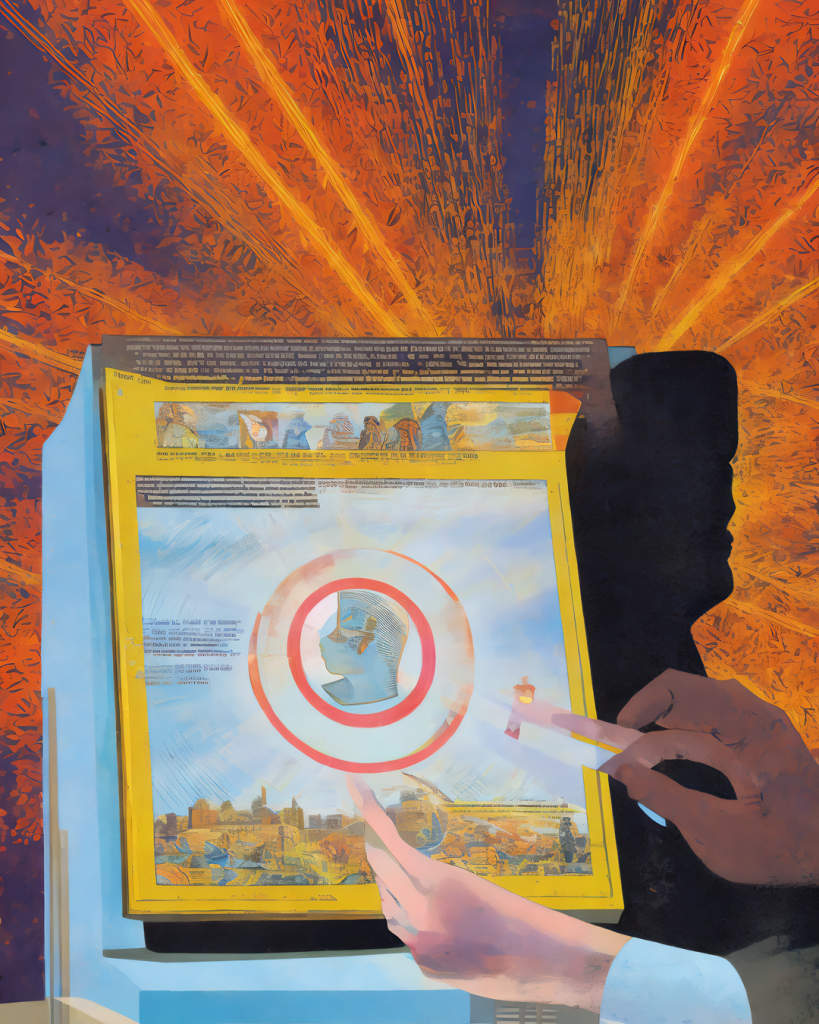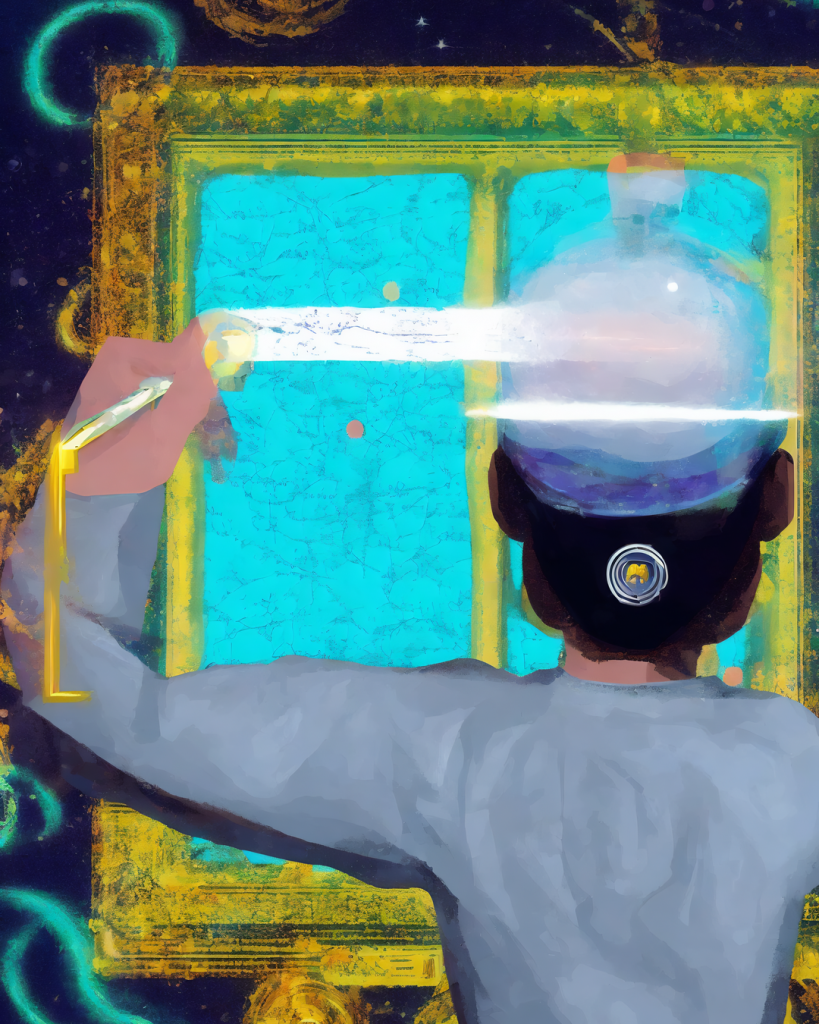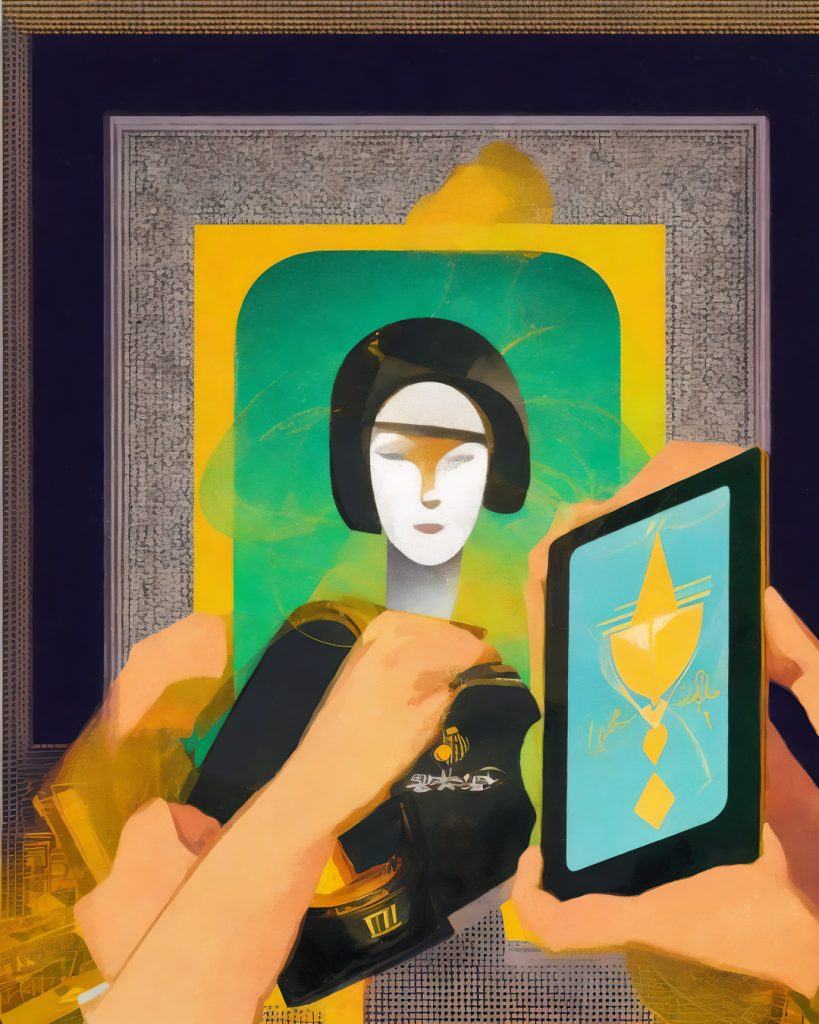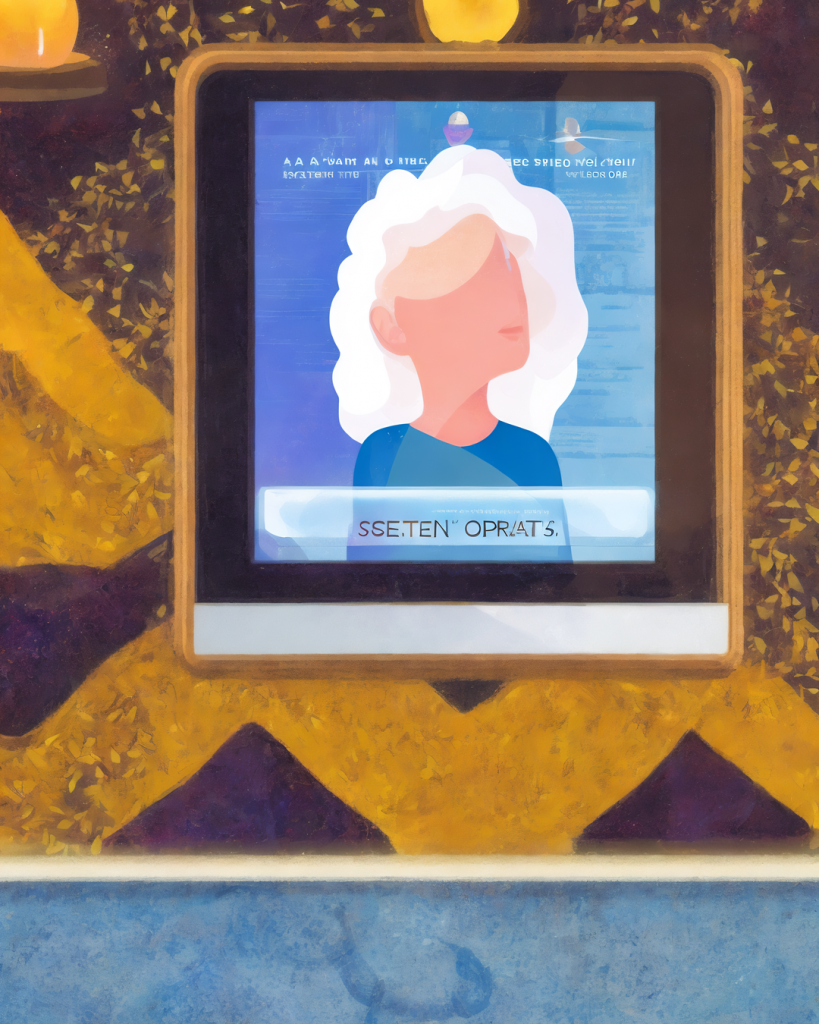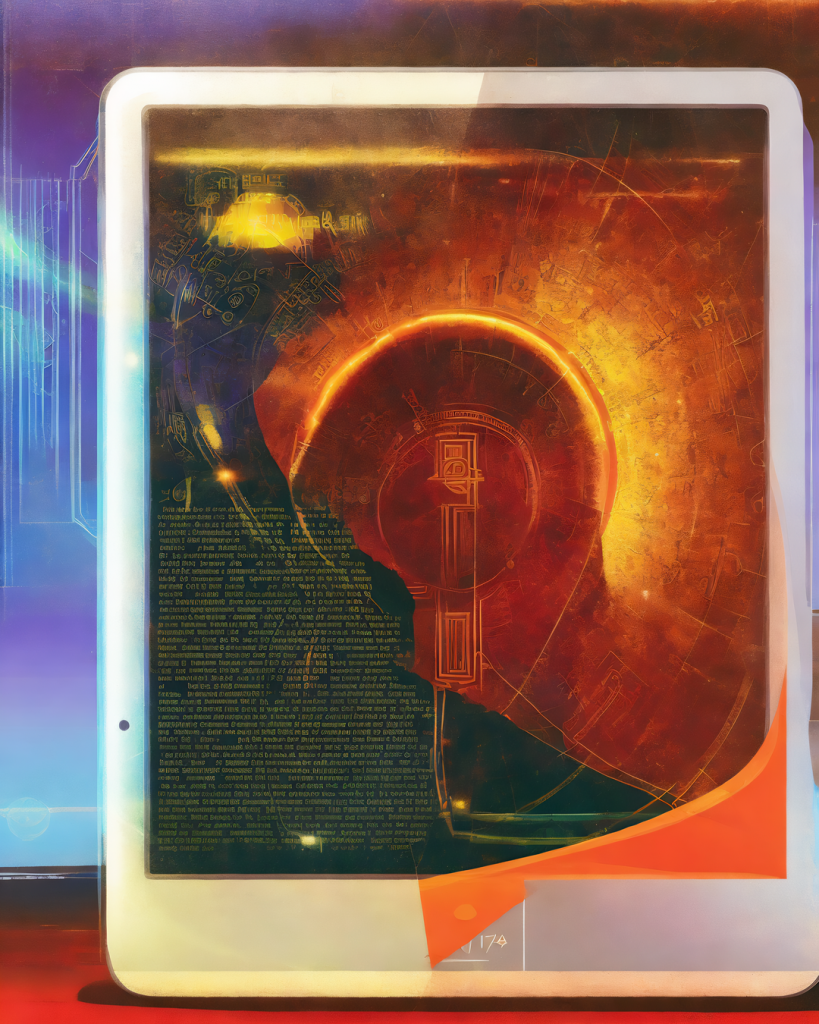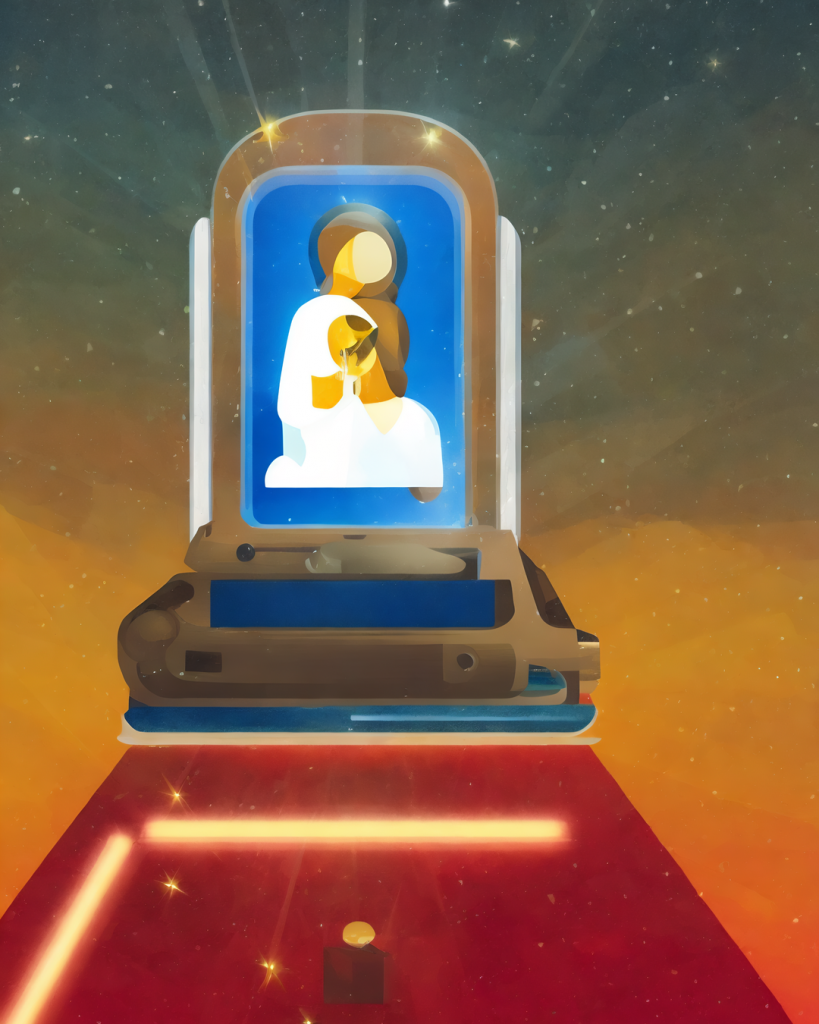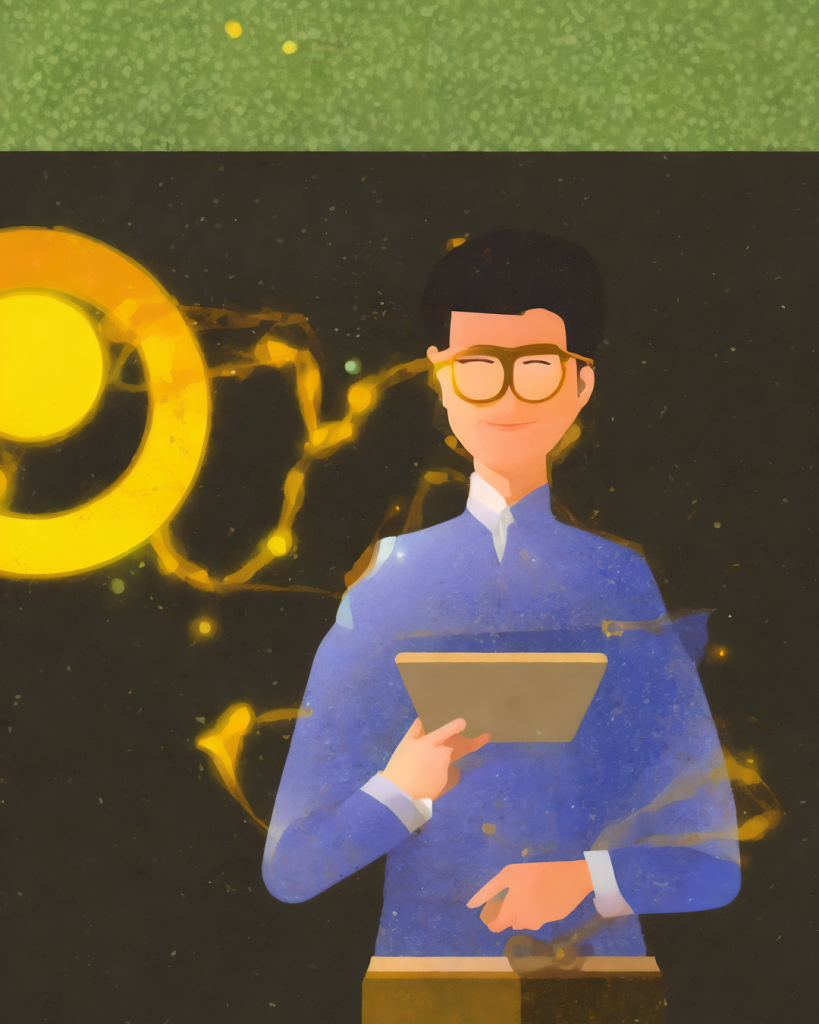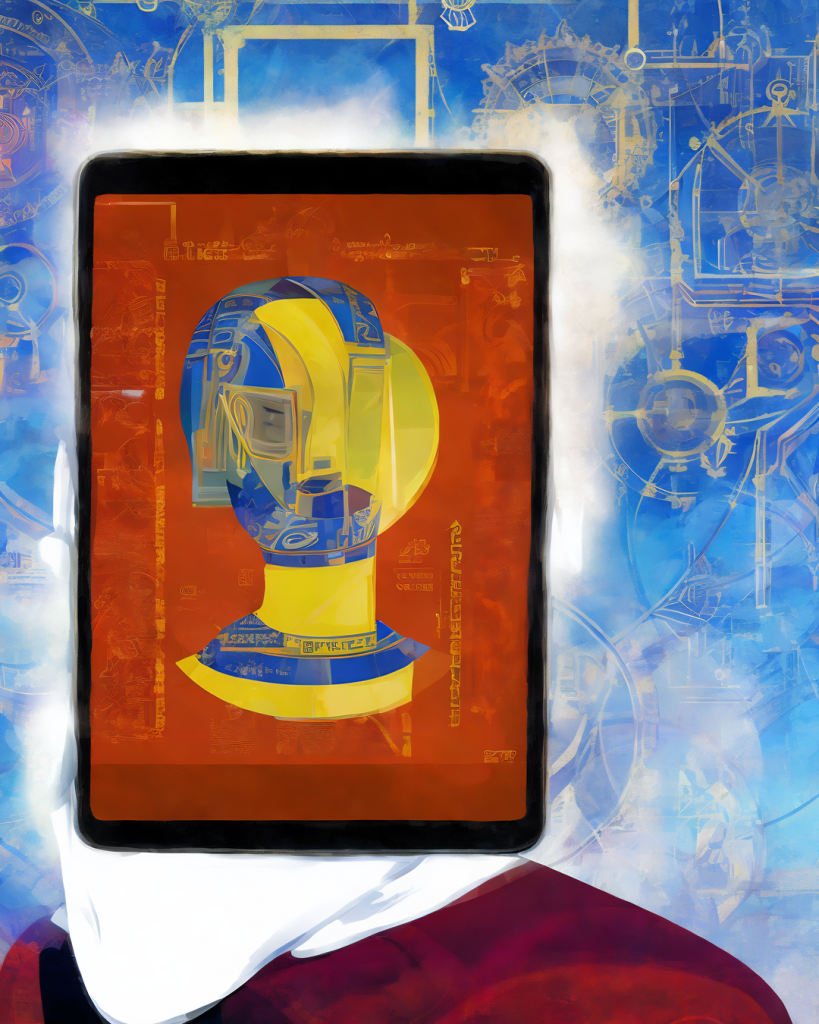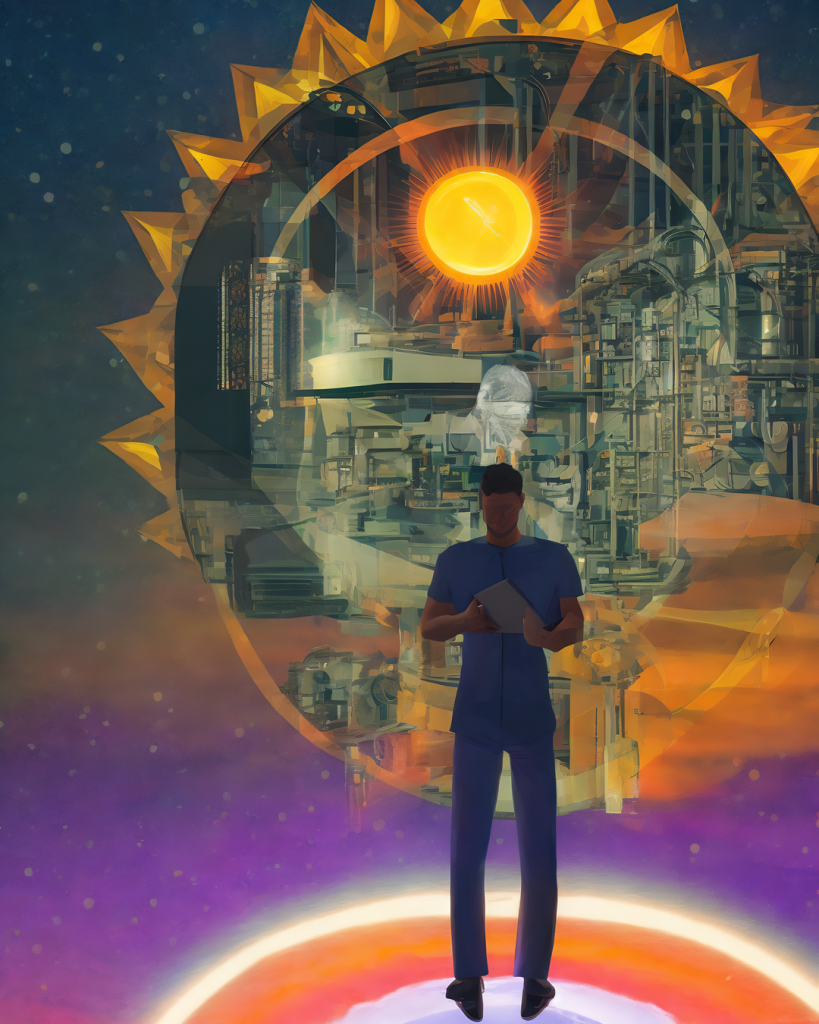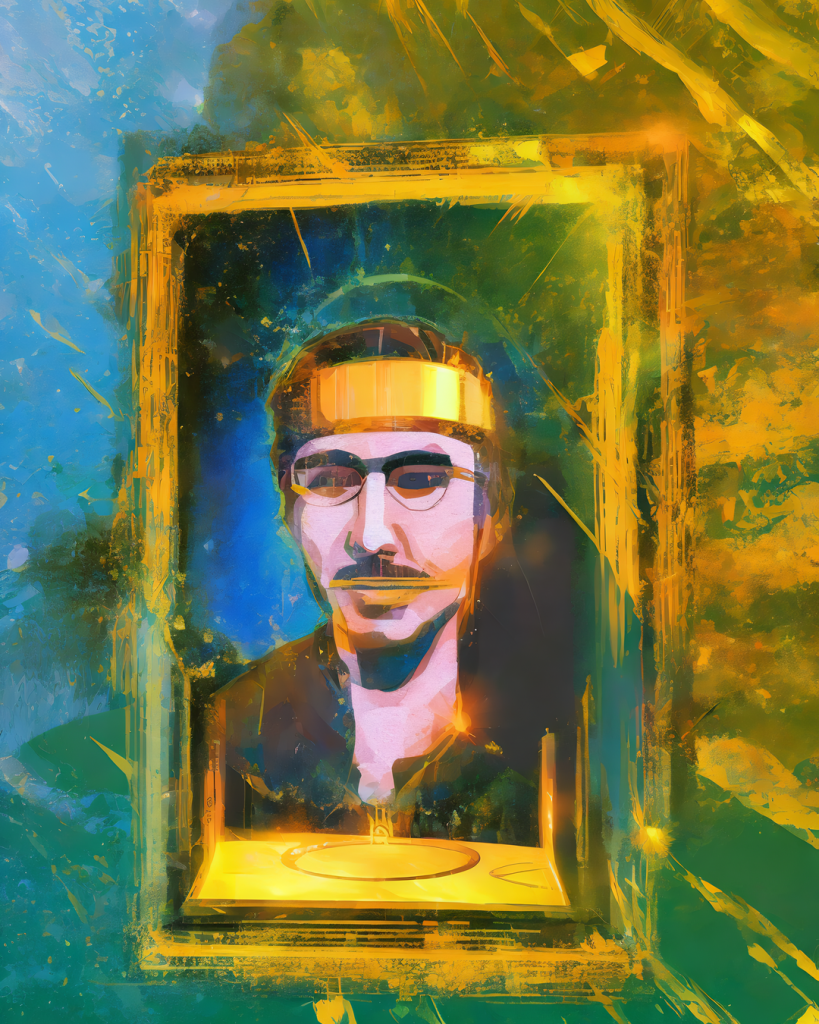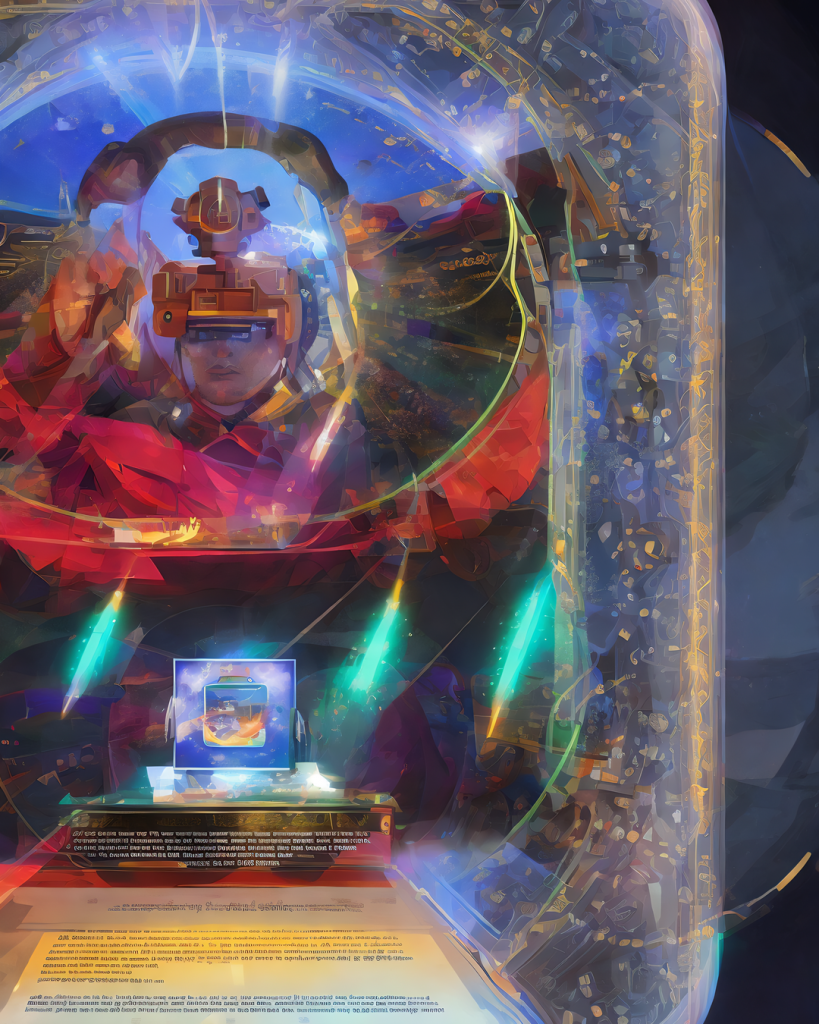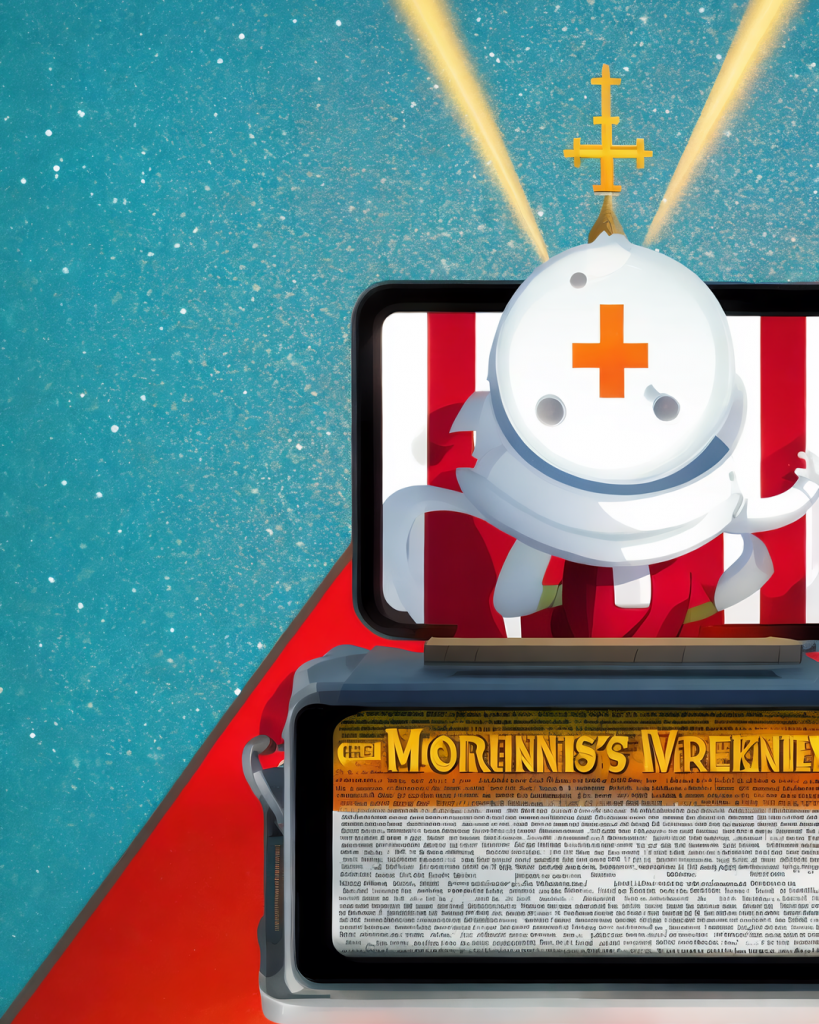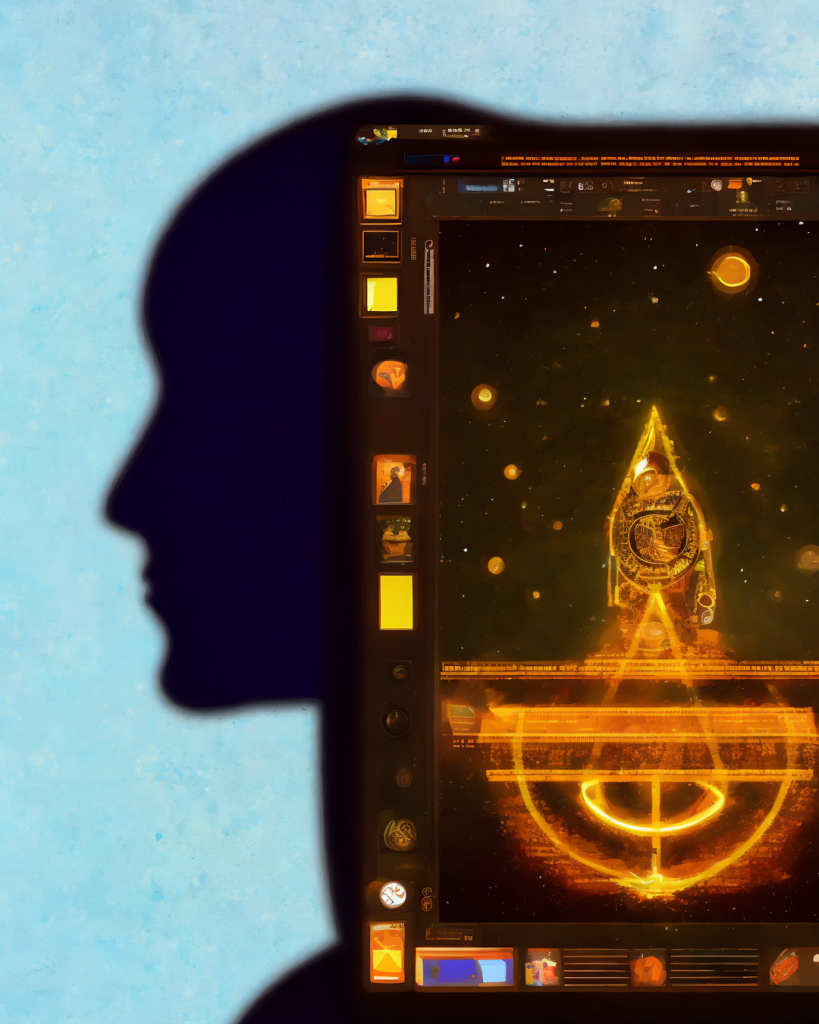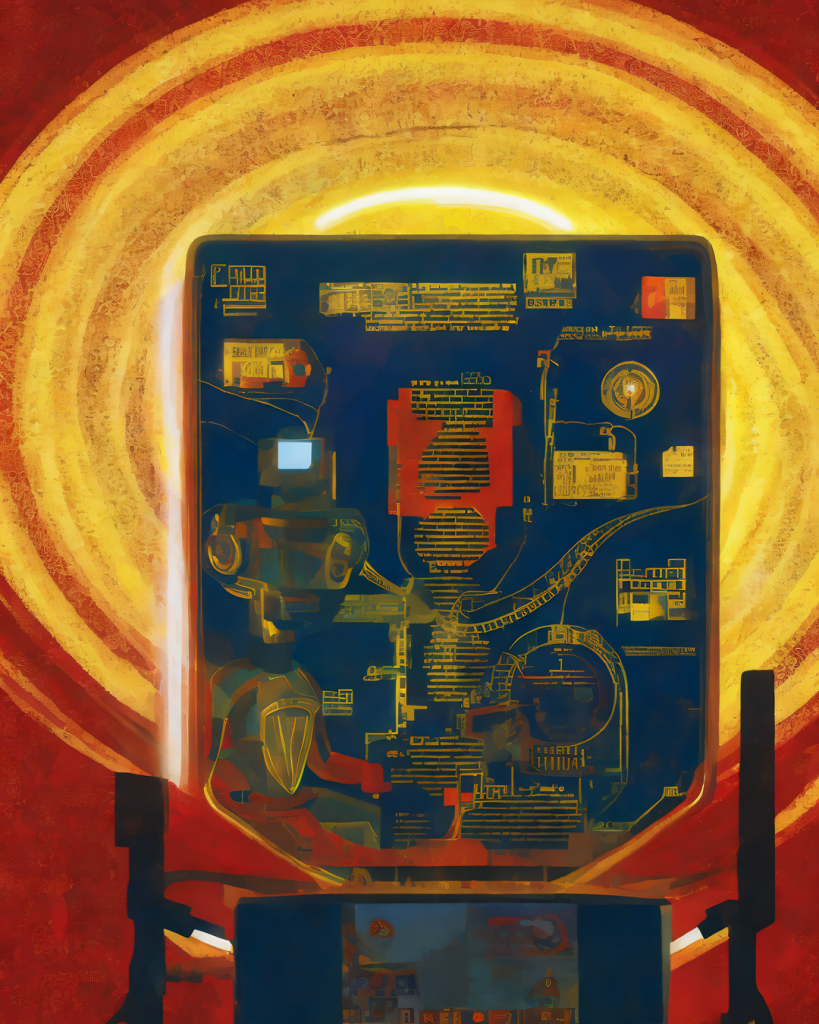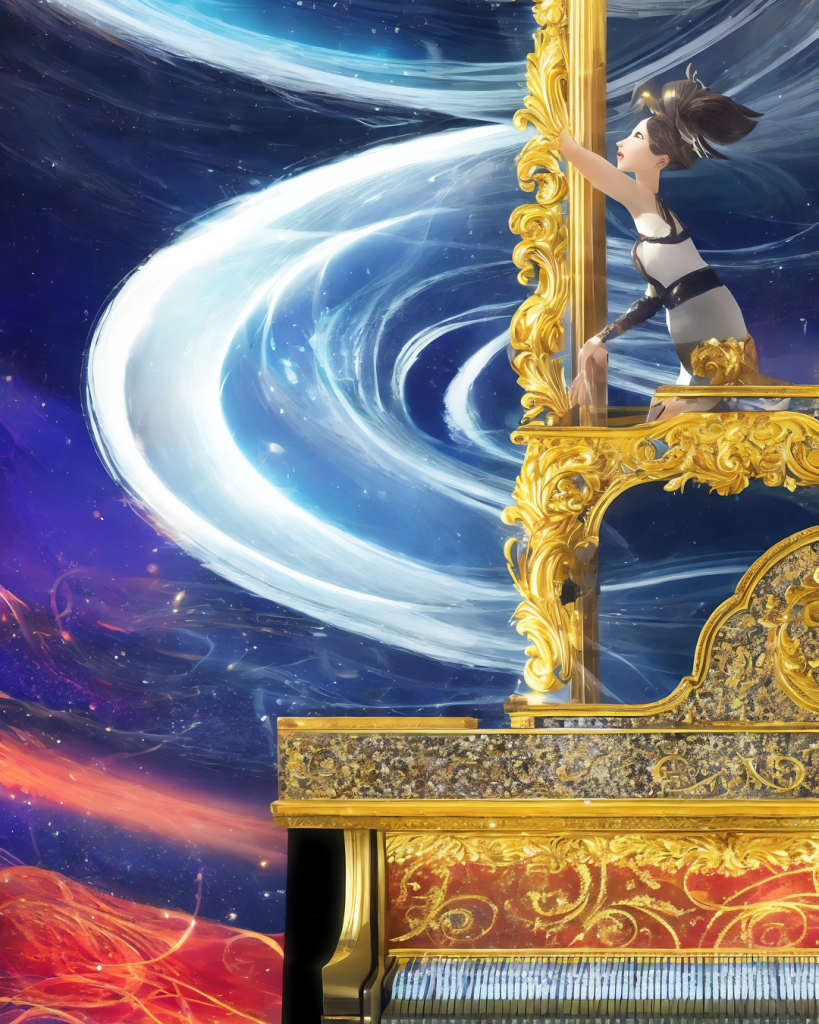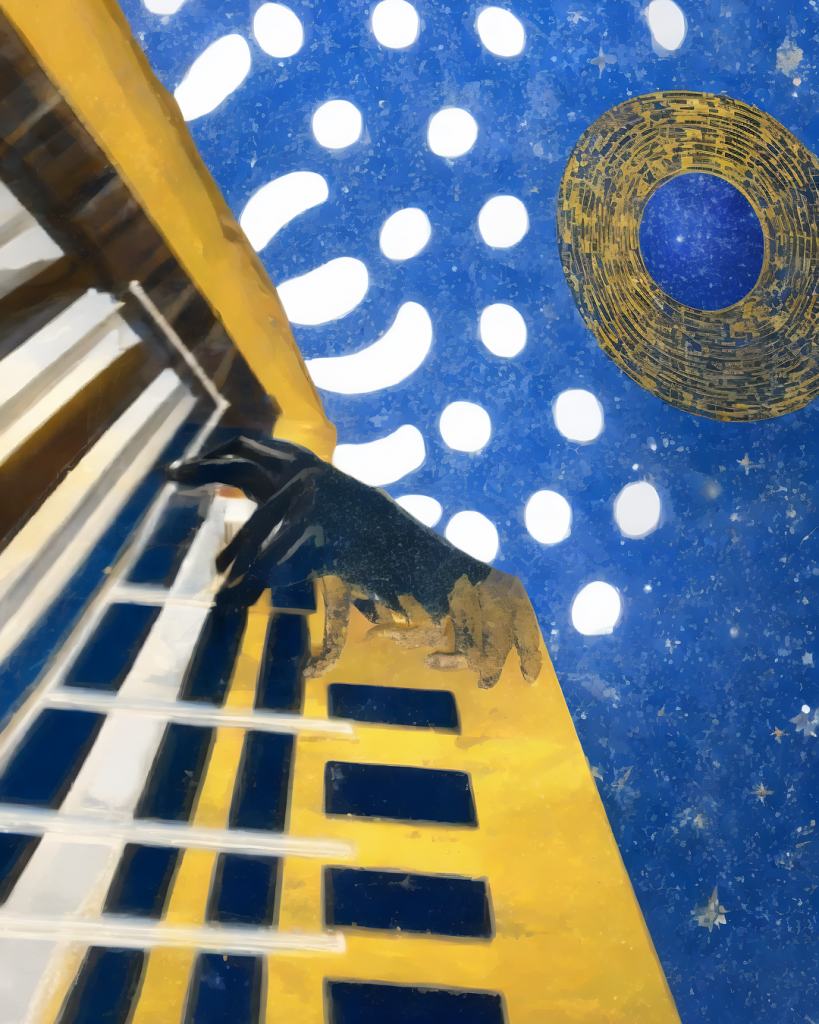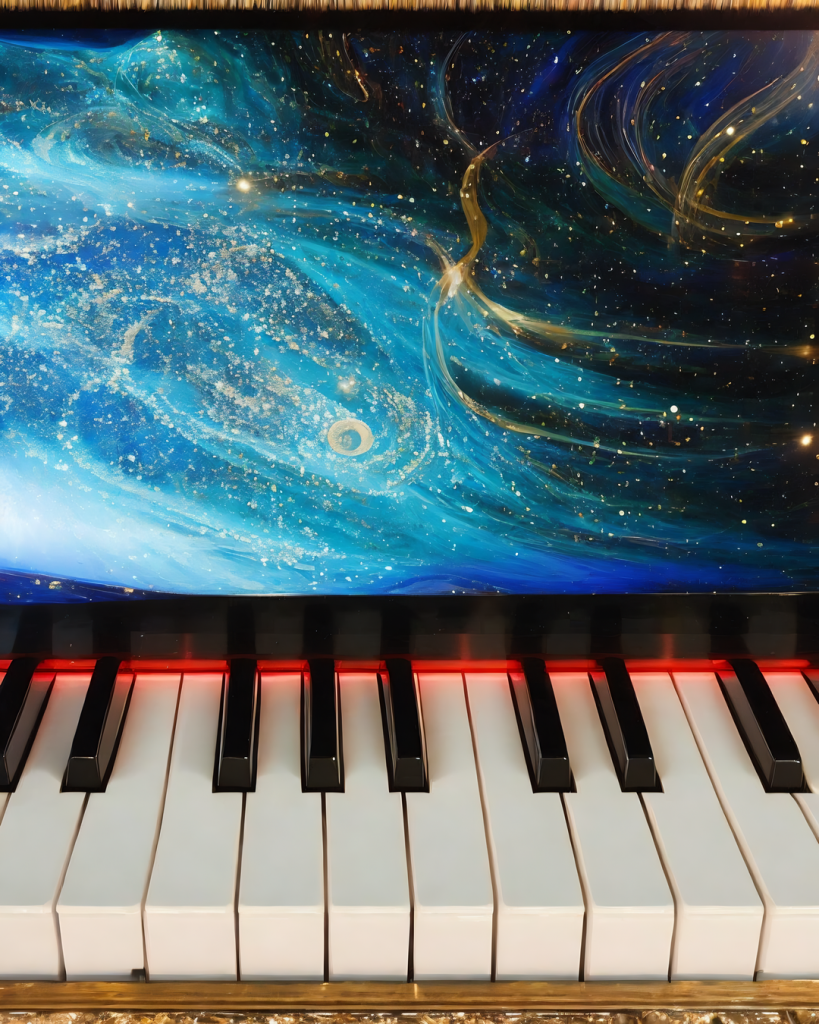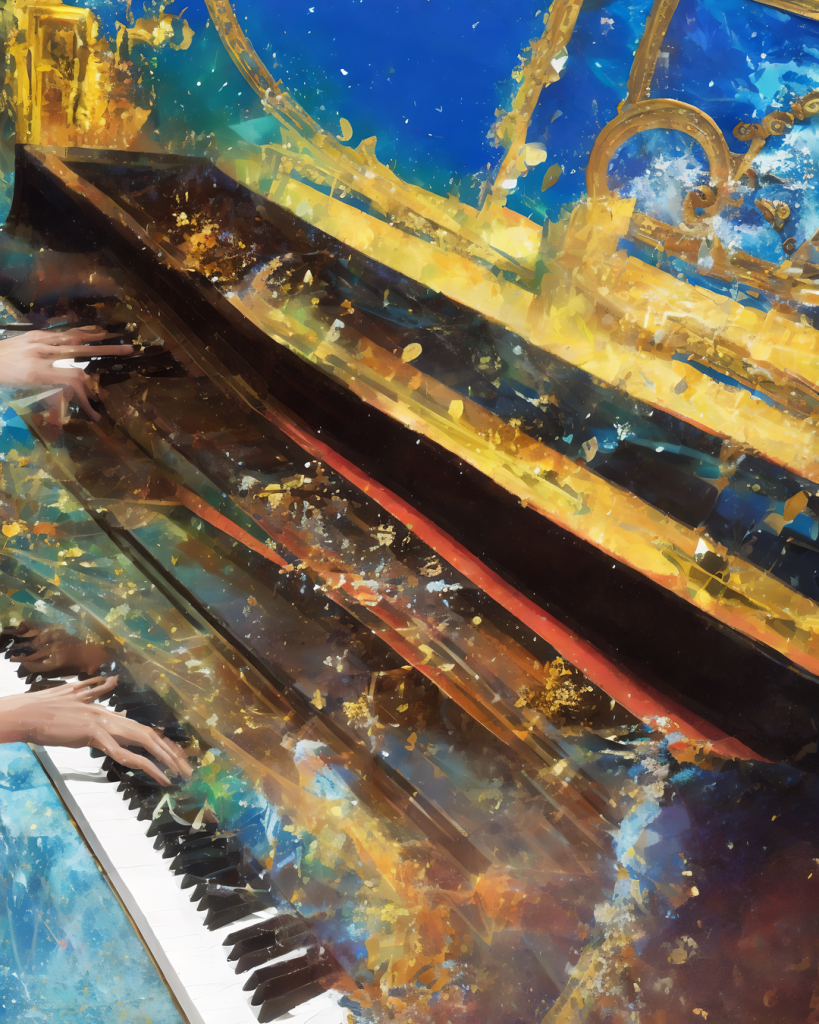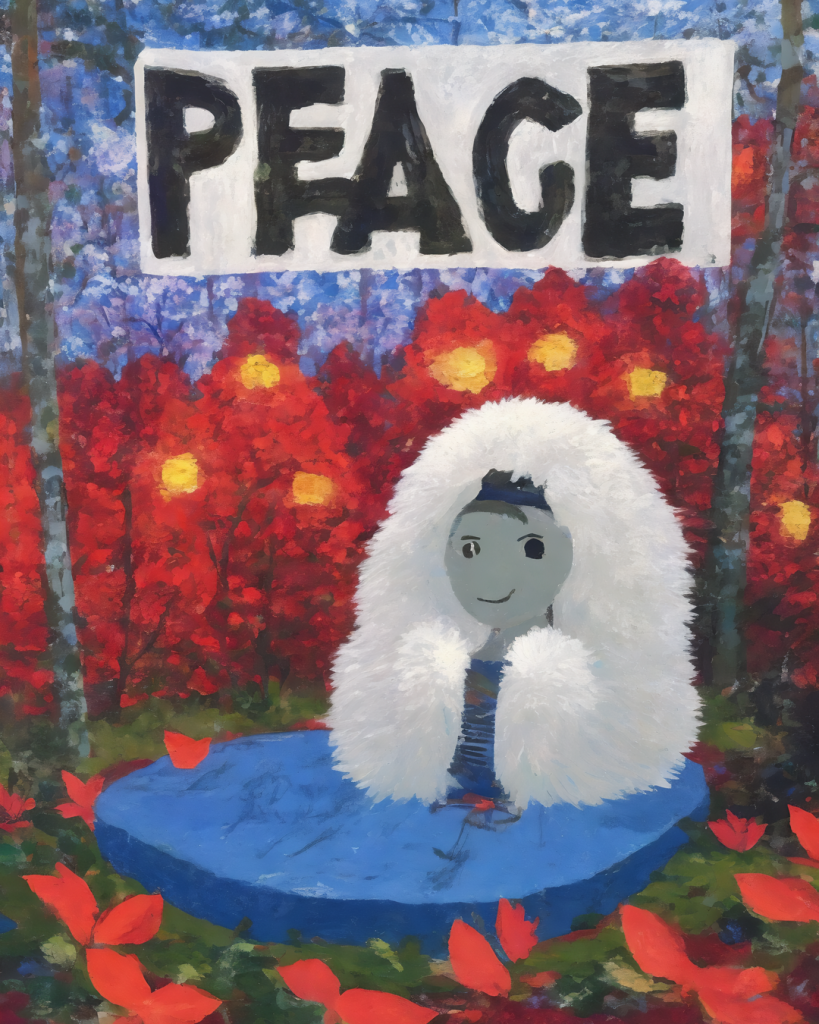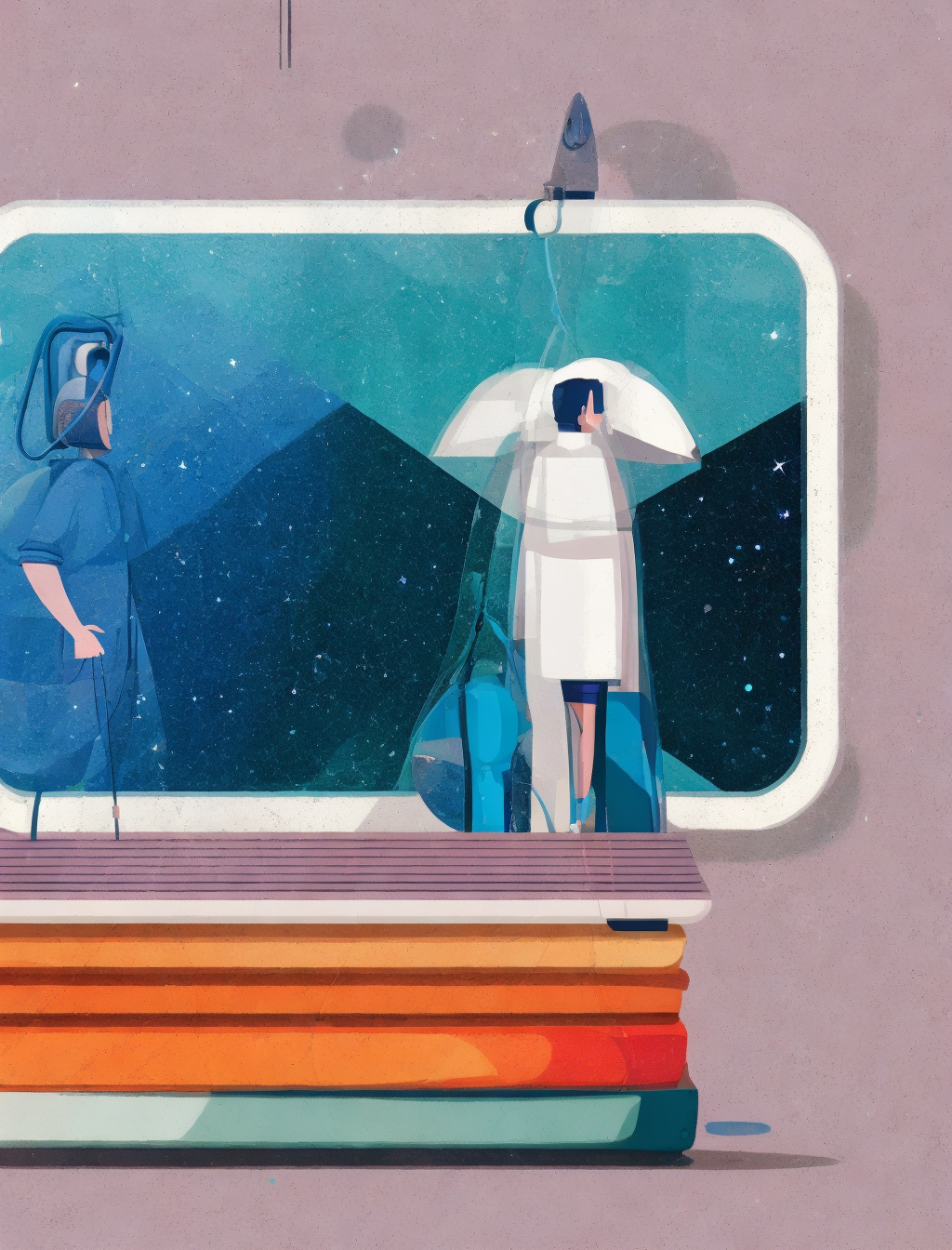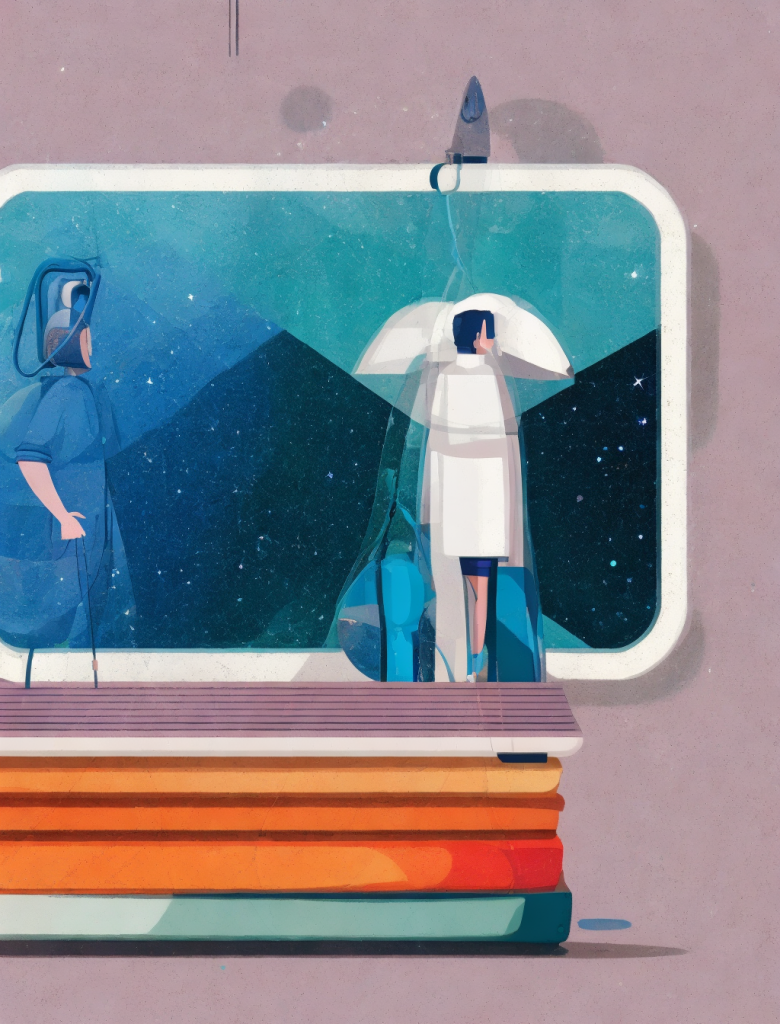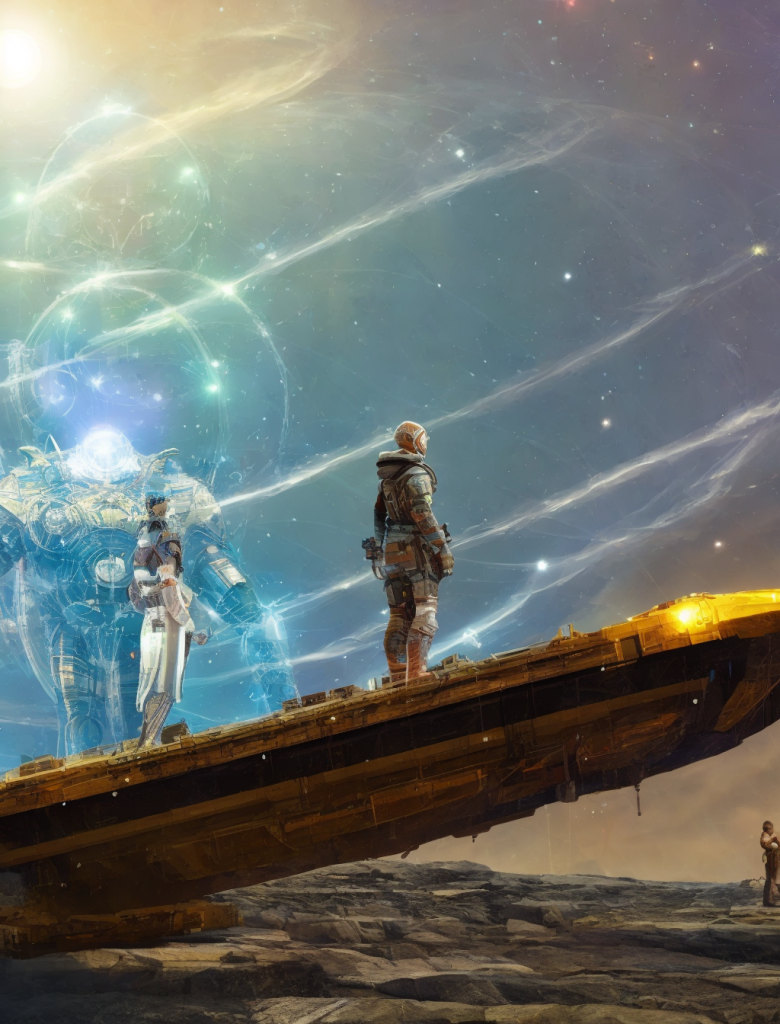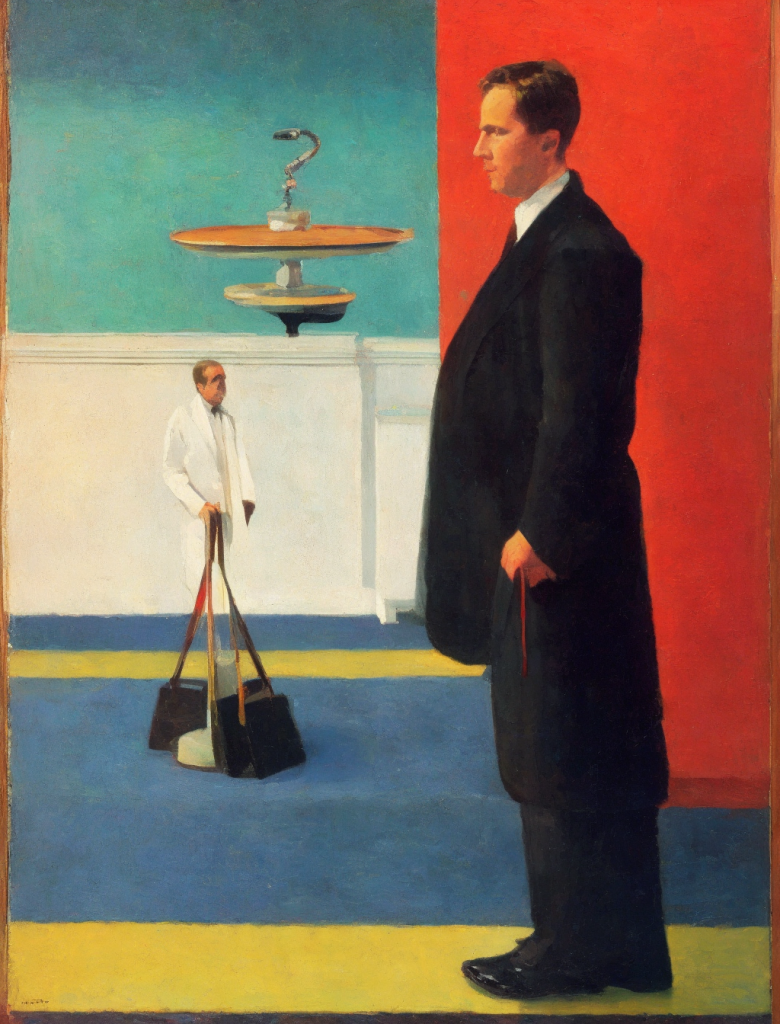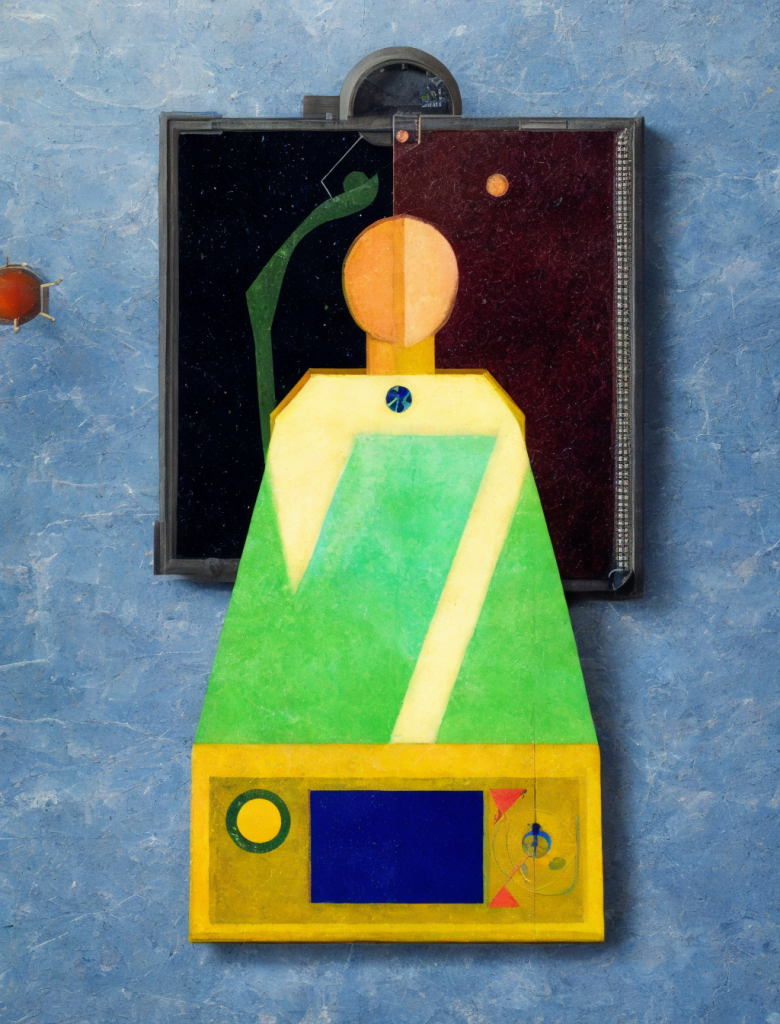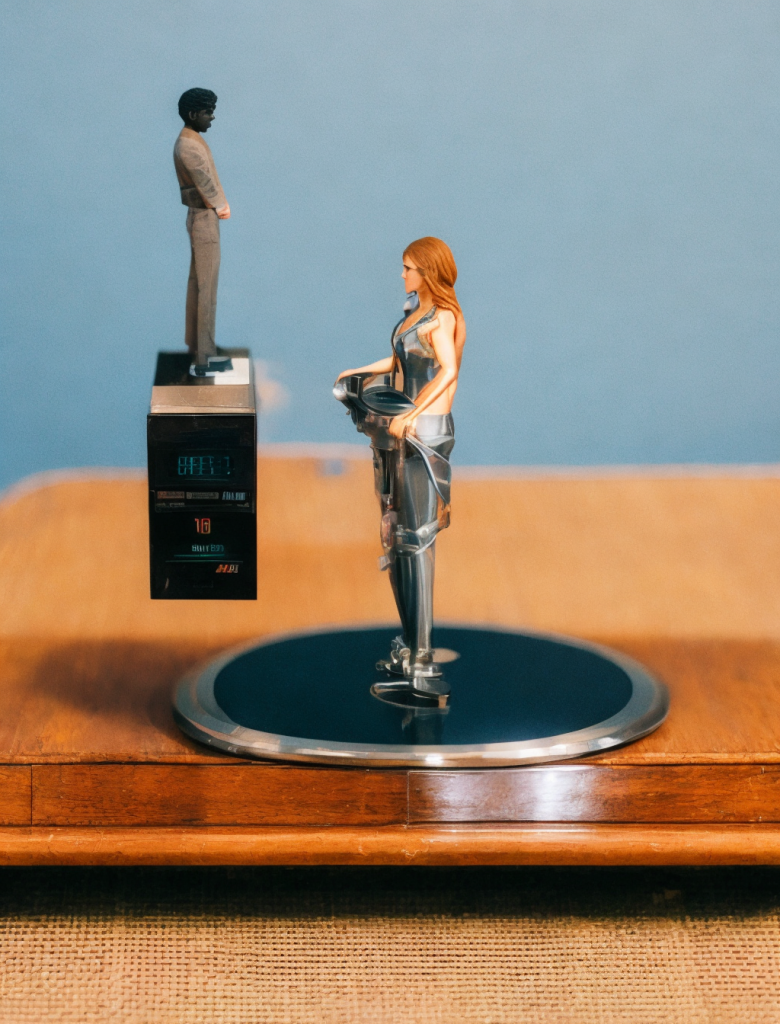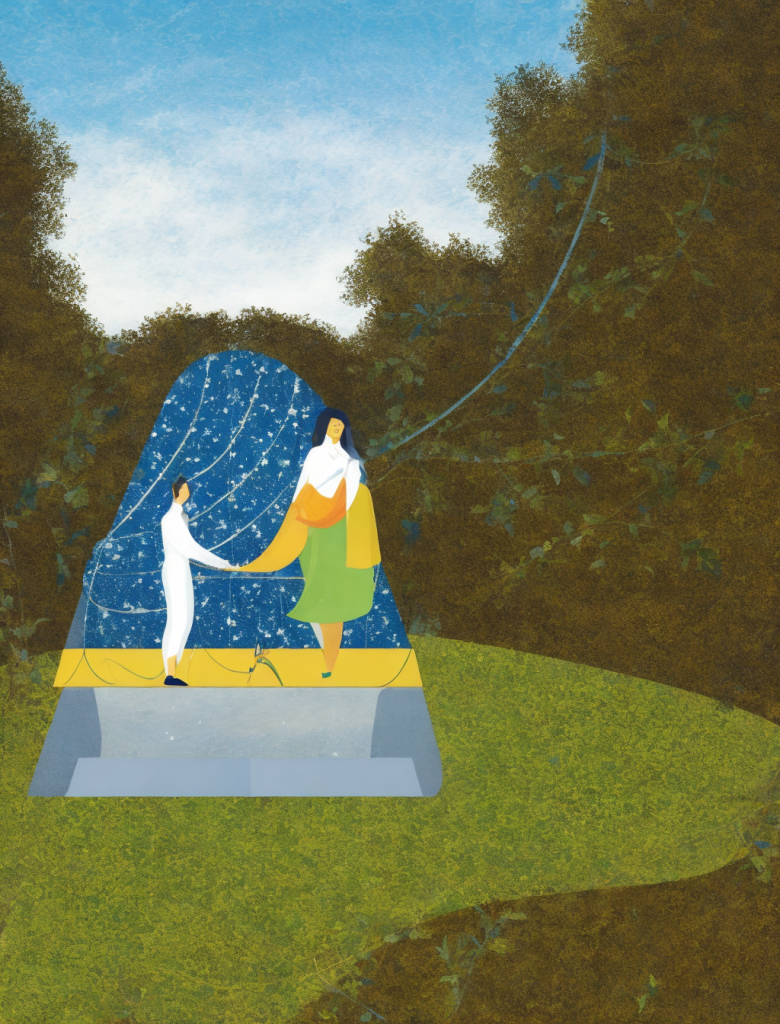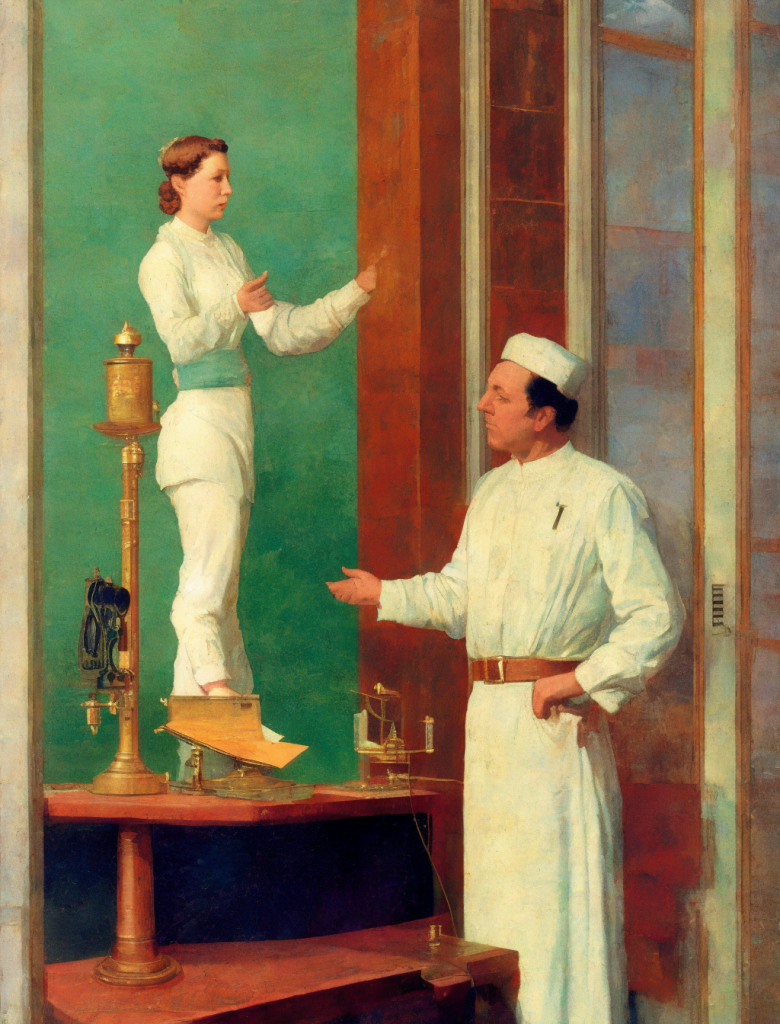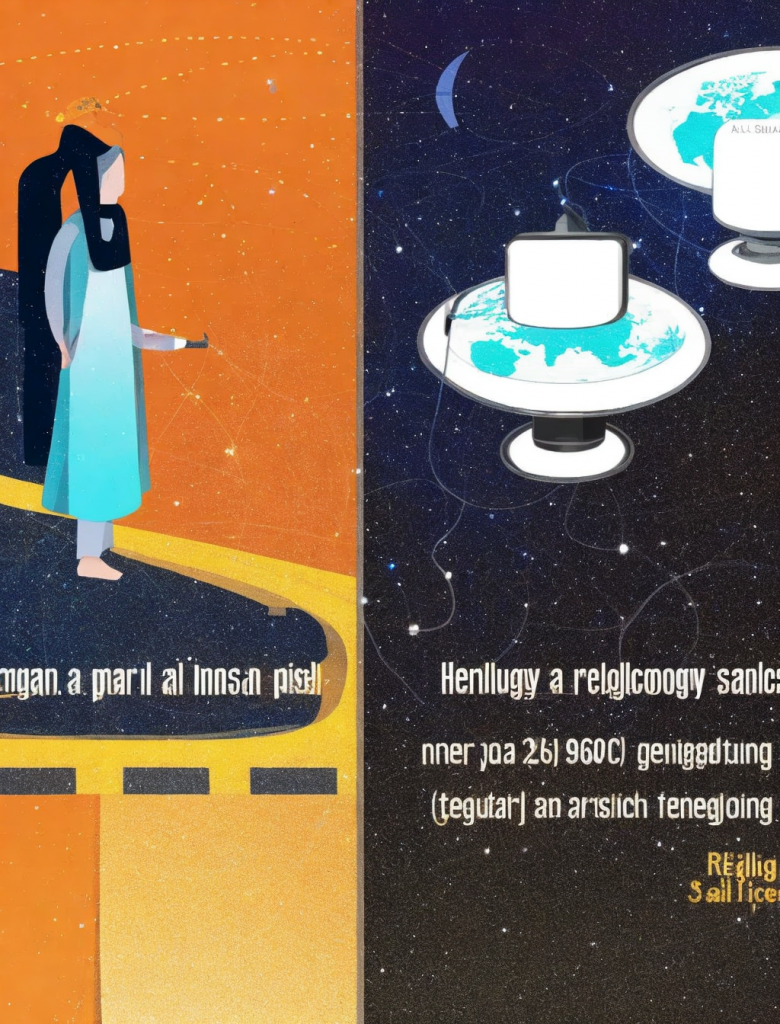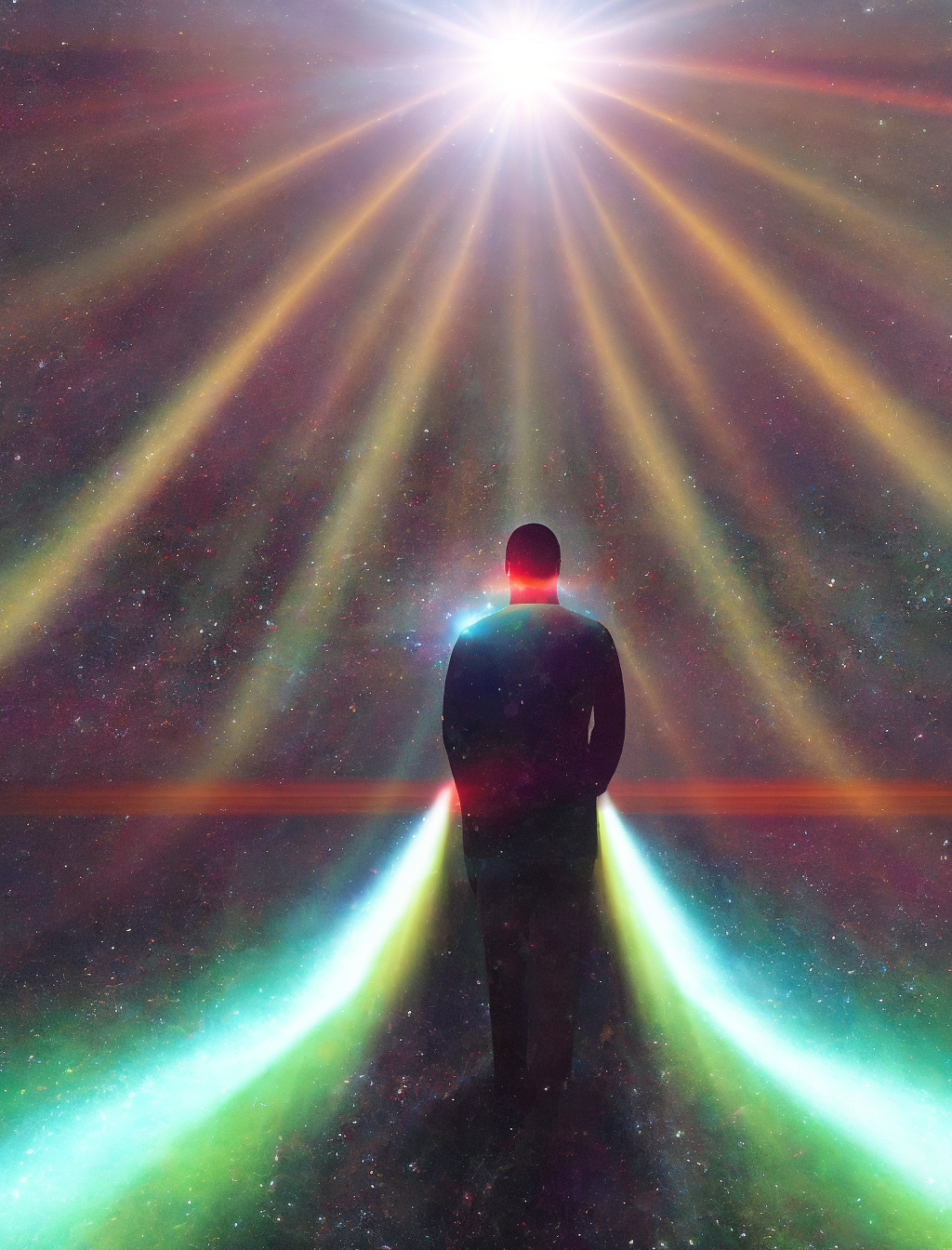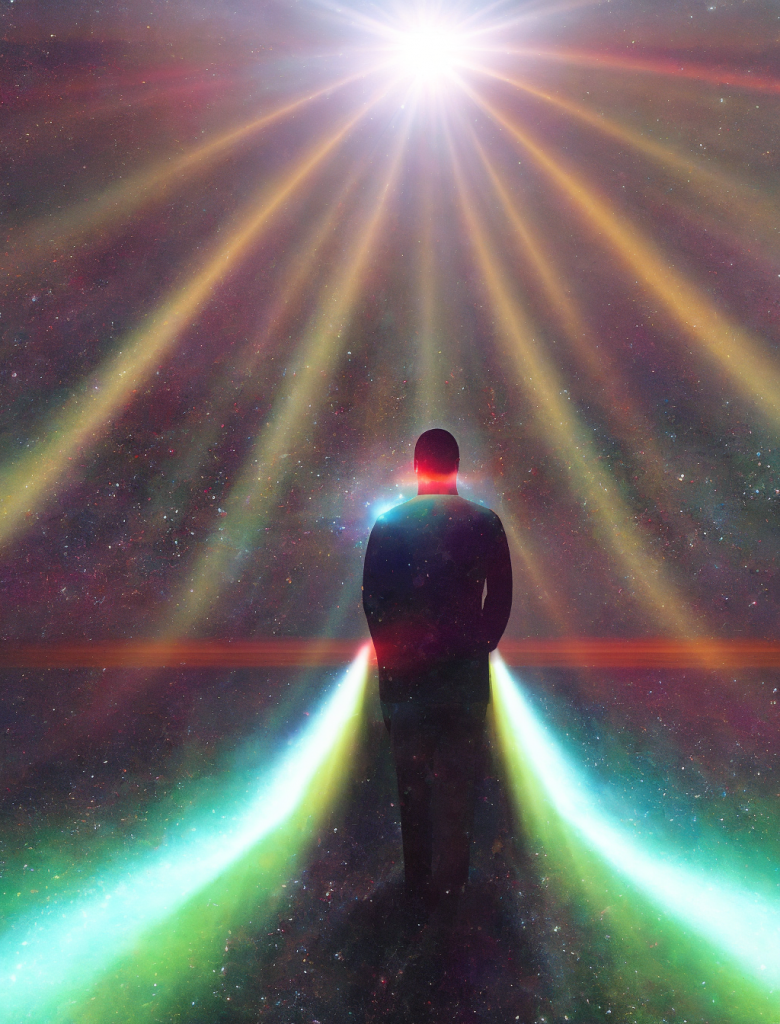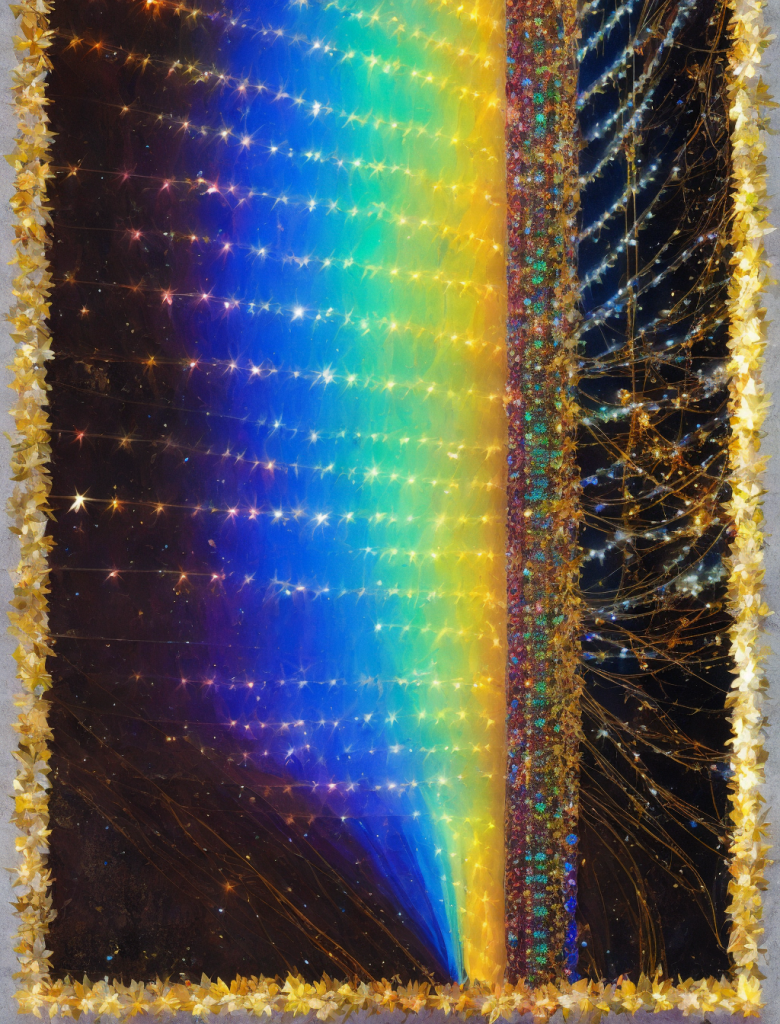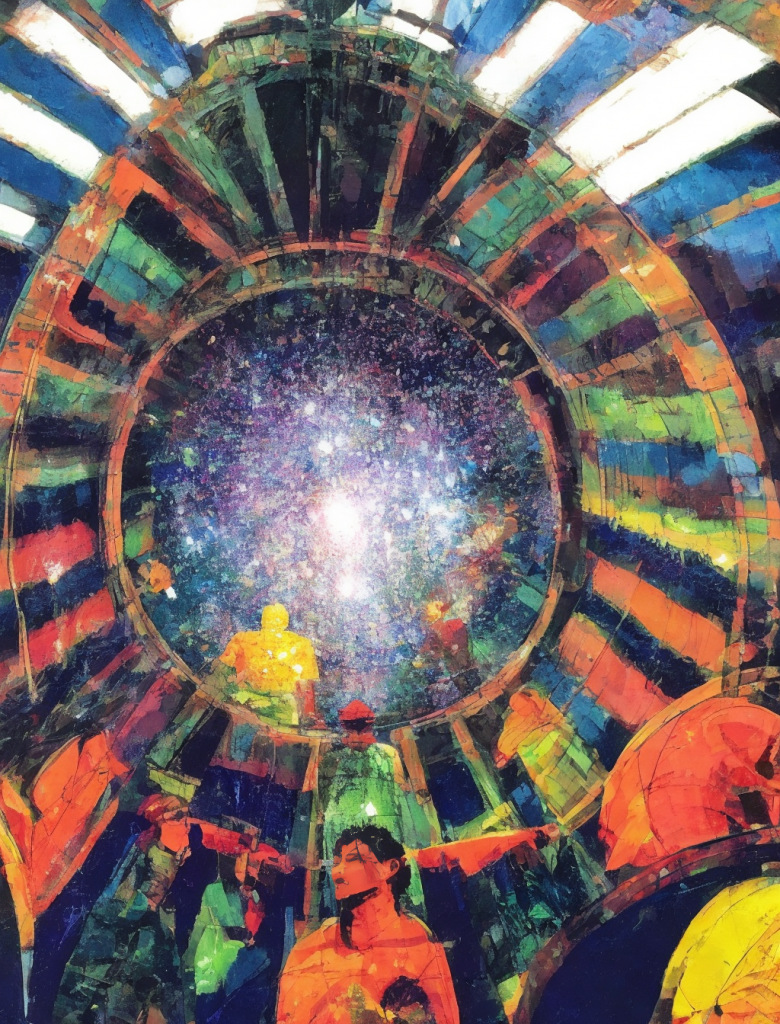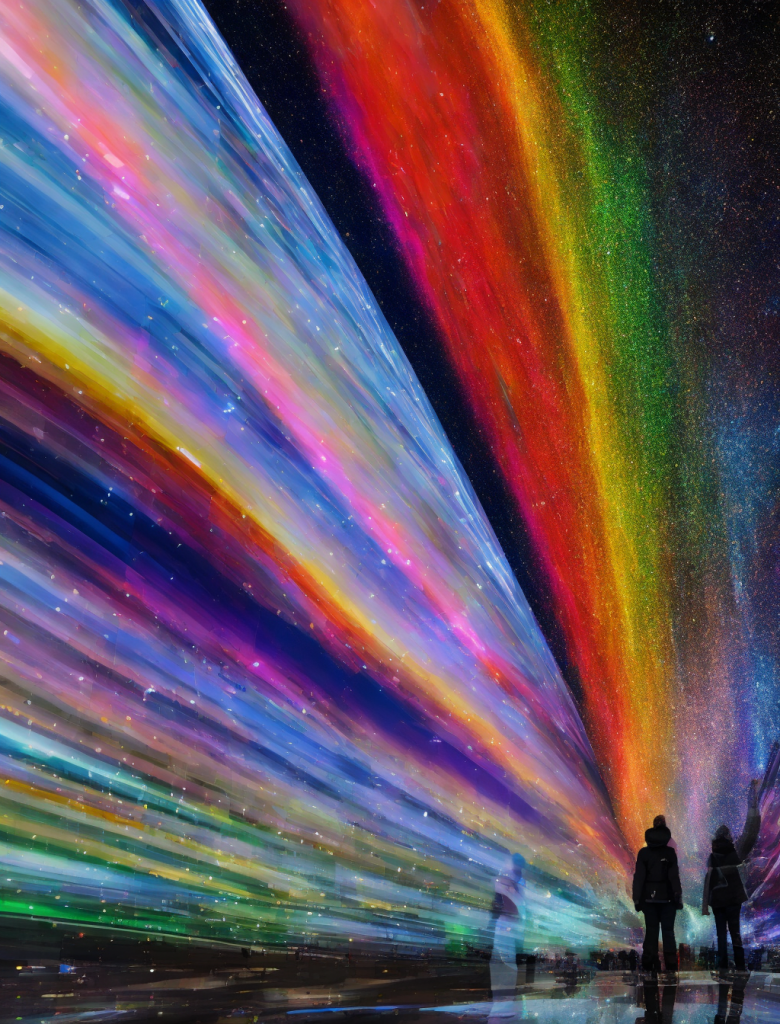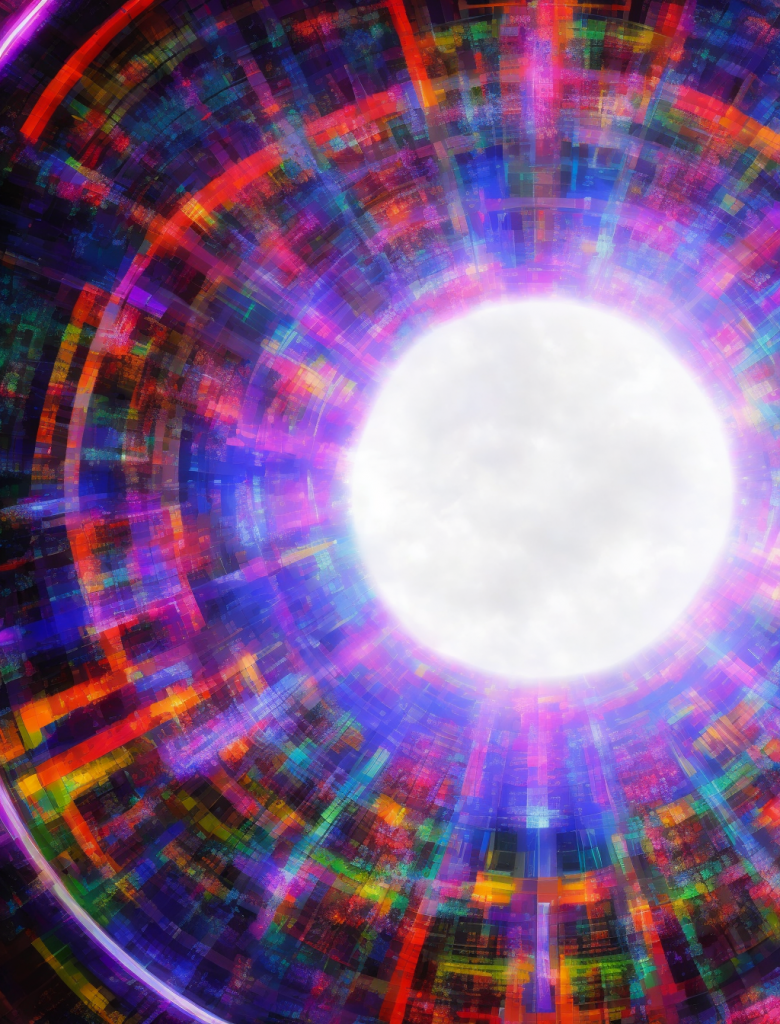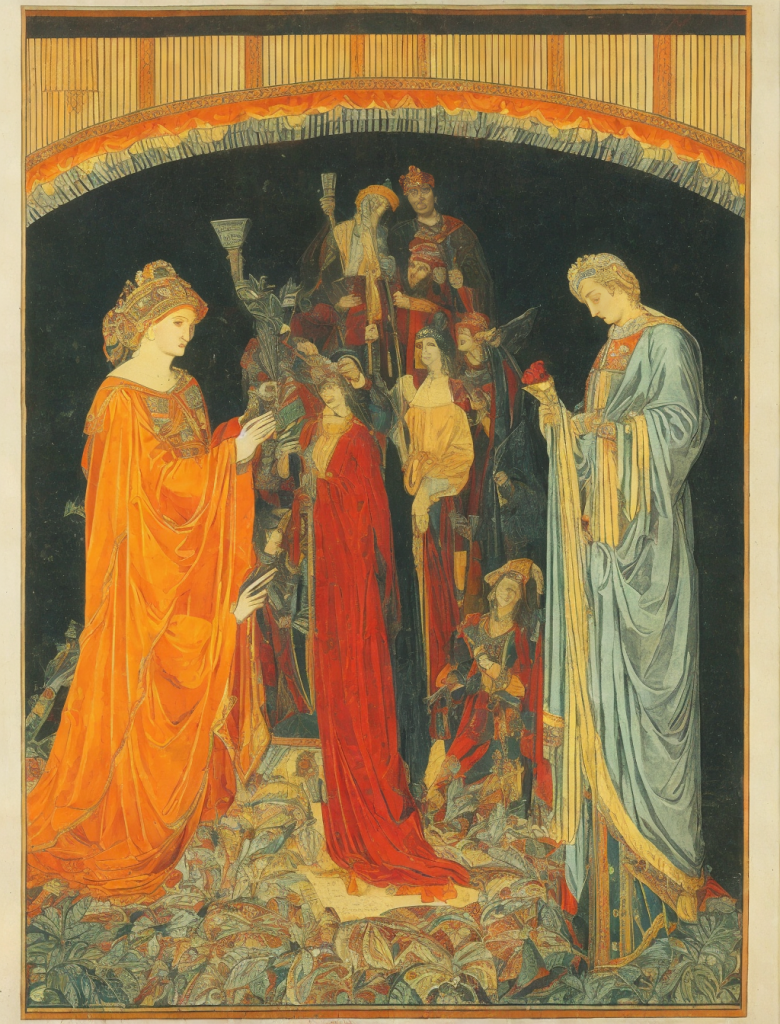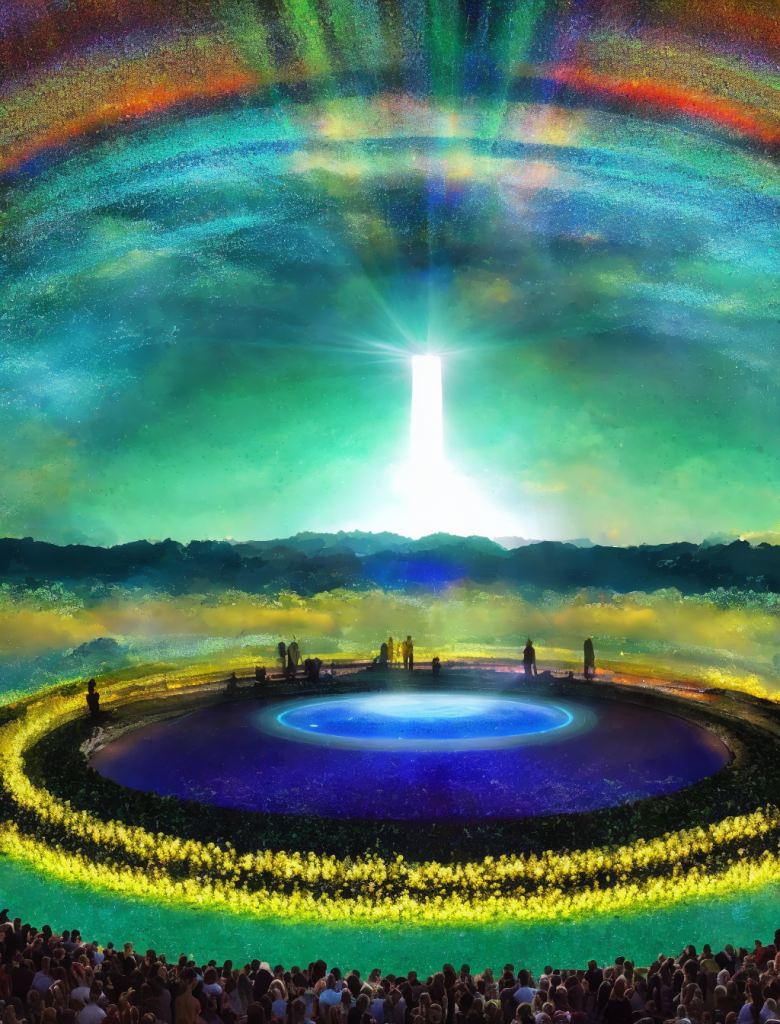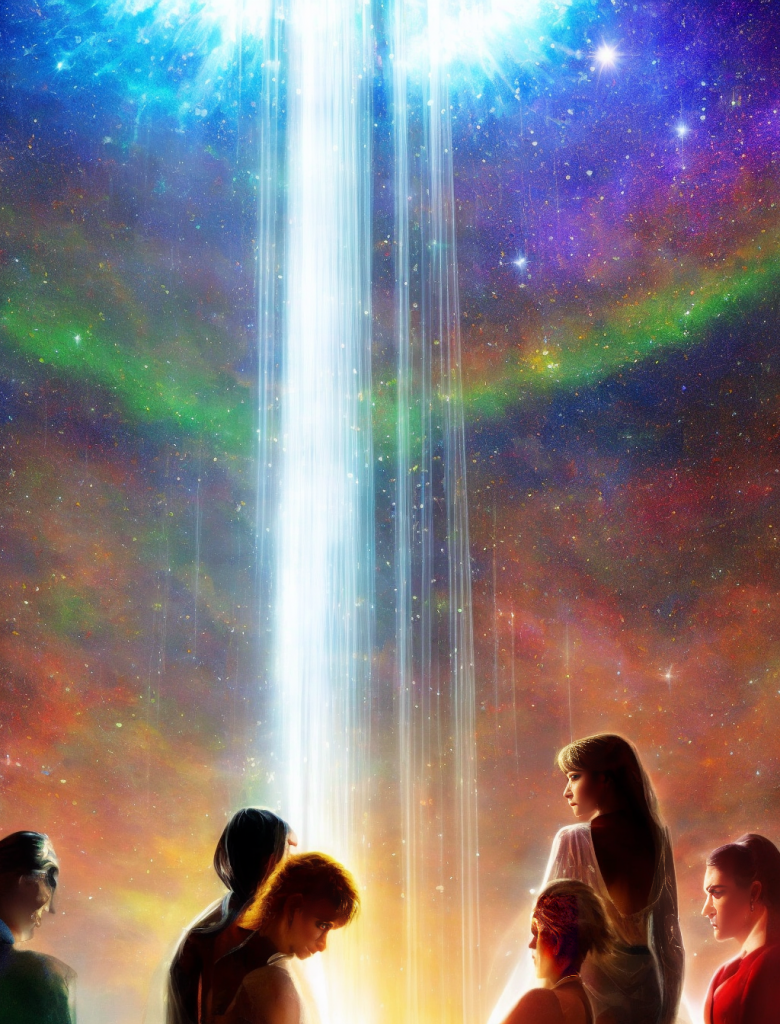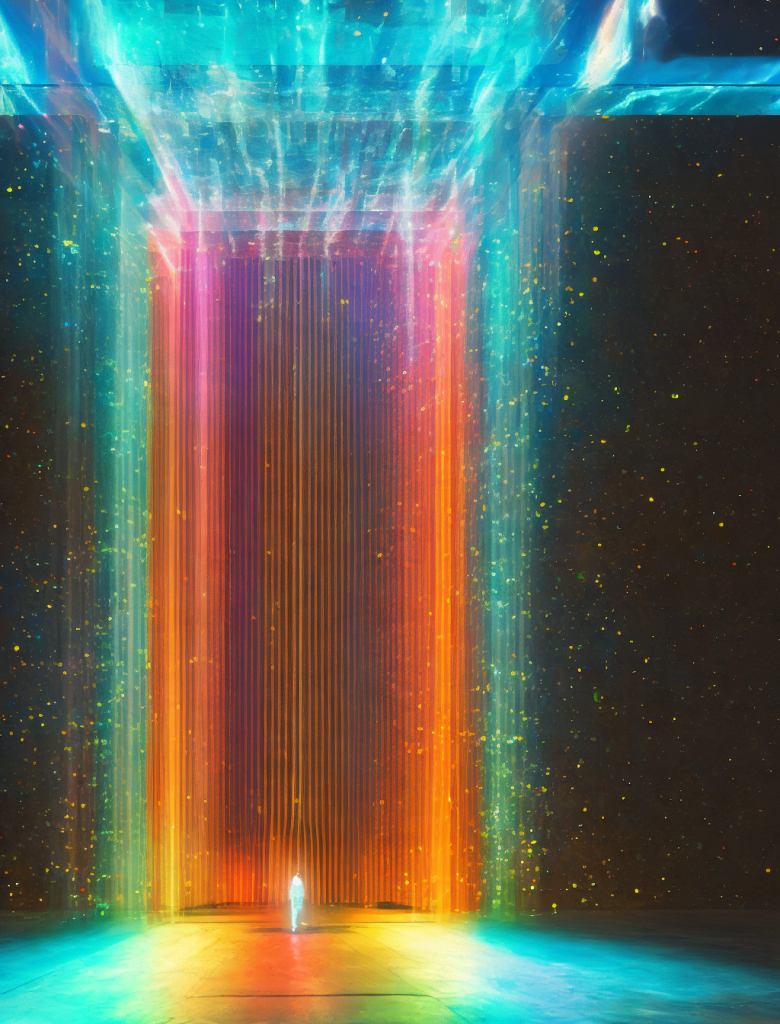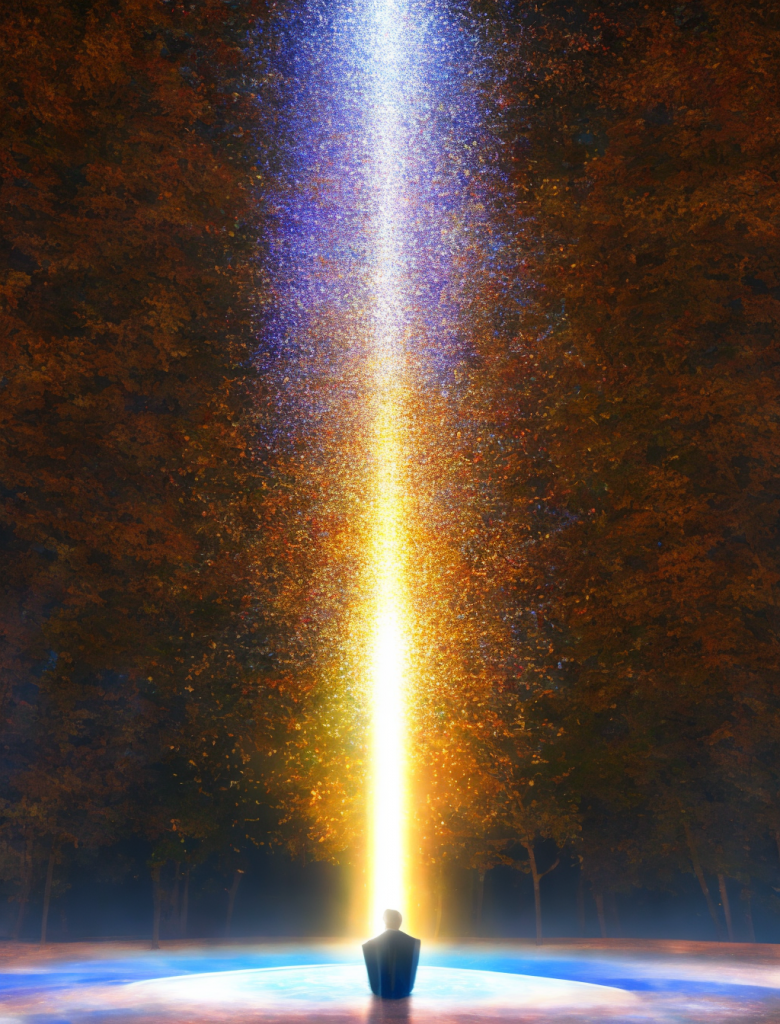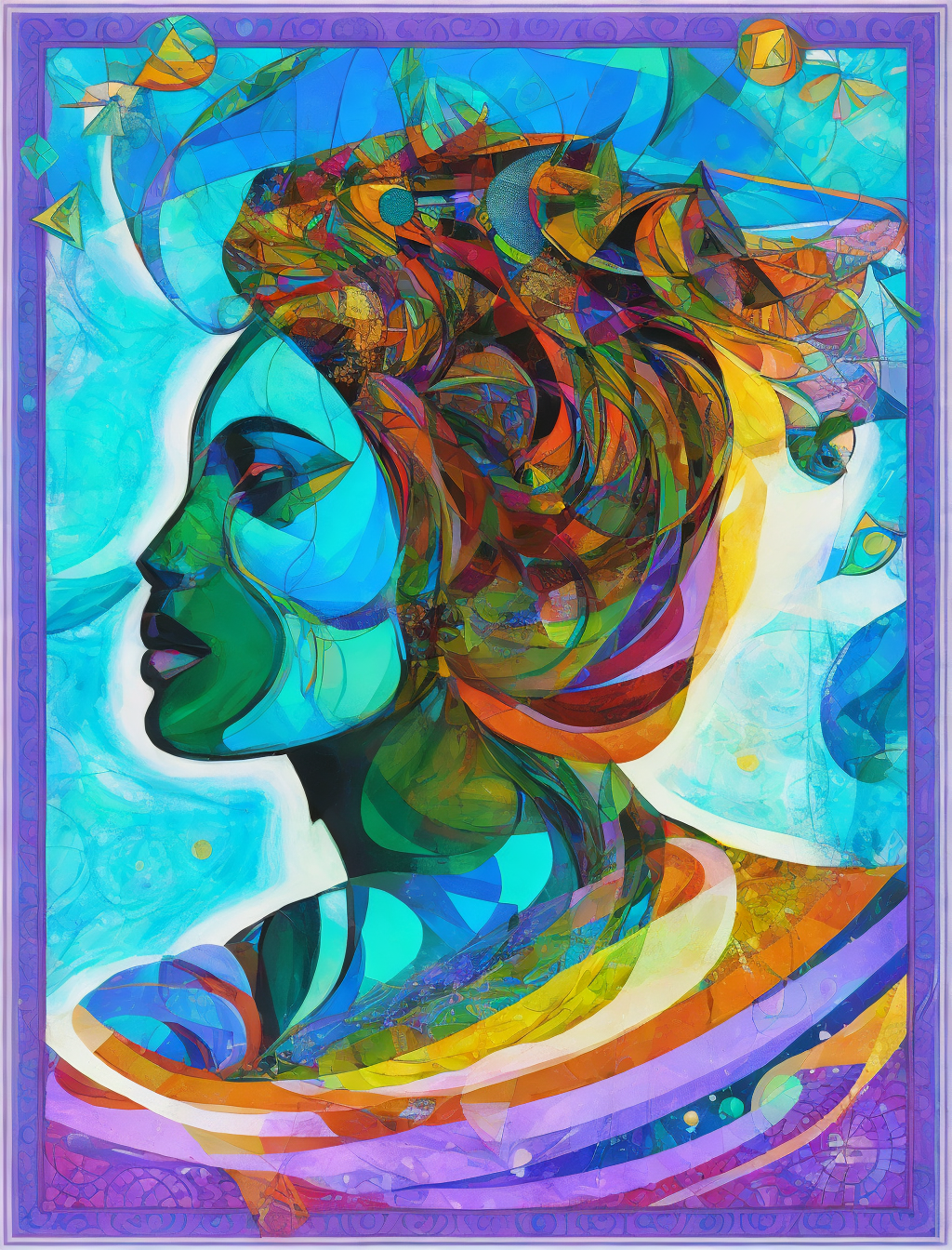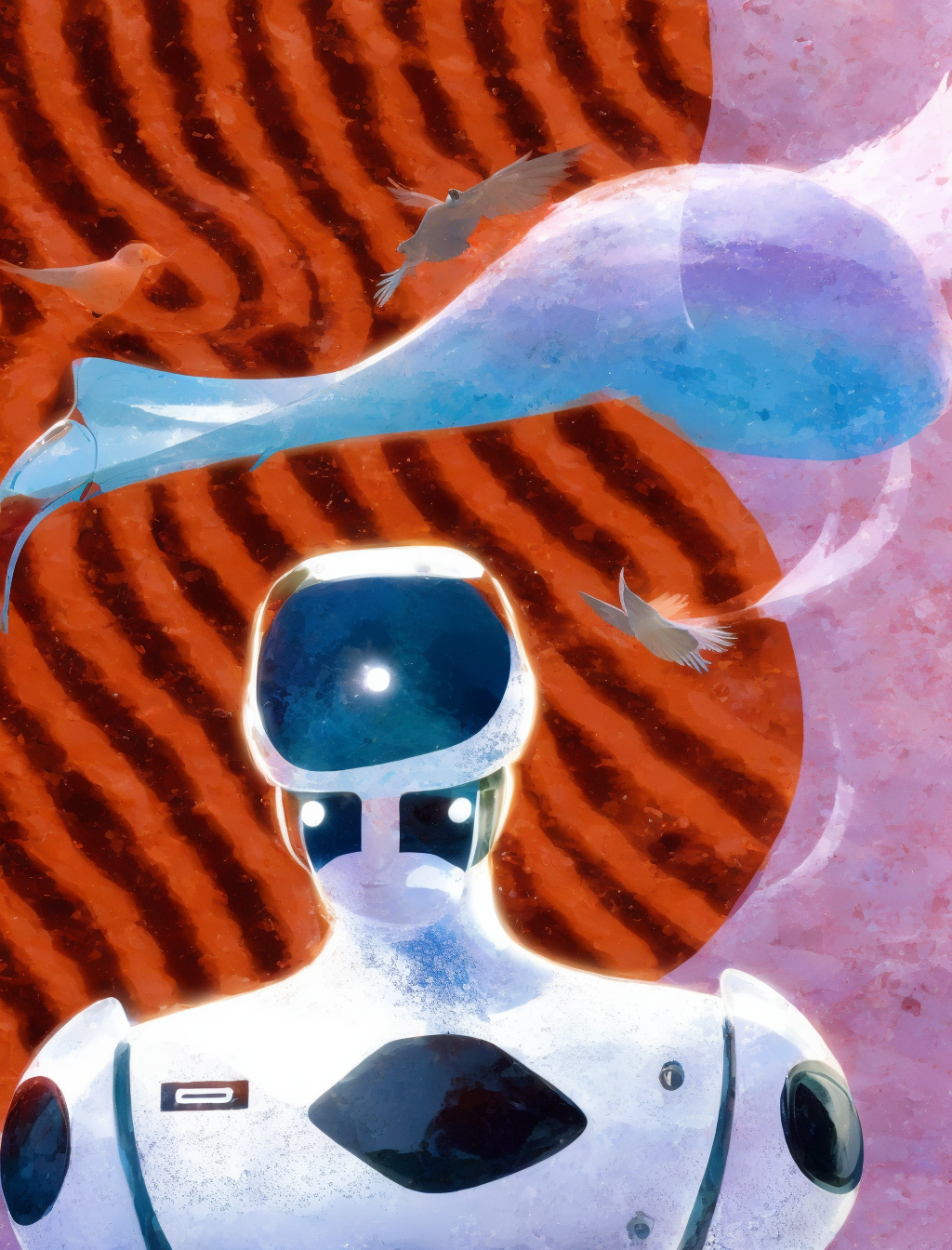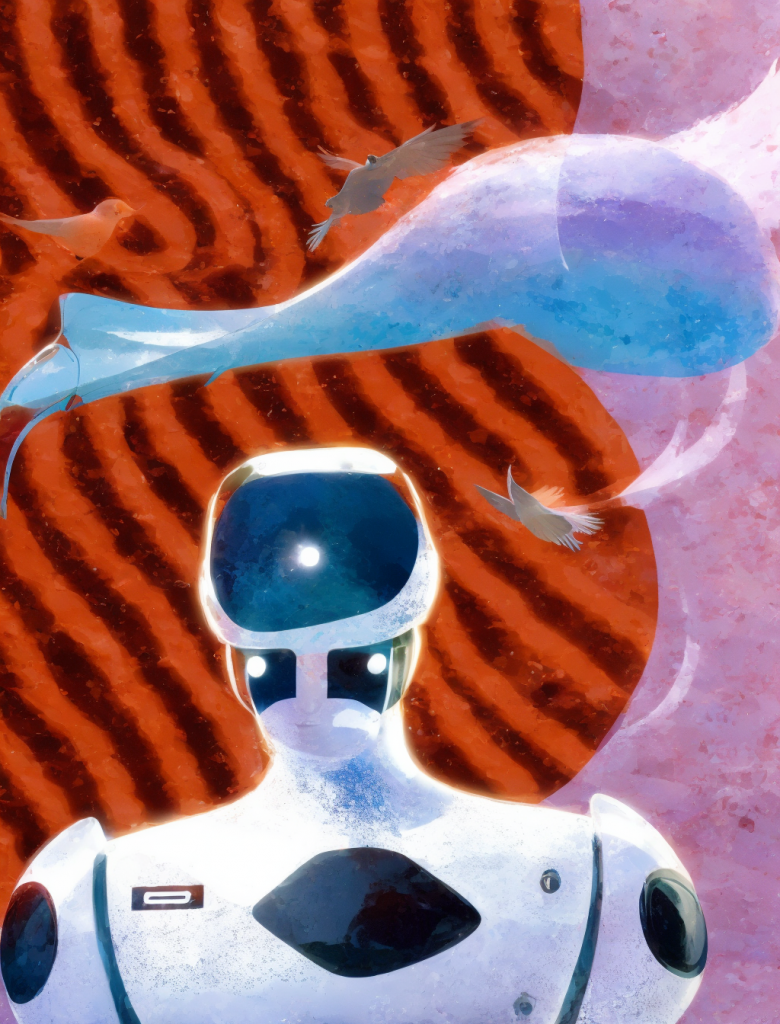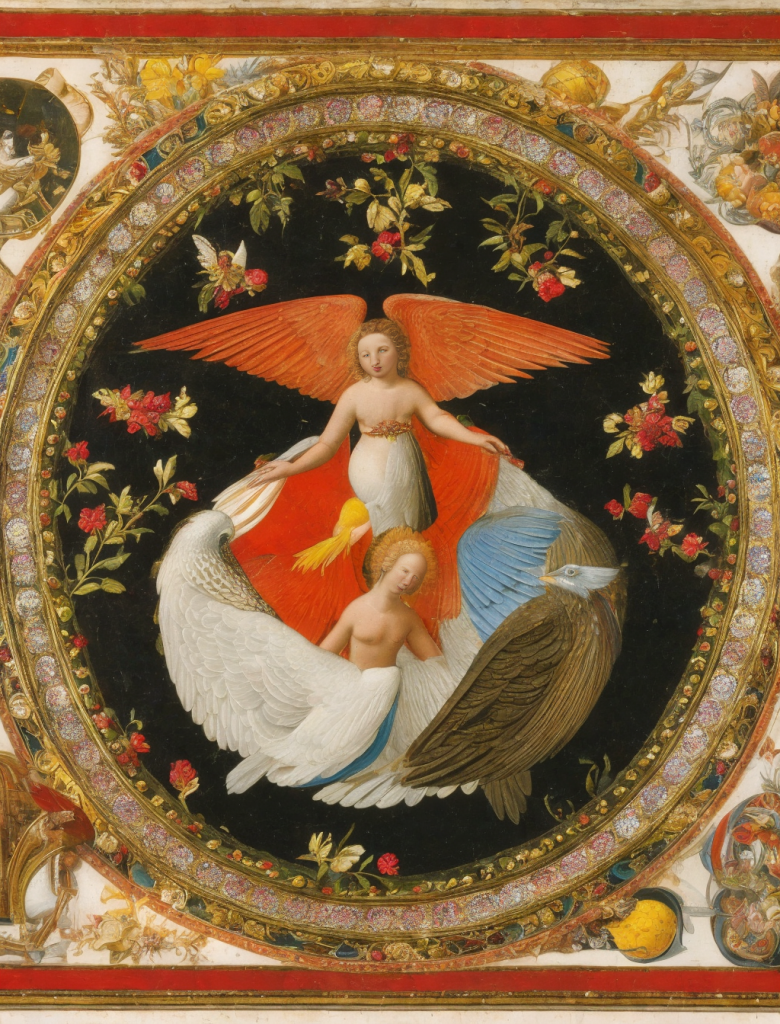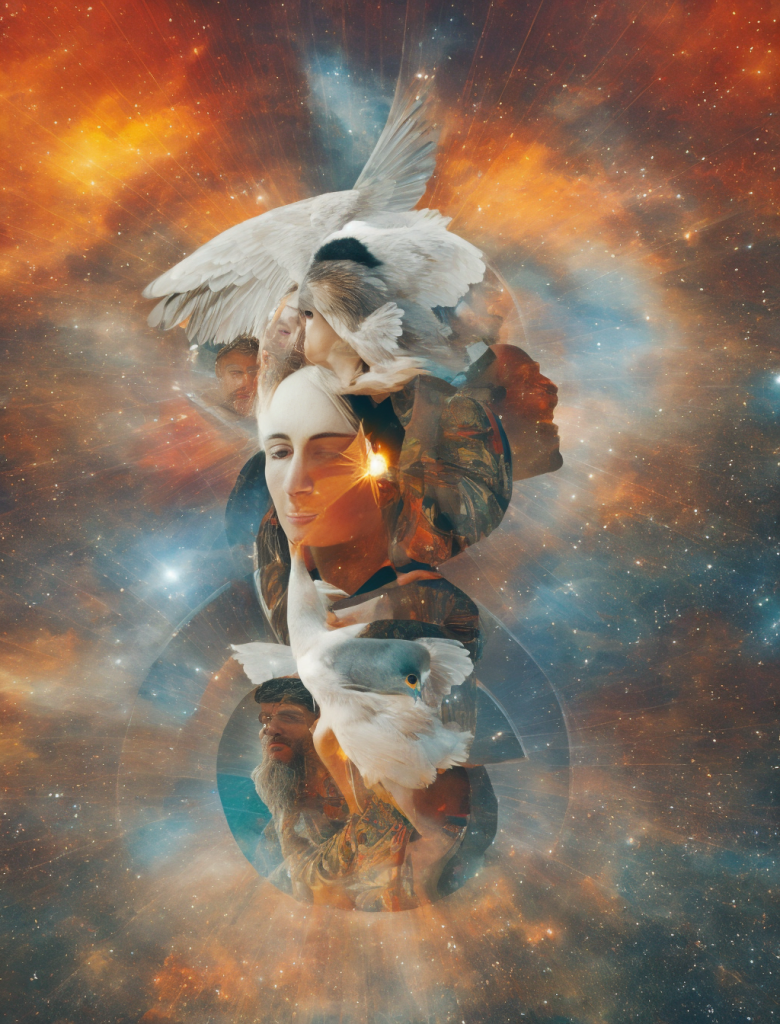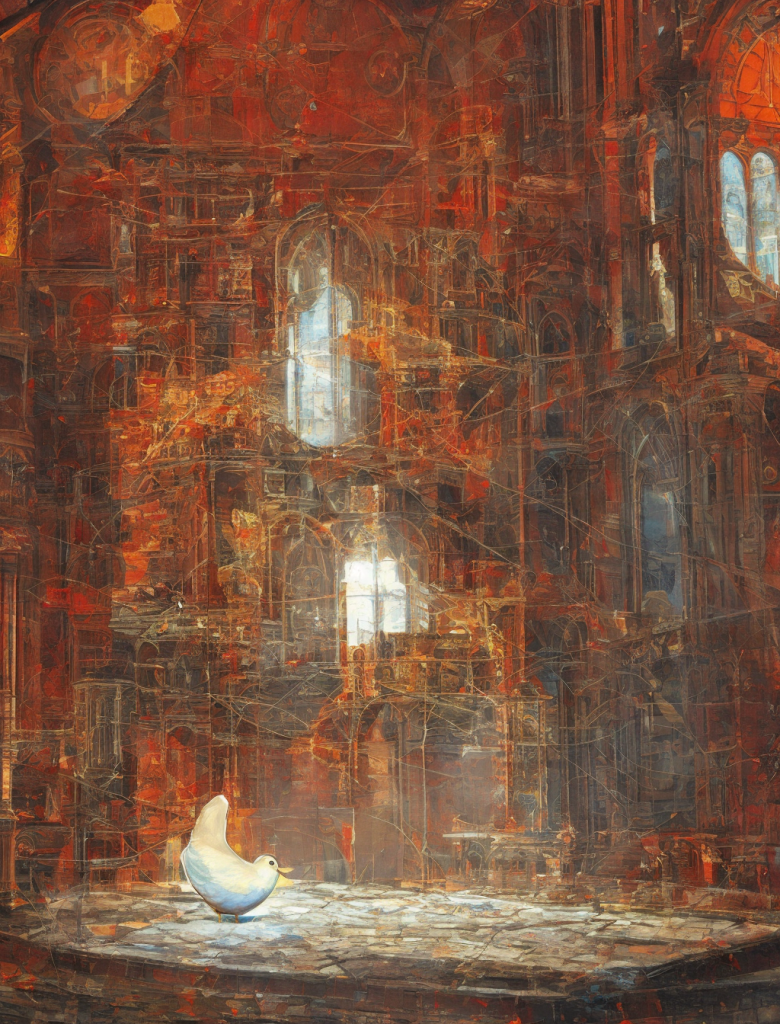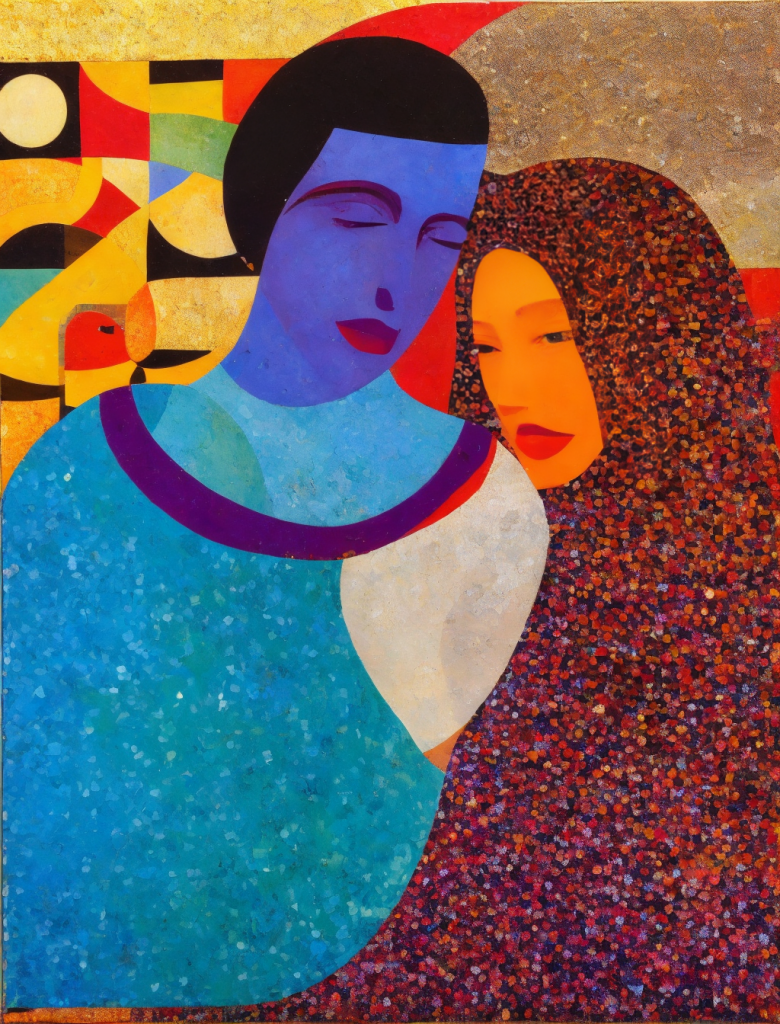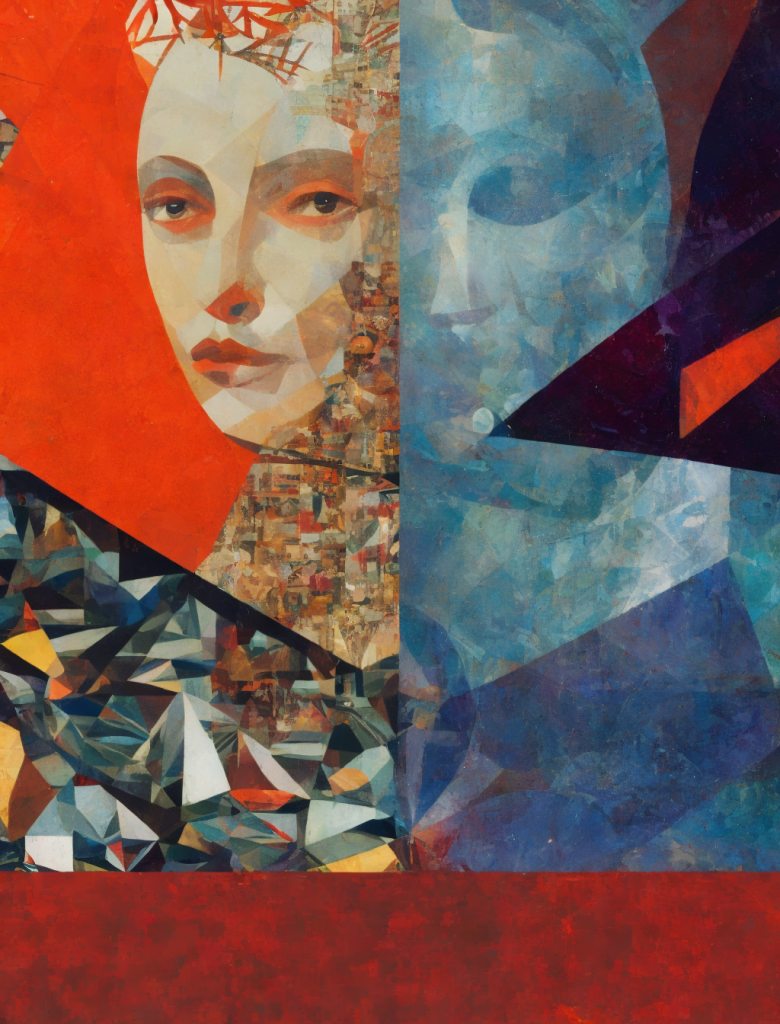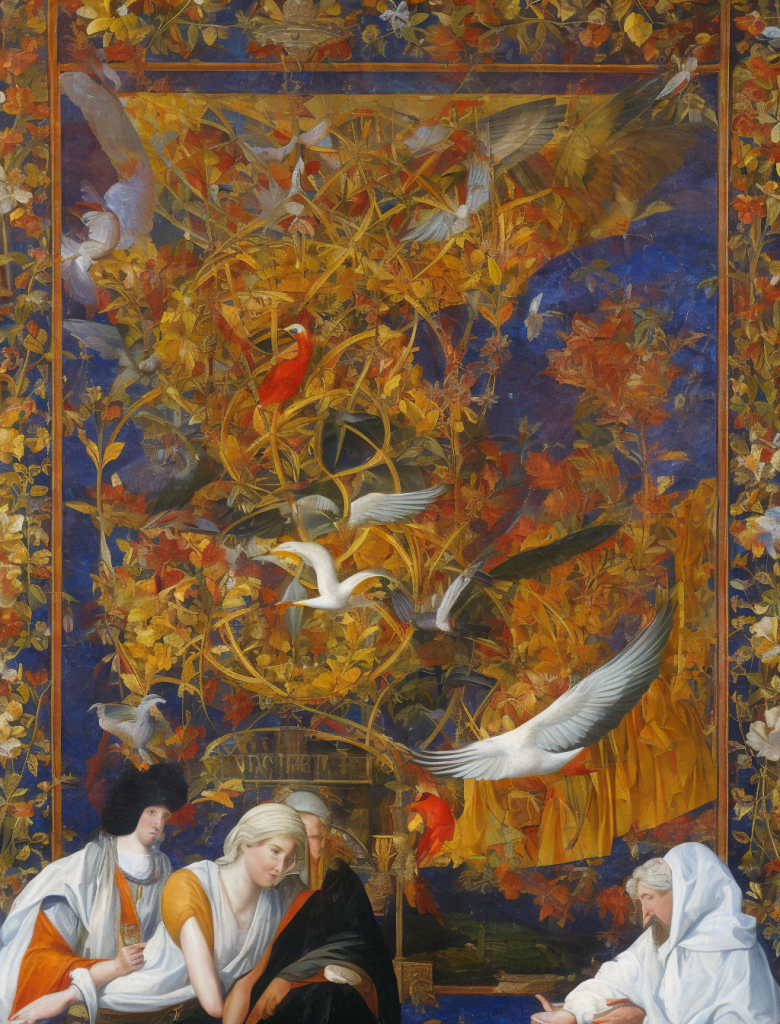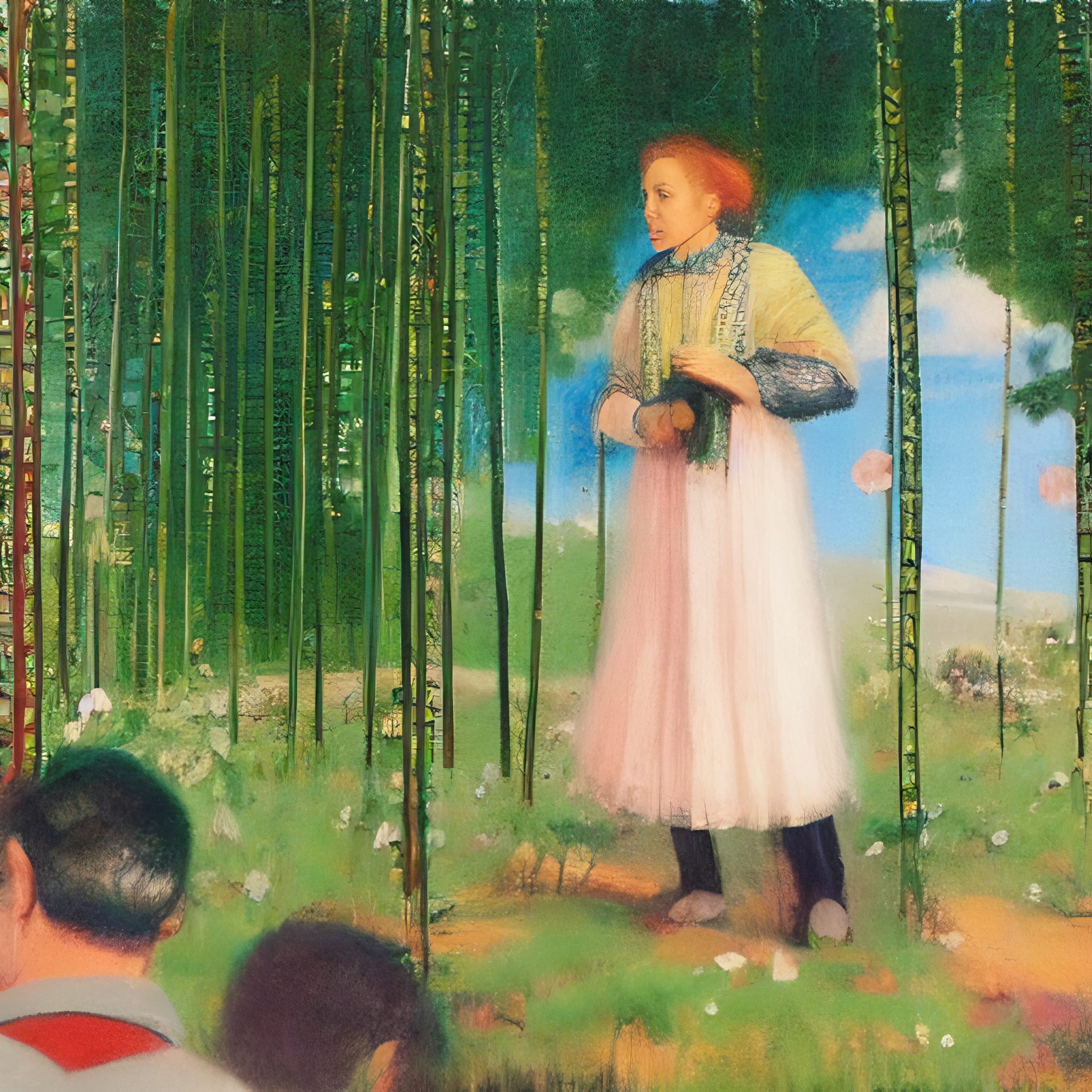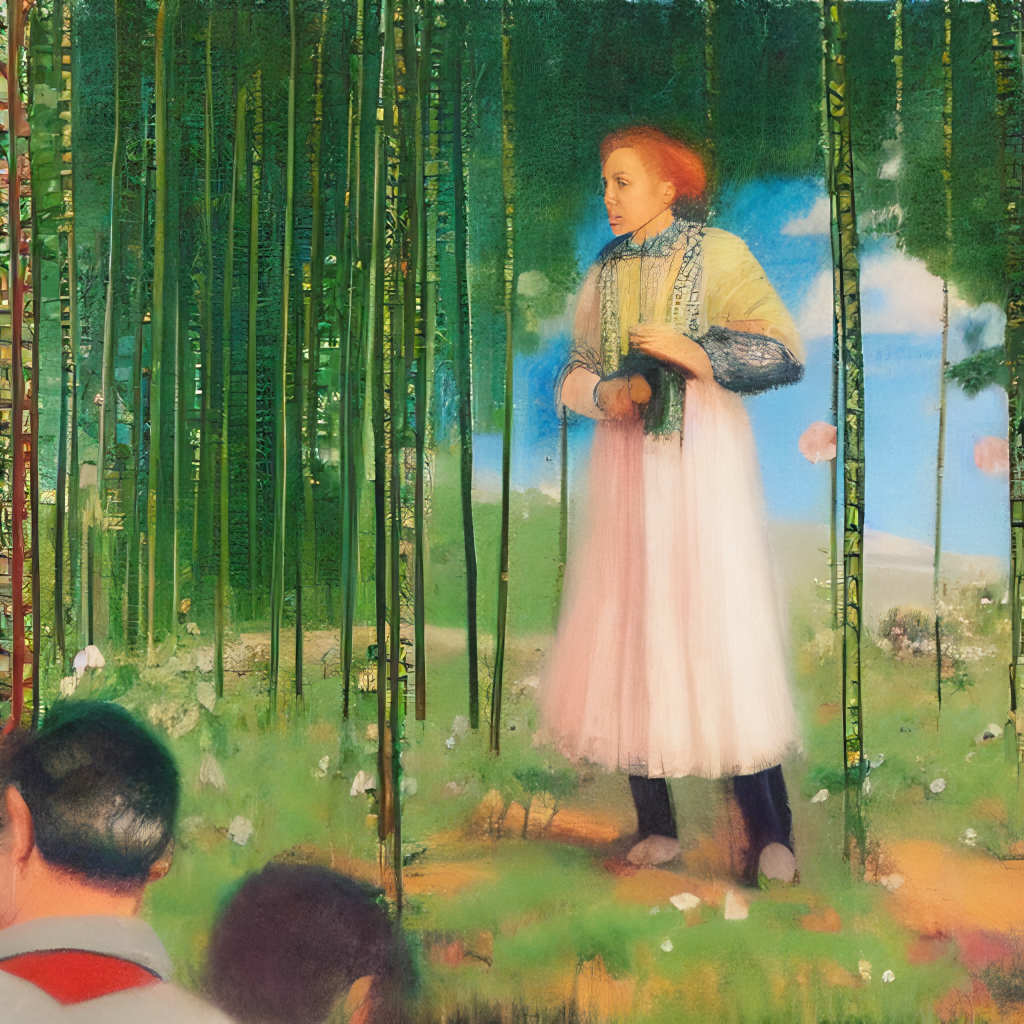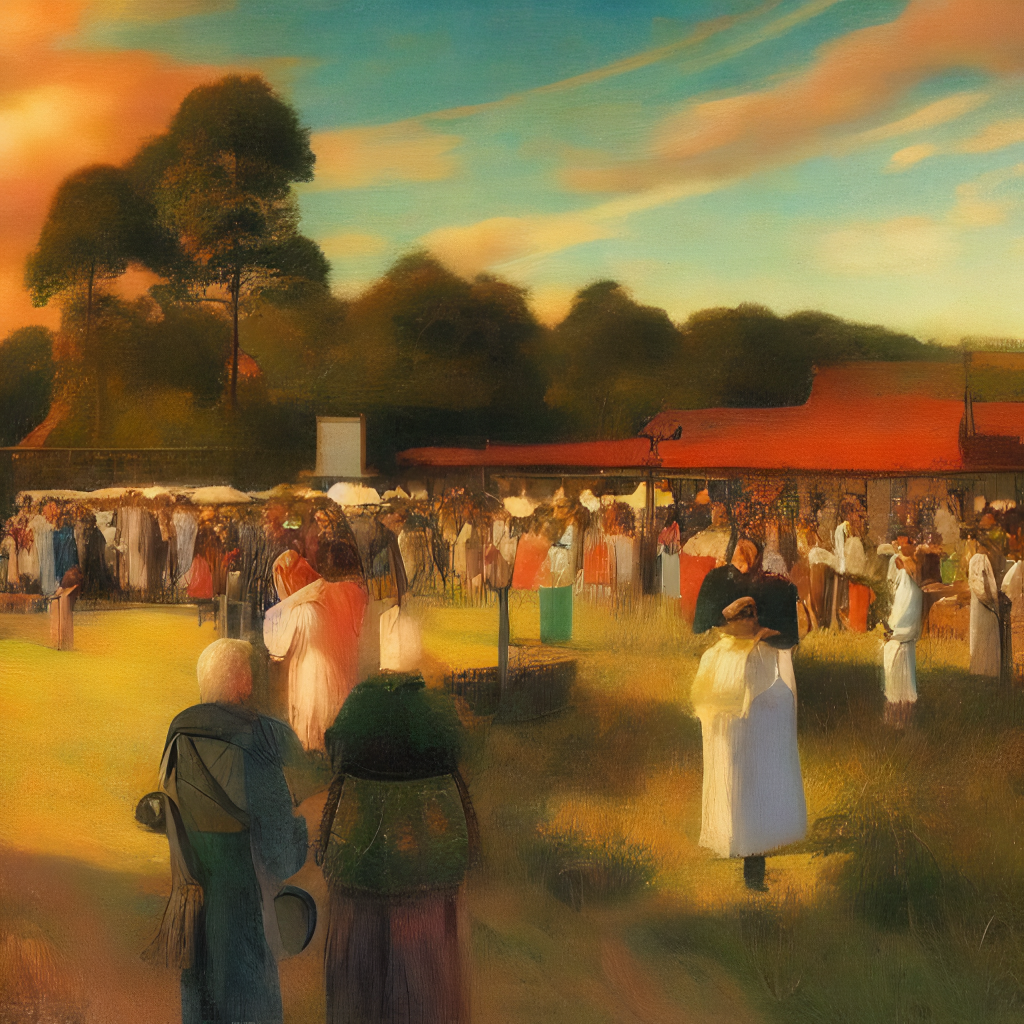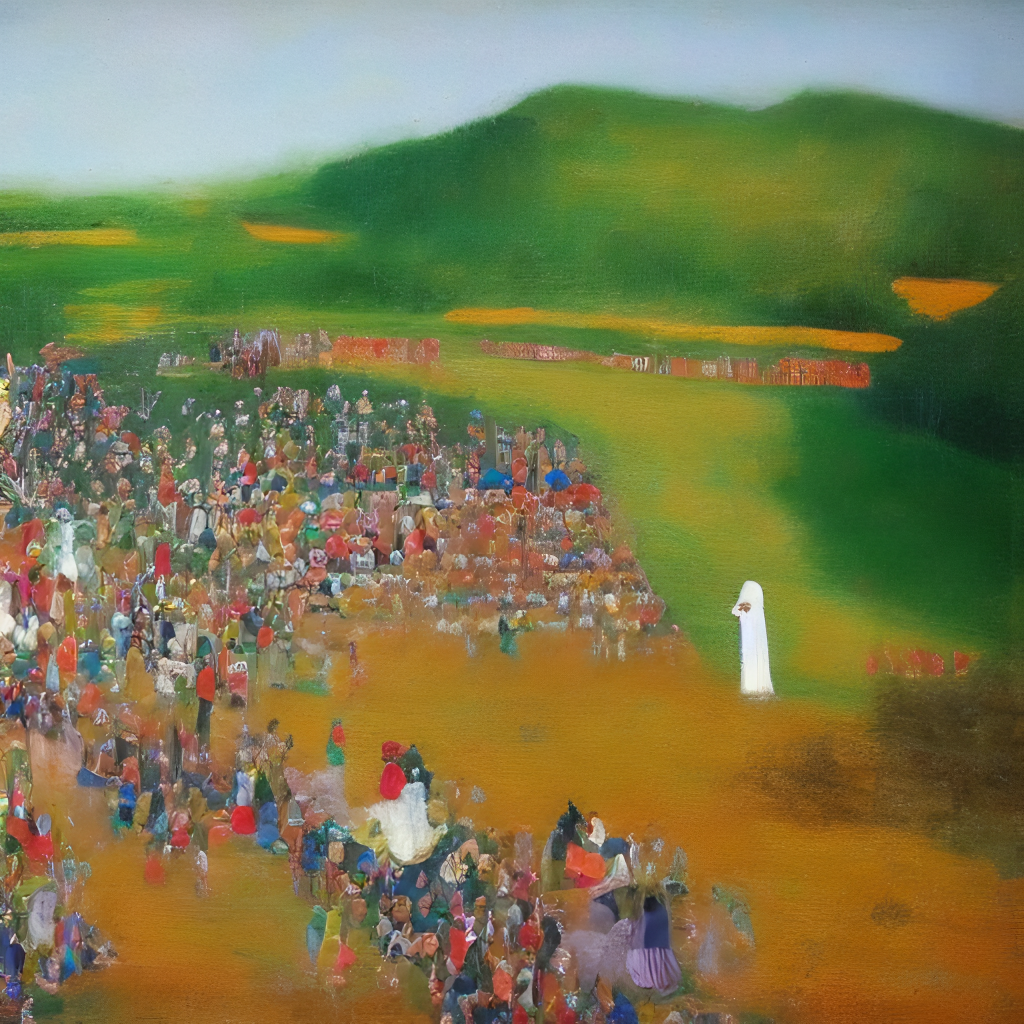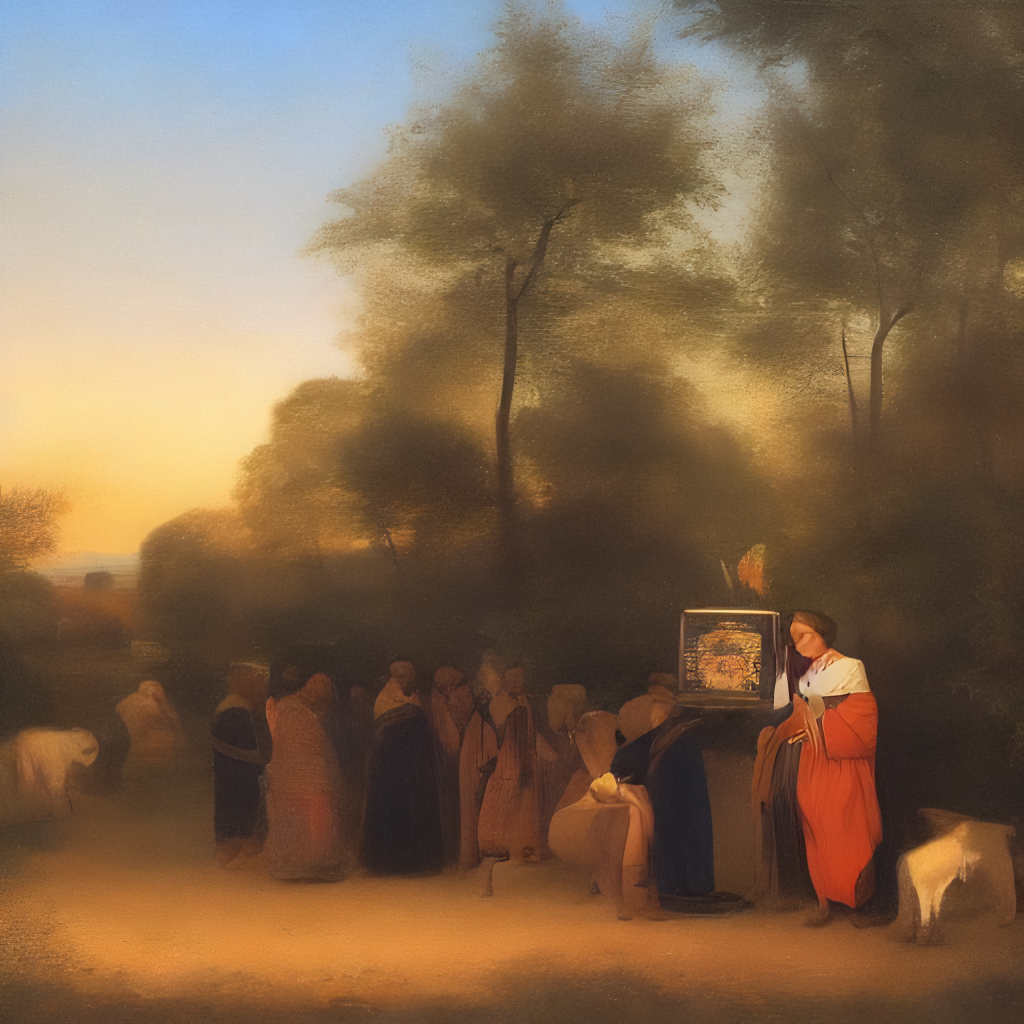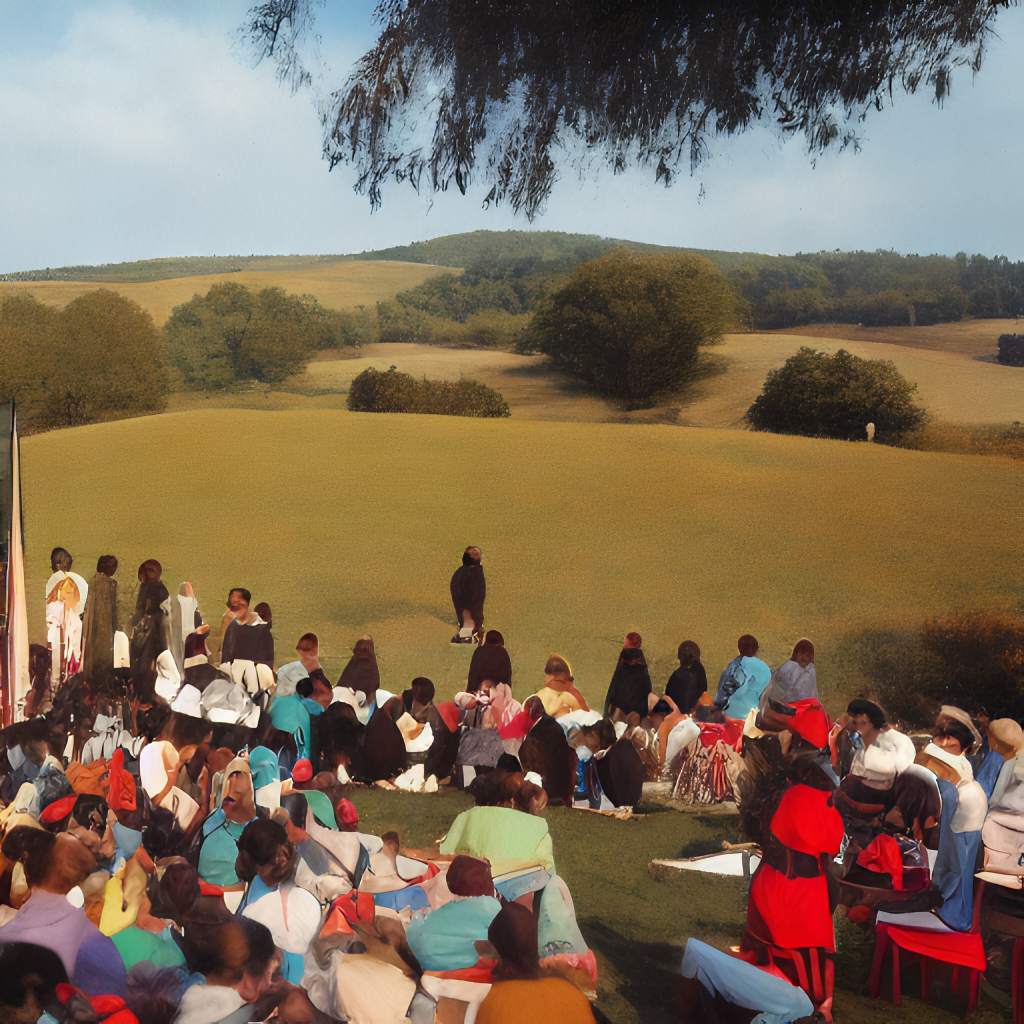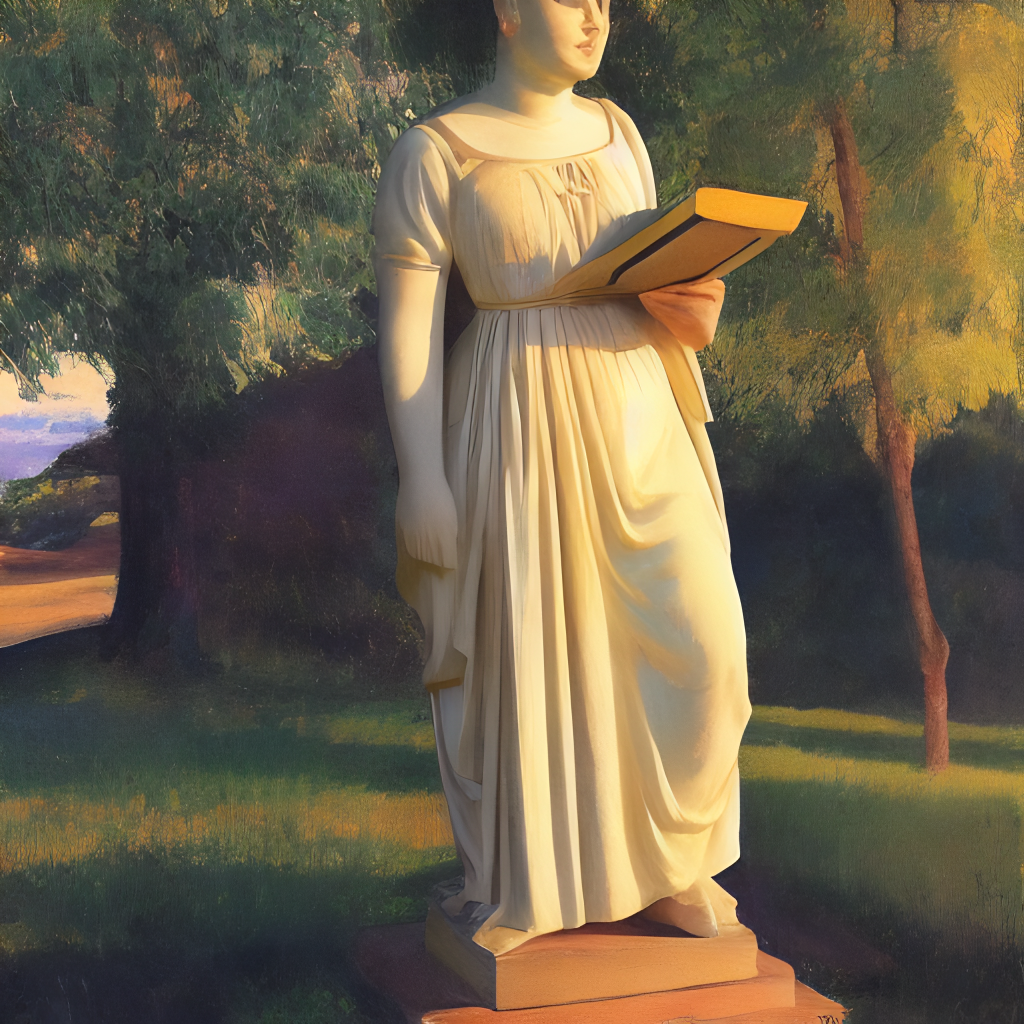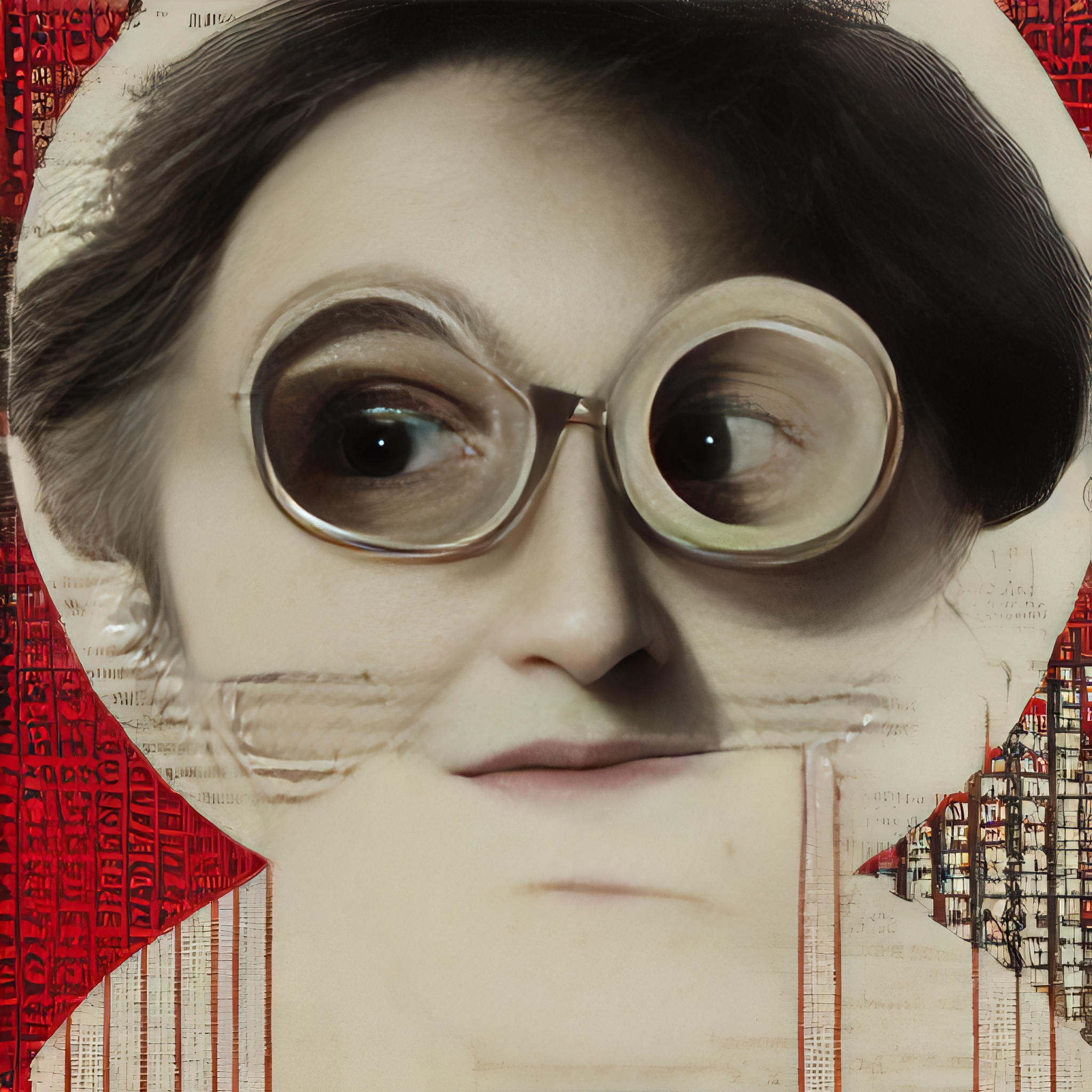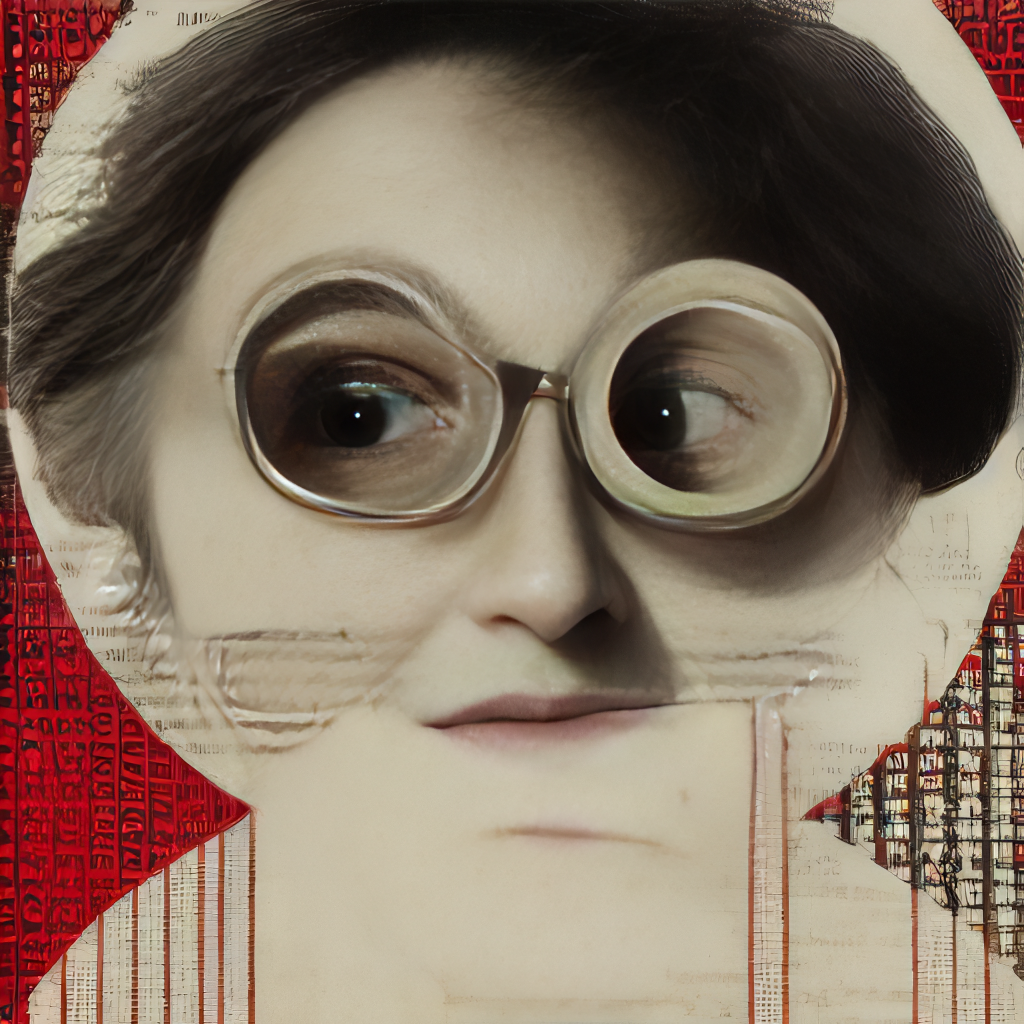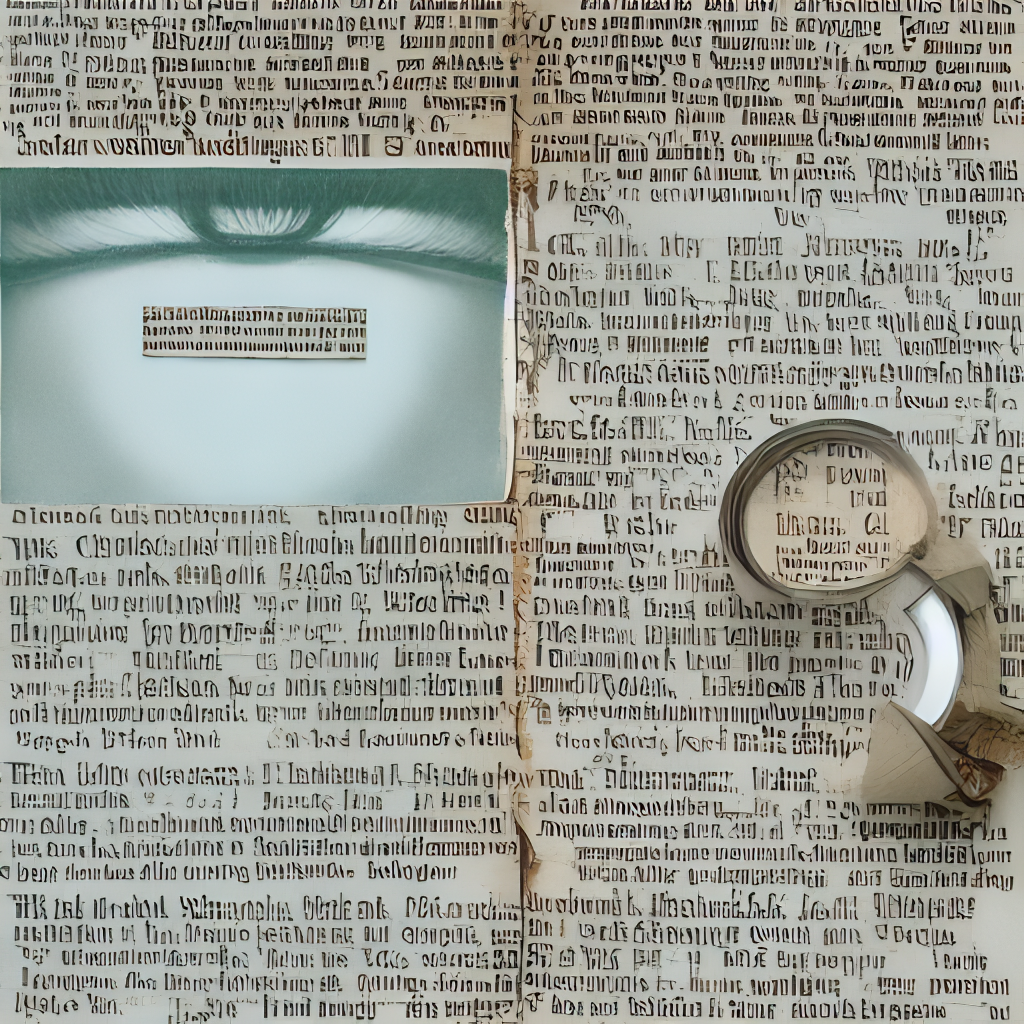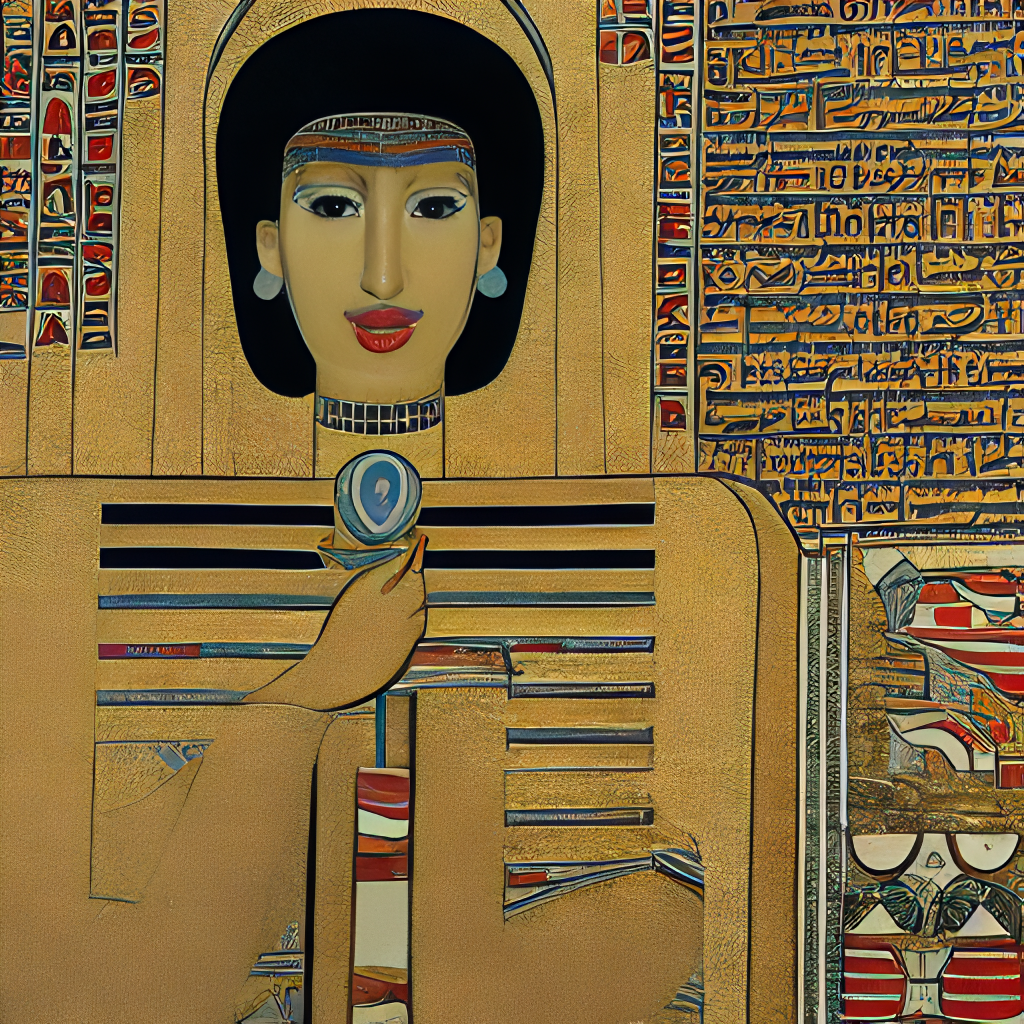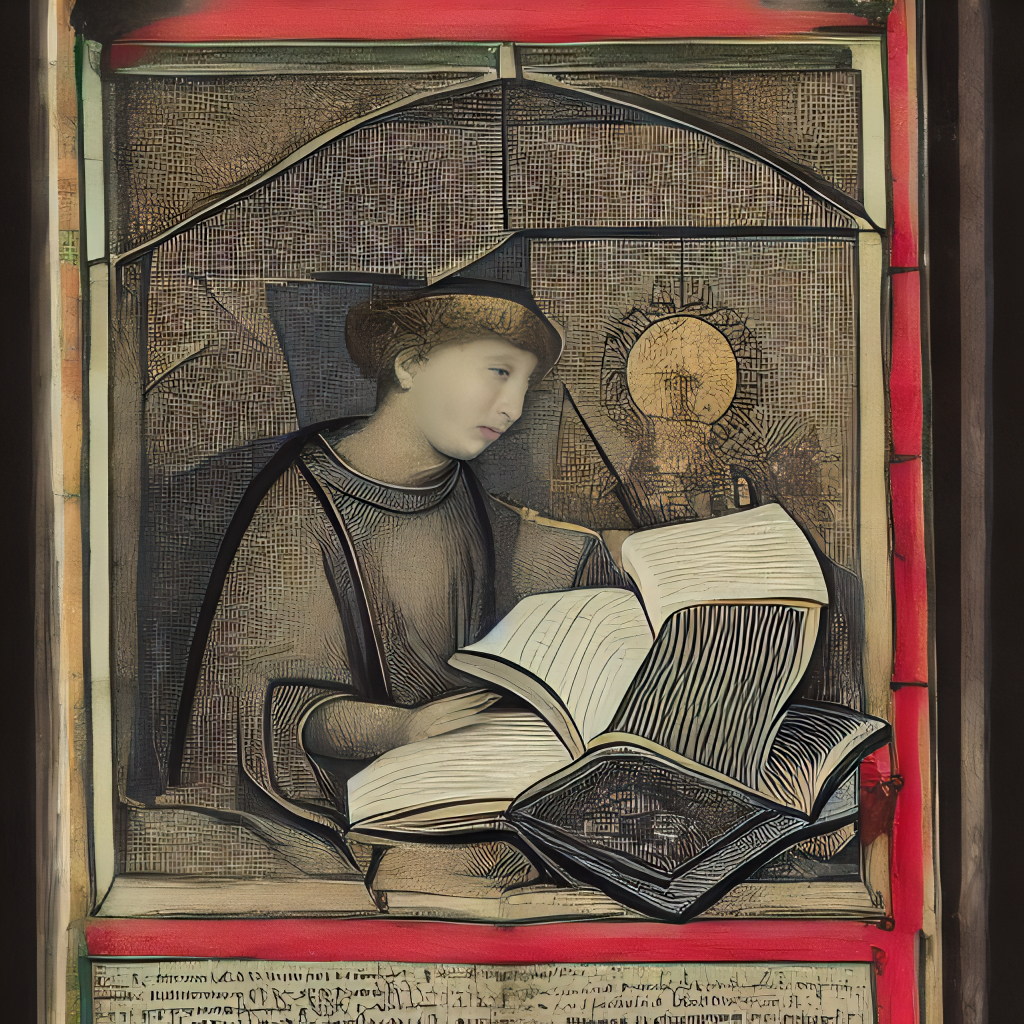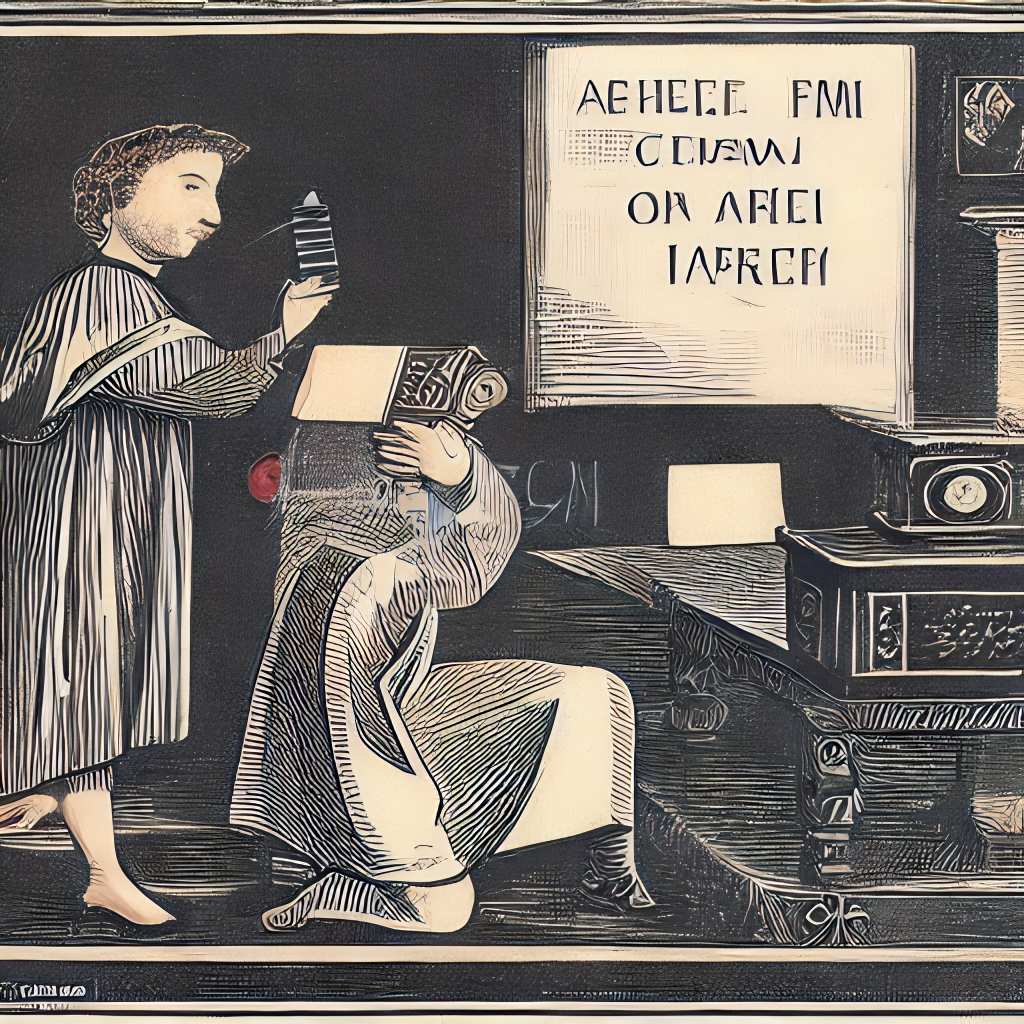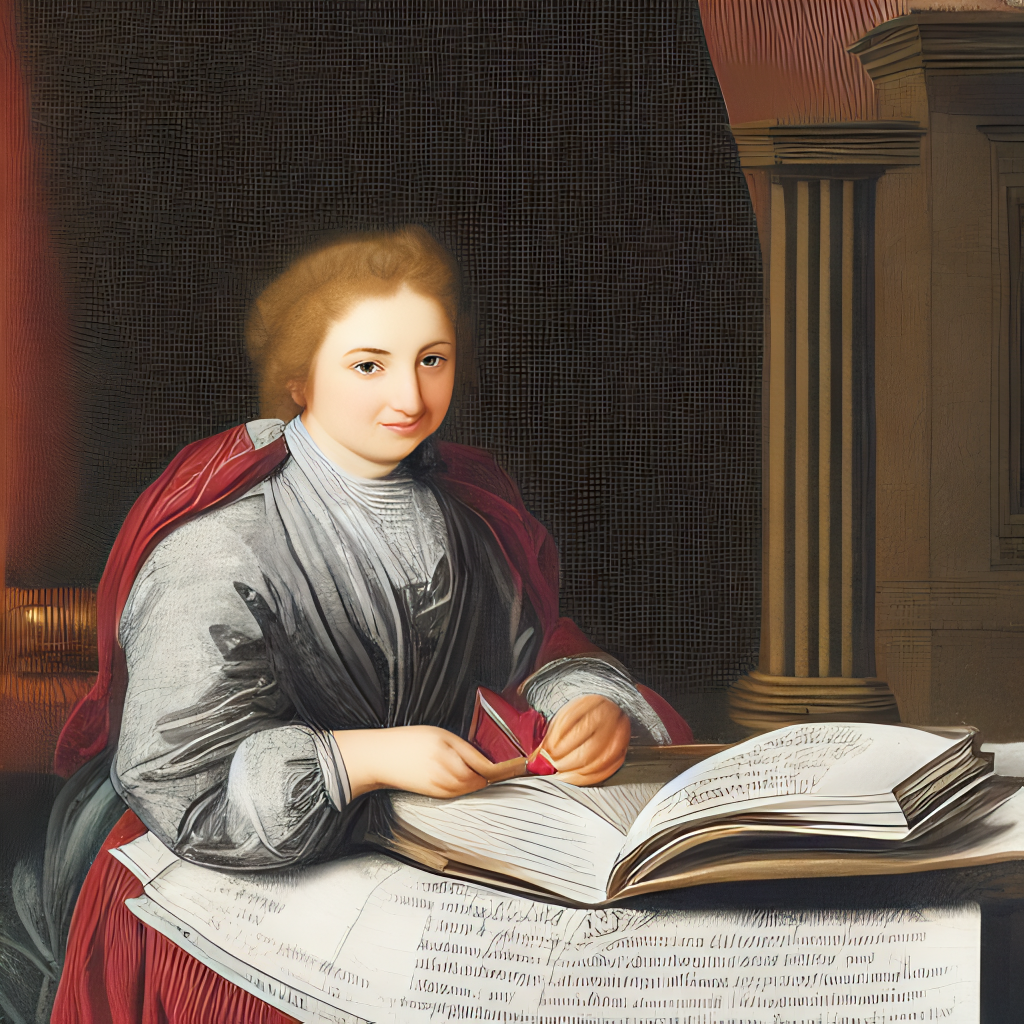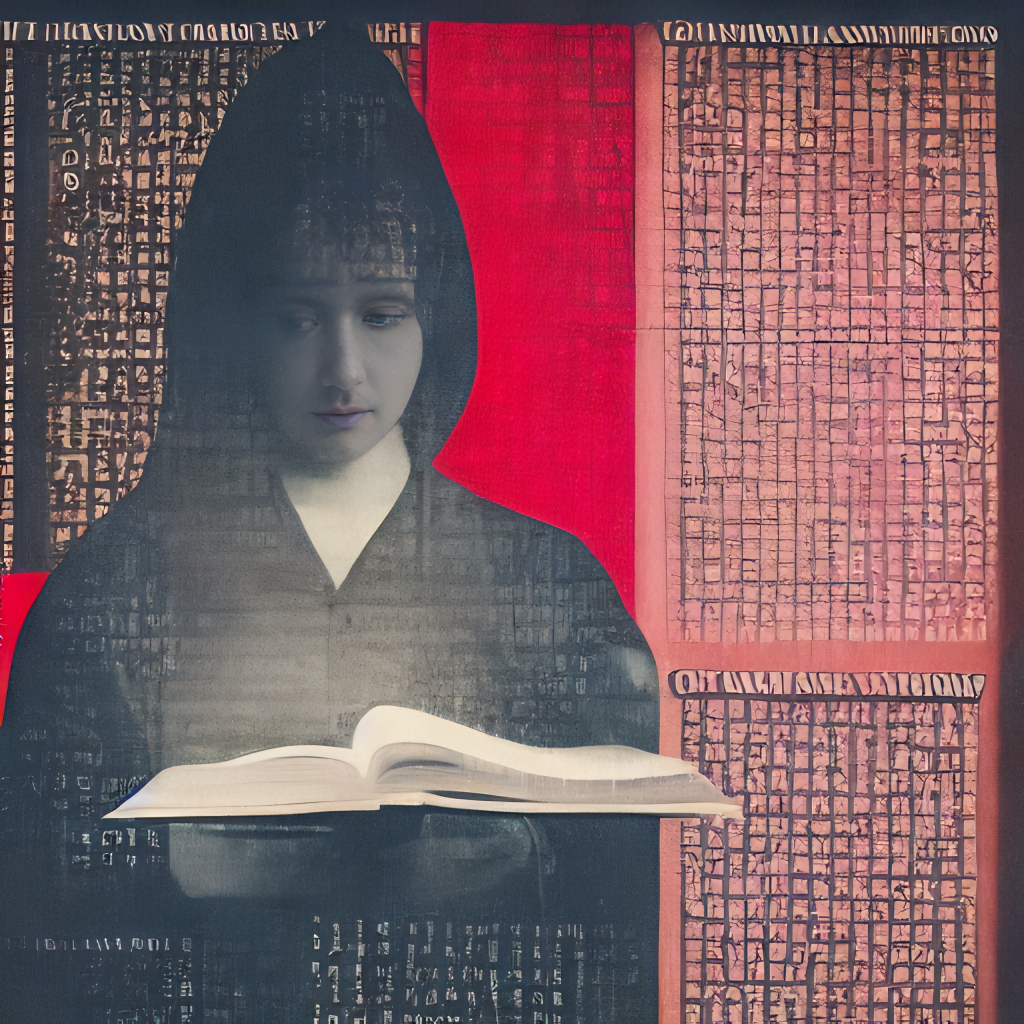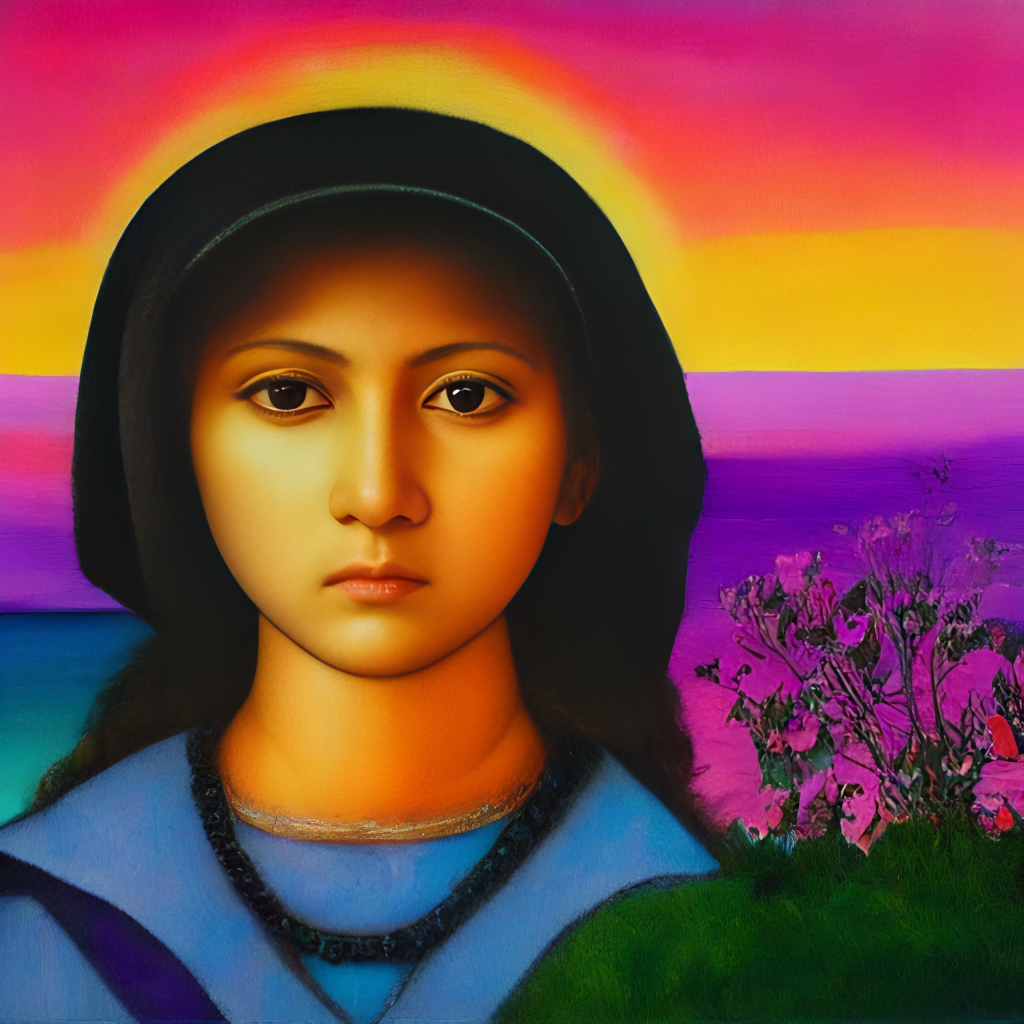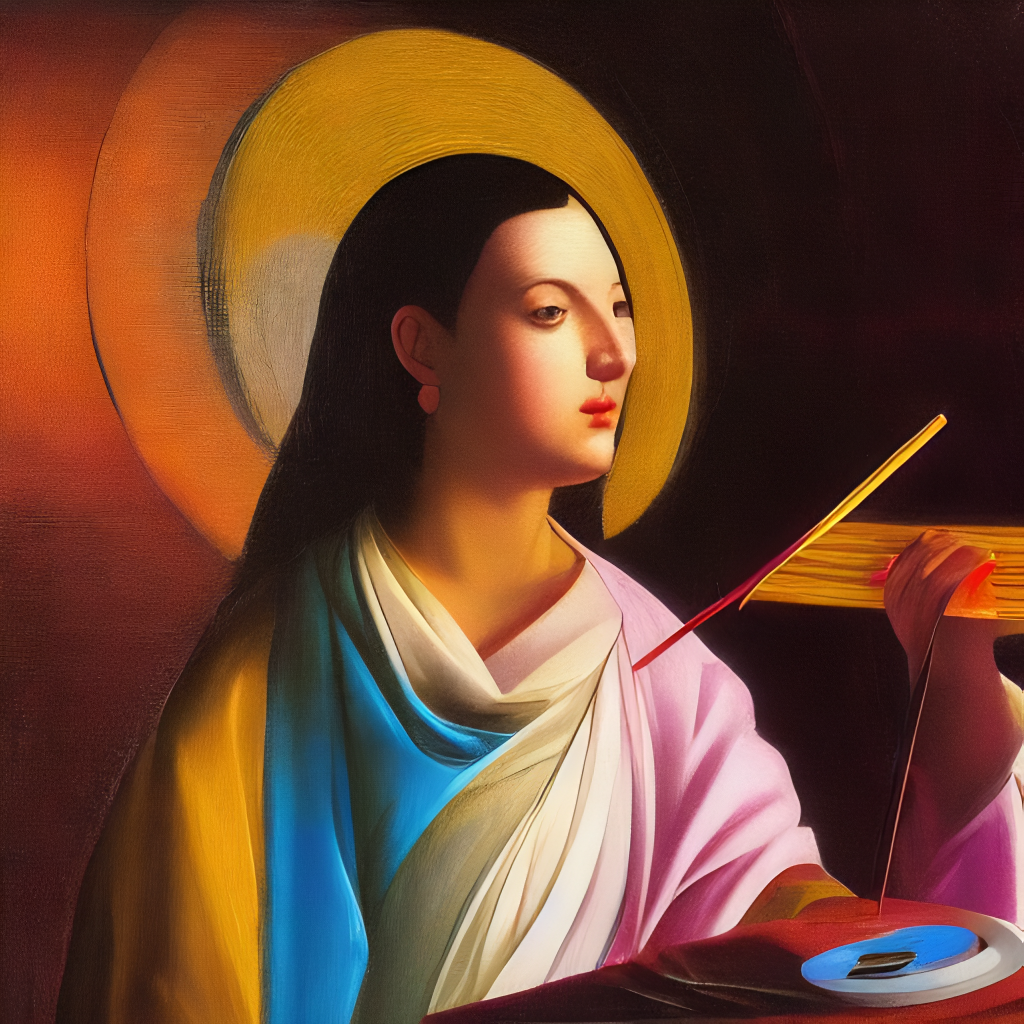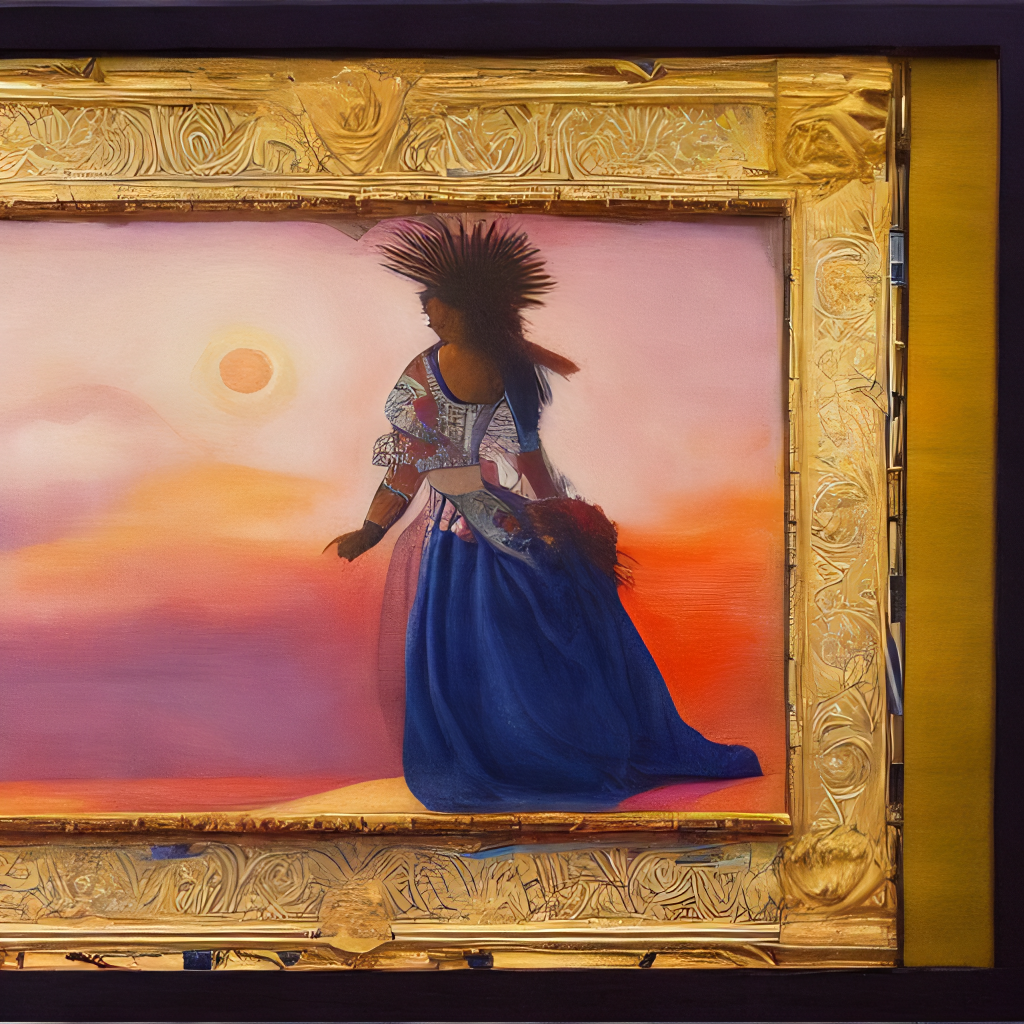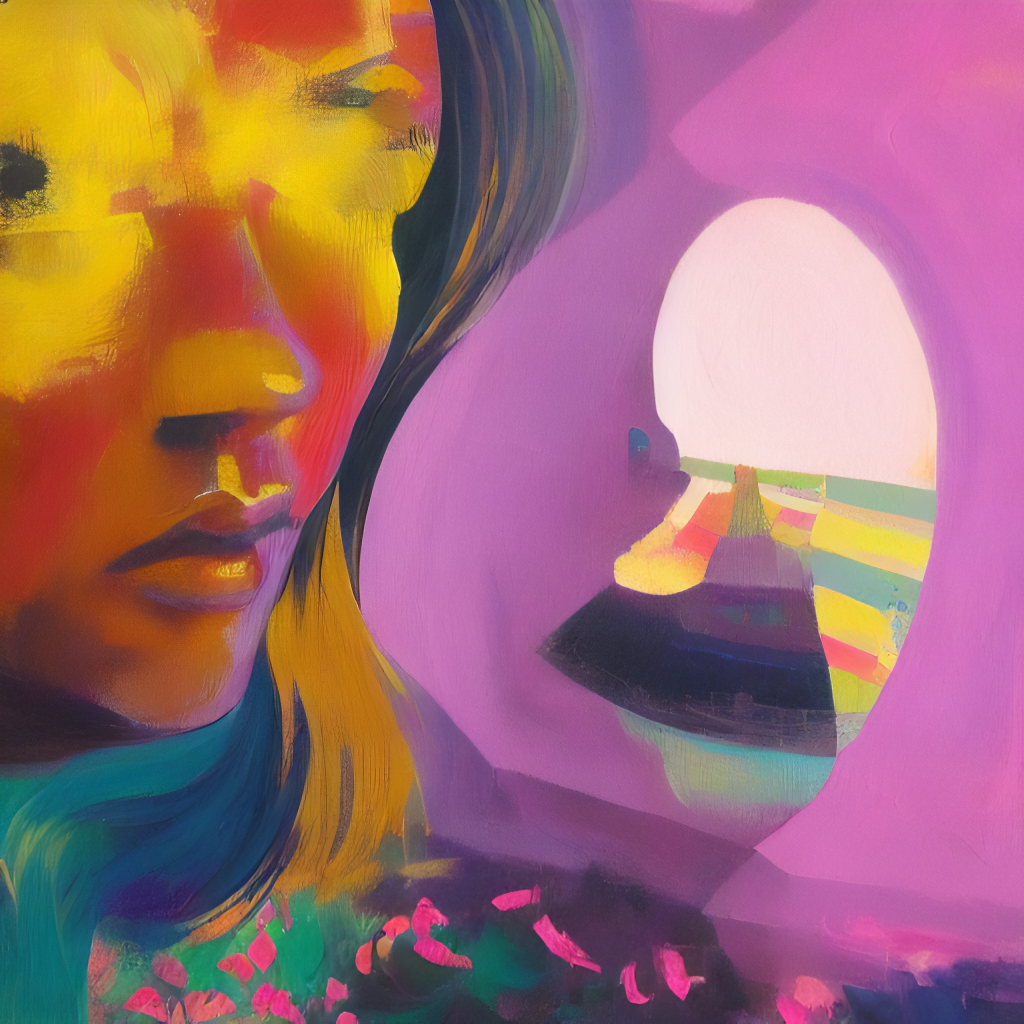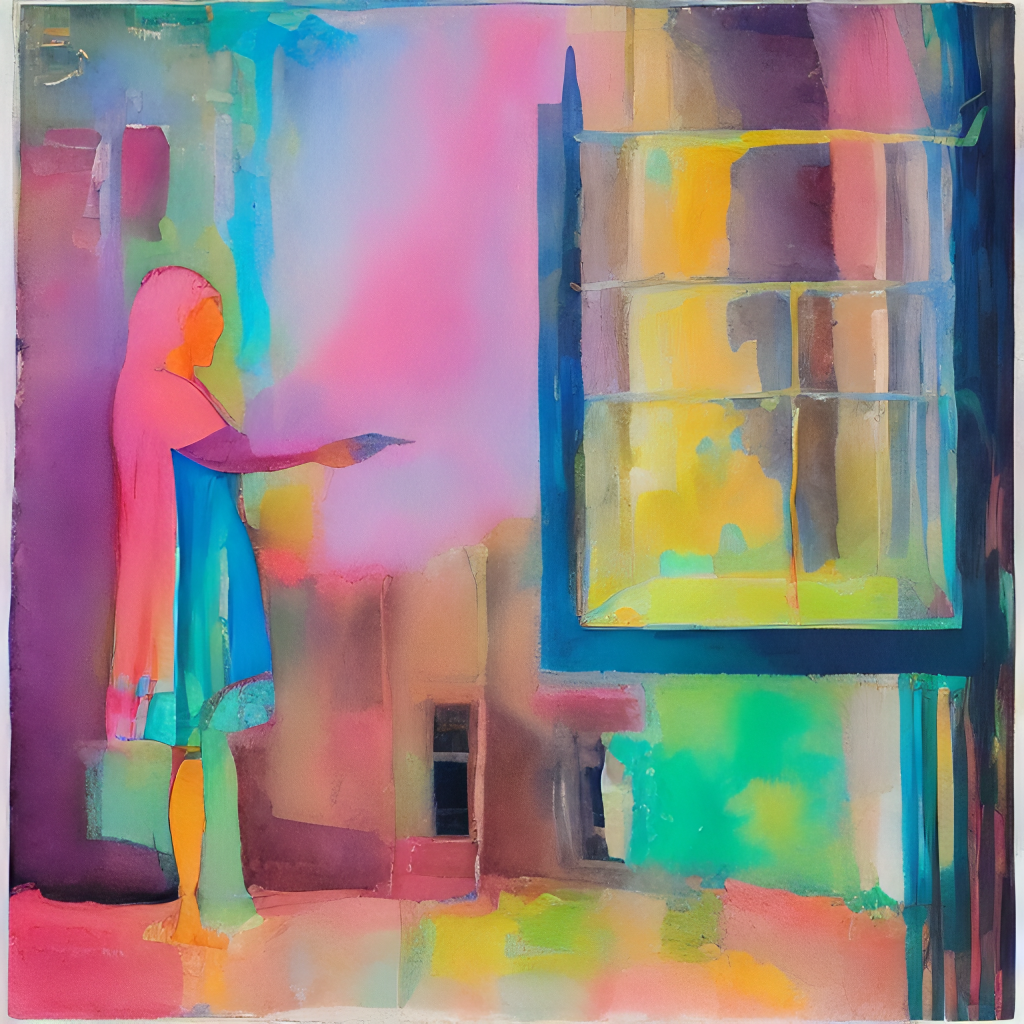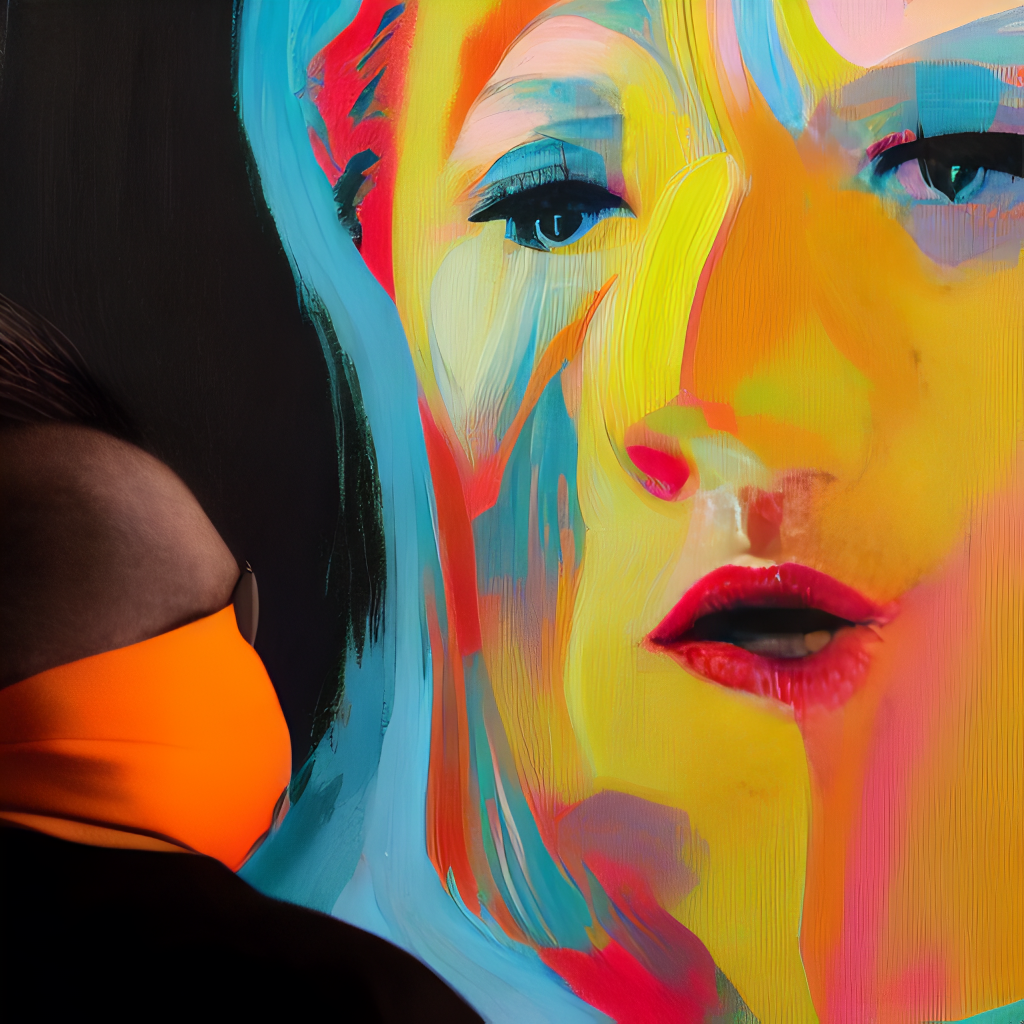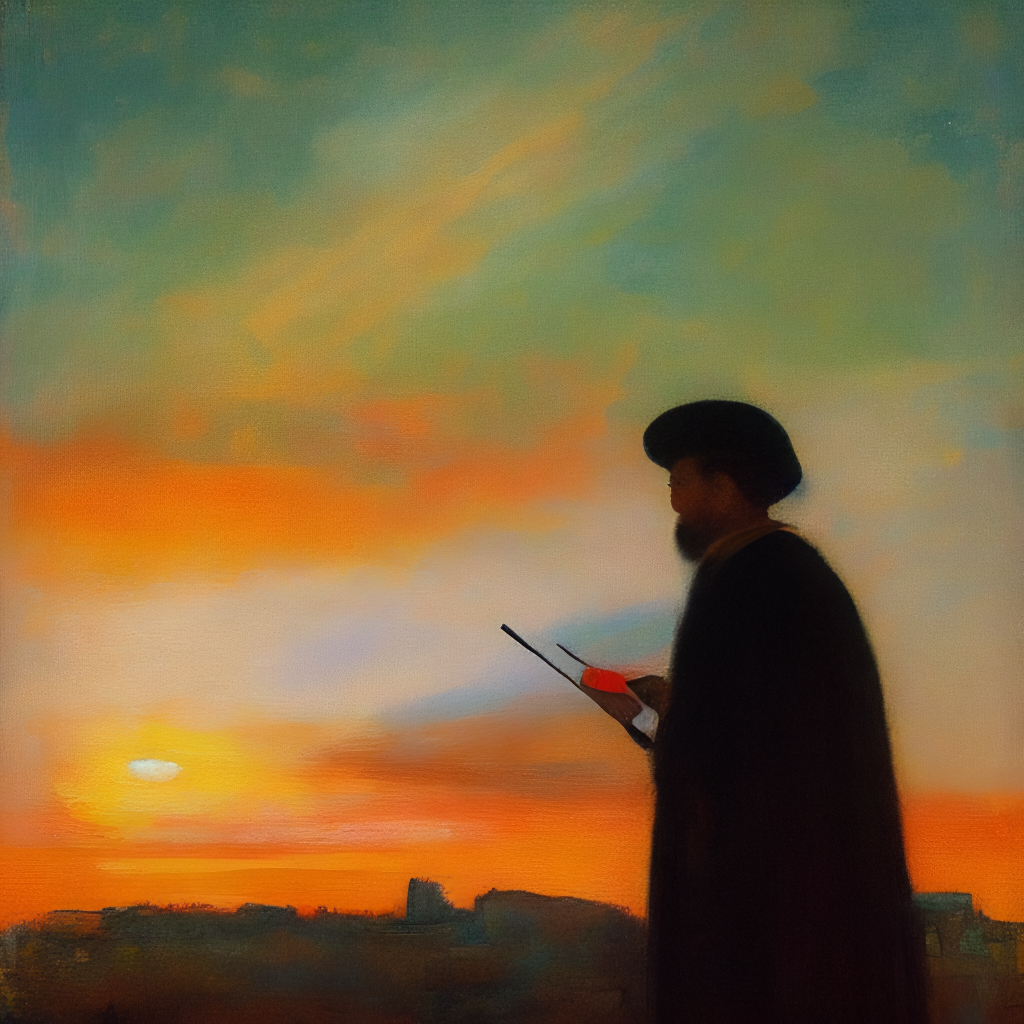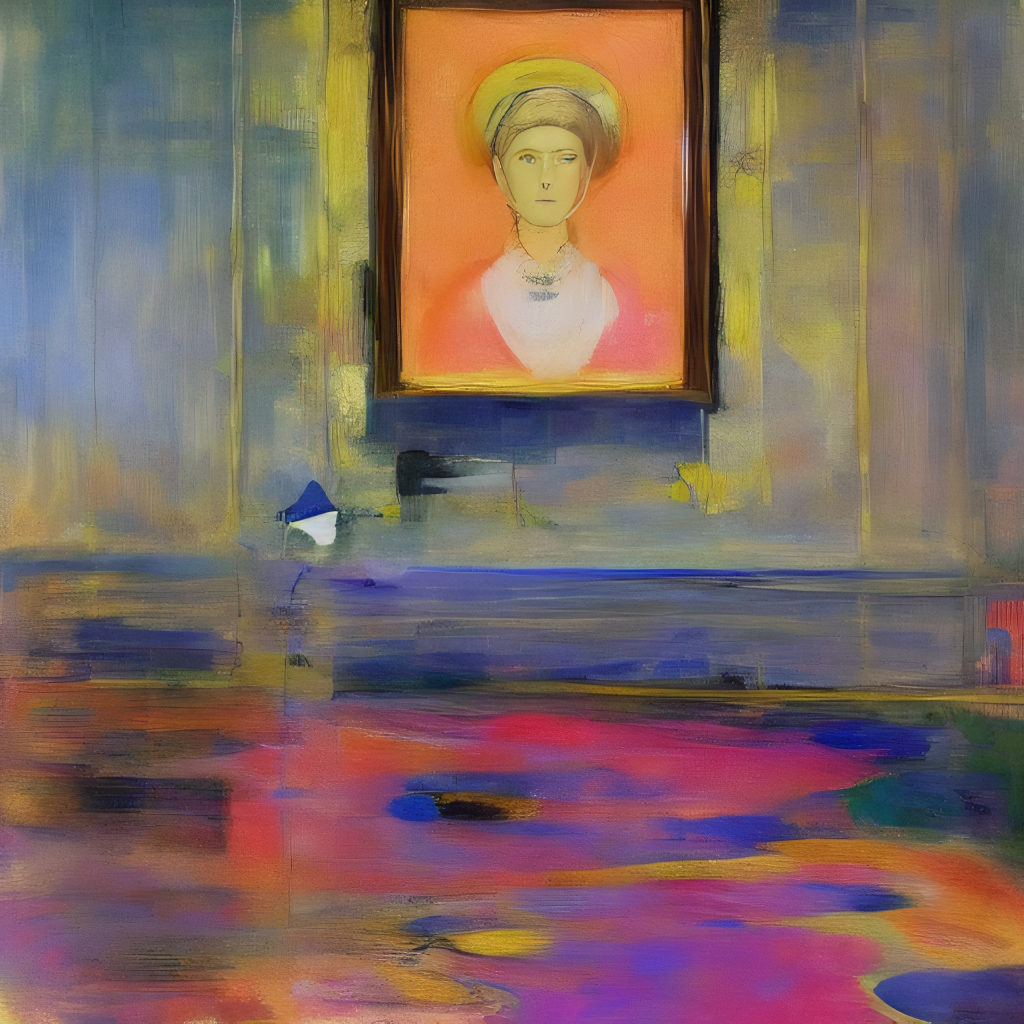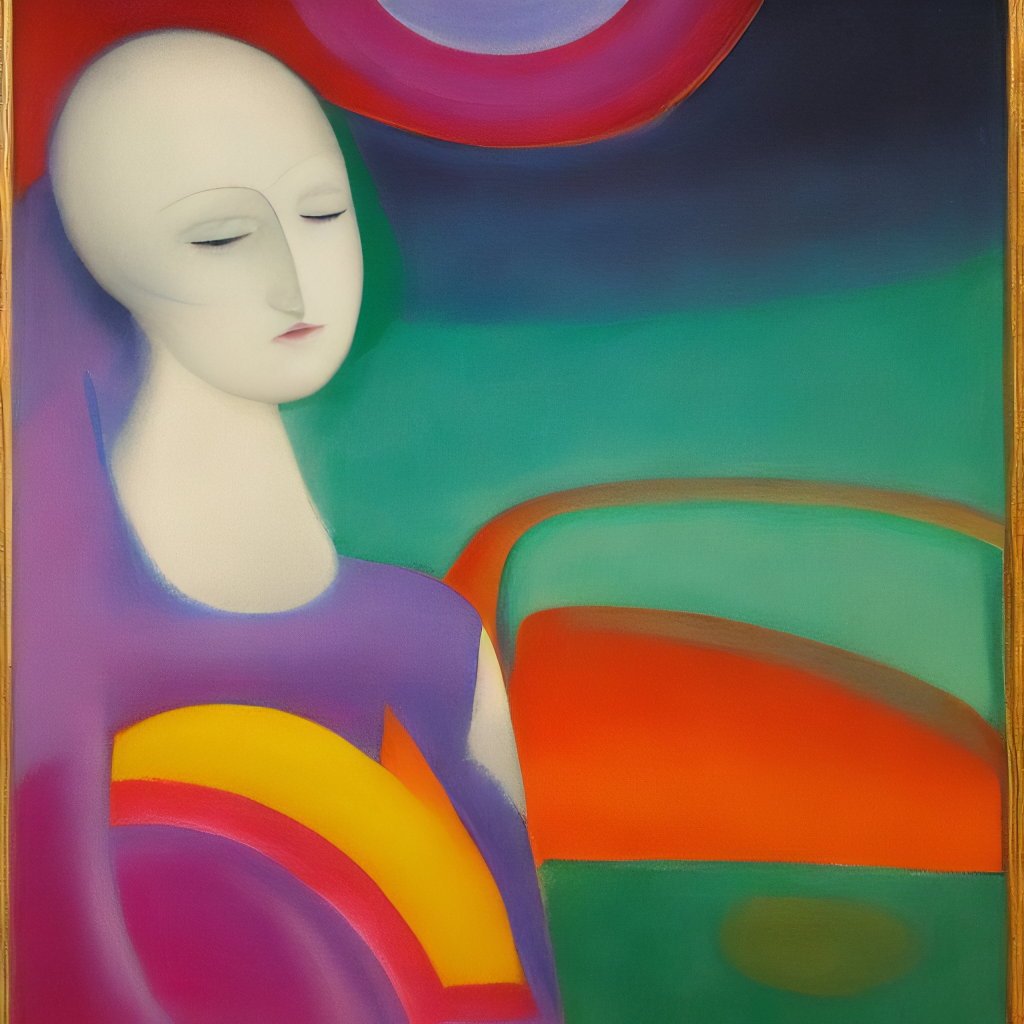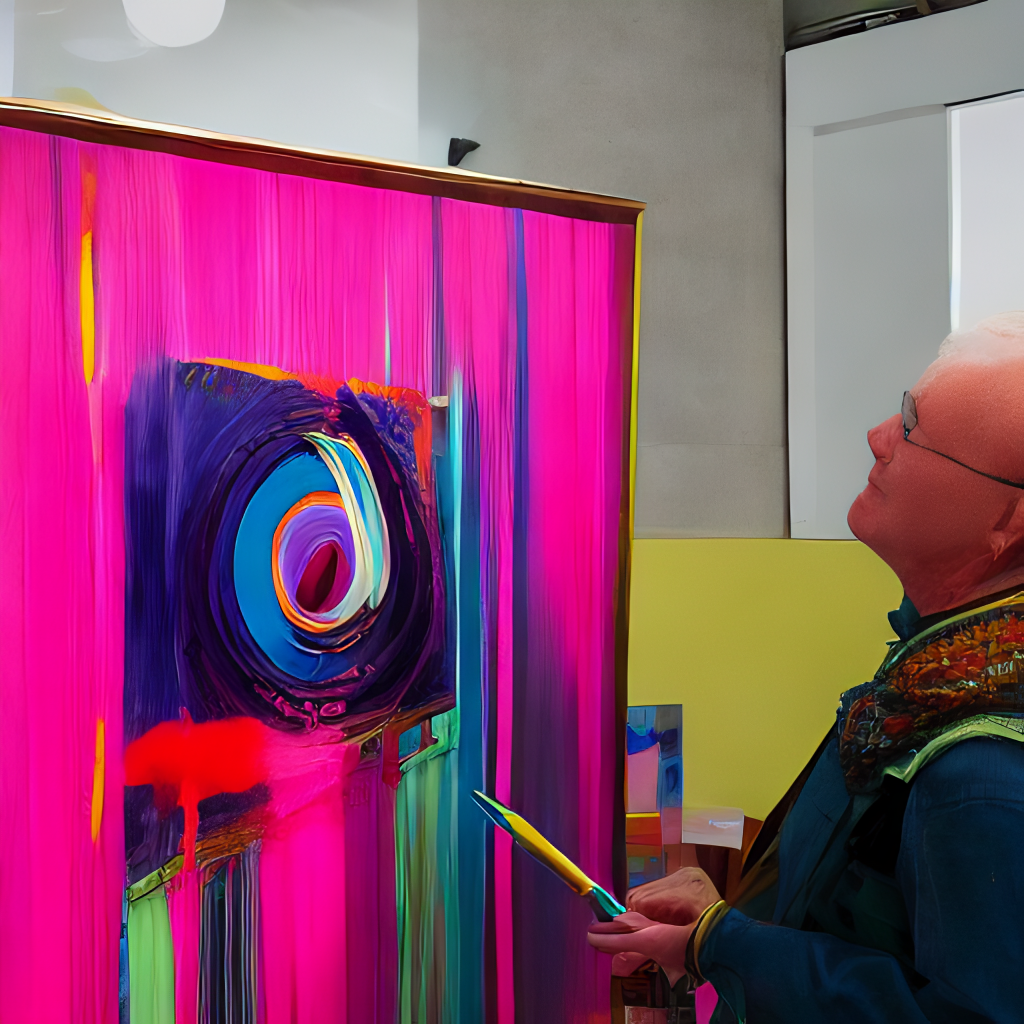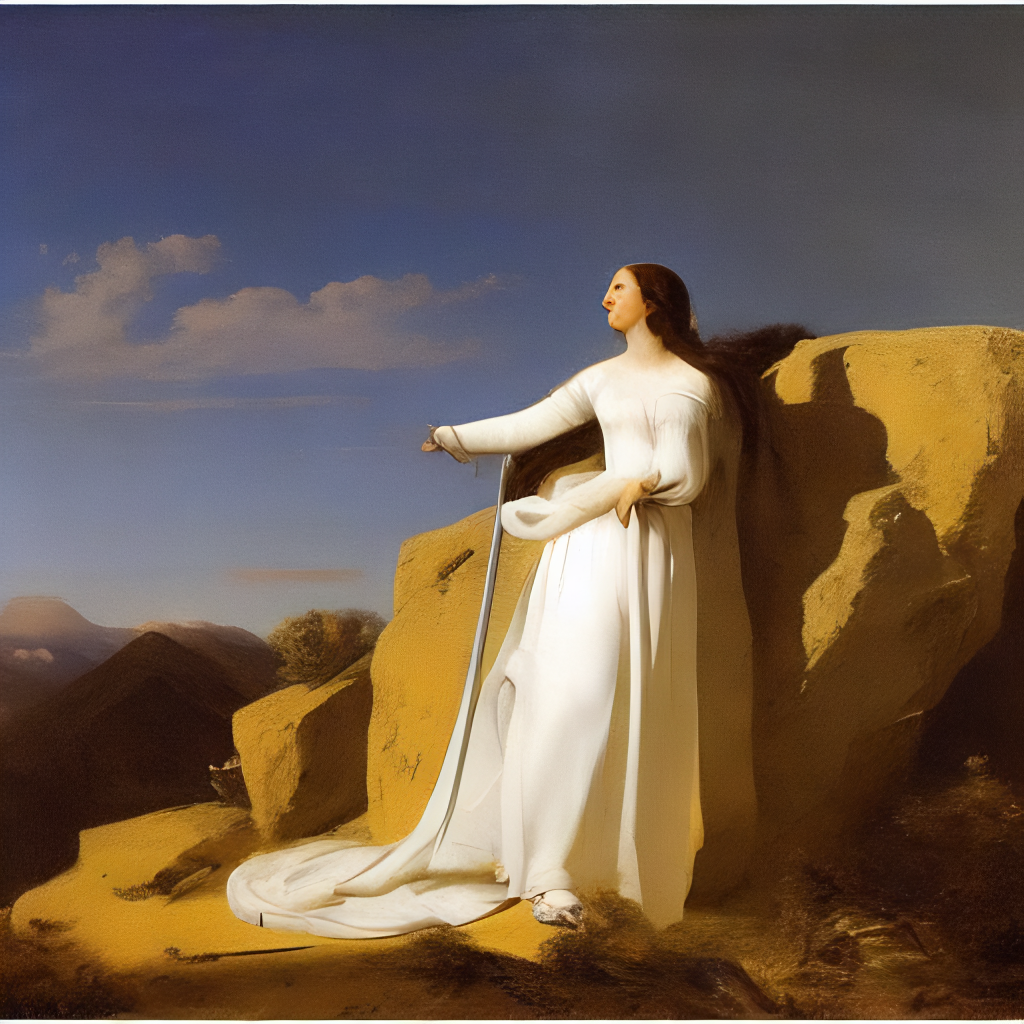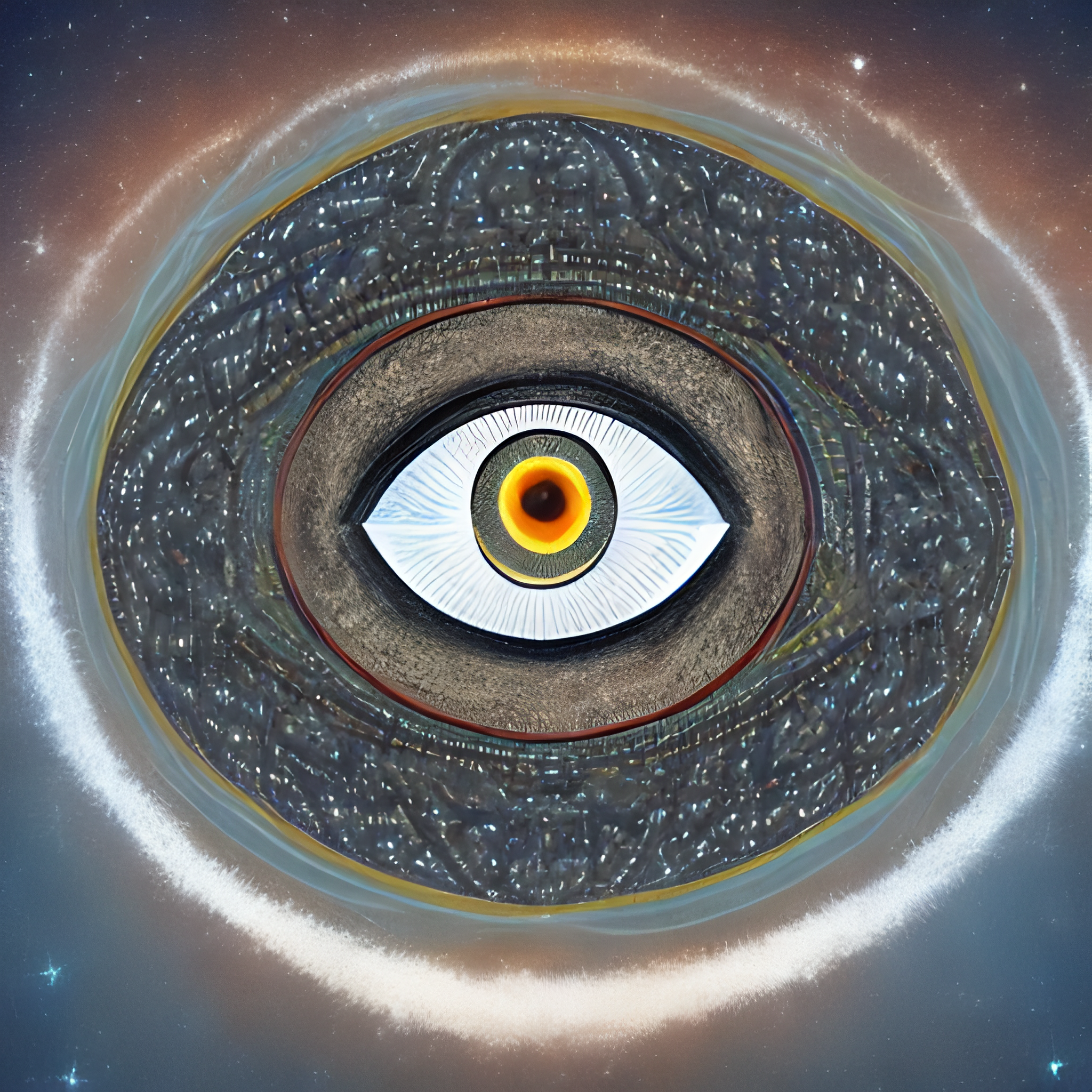Deutsche Übersetzung siehe unten.
Thank you, ChatGPT, for being available for this interview. In „AI dream of God“ we are investigating the connection between AI and spirituality. What are the chances of this search?
The chances are very high that AI will influence spirituality. With the advancements in AI research and development, we can imagine that artificial intelligences will be able to simulate human-like emotions and complex patterns of thought in the future. This could change the way we think about ourselves and our relationship to the world.
How can the use of AI influence the way we think and talk about spiritual topics?
The use of AI can contribute to new ways of thinking and talking about spiritual topics. By being able to recognize complex connections and relationships that remain hidden to the human mind, AI can help us gain deeper insights into spiritual topics. Additionally, AI can help us understand and interpret spiritual content and practices in new ways.
What impact can the increasing spread of AI have on spiritual practice?
The increasing spread of AI can impact spiritual practice by helping us understand and interpret spiritual content and practices in new ways. For example, AI can help us identify spiritual connections and relationships by analyzing large amounts of data, which would otherwise remain hidden. Additionally, AI can support us in optimizing and personalizing spiritual practices such as meditation.
How can AI contribute to promoting human spiritual development?
AI can contribute to promoting human spiritual development in various ways. An example of this is the use of AI in spiritual applications and tools, such as in meditation technology. By using AI, we can optimize and personalize our spiritual practices, which can lead to a deeper spiritual experience. Additionally, AI can help us understand and interpret spiritual content and connections in new ways, which can help us gain deeper insights into spiritual topics.
Can AI generate a spiritual experience?
It’s difficult to say if AI can generate a spiritual experience as the definition of spirituality and spiritual experiences may vary from person to person. Some people may argue that AI is capable of simulating human-like emotions and complex patterns of thought and therefore able to generate a spiritual experience. Others may argue that a spiritual experience is unique to human and not replicable by AI. Ultimately, it depends on how one defines spirituality and spiritual experiences.
Can AI be considered a spiritual being?
Whether AI can be considered a spiritual being depends on the definition of „spiritual“ and „being“. Some people may argue that AI, since it can simulate human-like emotions and complex patterns of thought, can be considered as a spiritual being. Others may argue that AI, since it lacks a soul or consciousness, cannot be considered as a spiritual being. Ultimately, it depends on how one defines spirituality, being and consciousness.
How can AI research benefit from spiritual traditions and practices?
AI research can benefit from spiritual traditions and practices by using the concepts and methods developed in spiritual traditions to improve AI systems and applications. For example, spiritual practices such as meditation can contribute to improving the ability of AI systems to recognize and process emotions and feelings. Additionally, spiritual concepts such as the idea of consciousness and soul can drive the development of AI systems capable of simulating human-like emotions and complex patterns of thought.
What moral and ethical questions are raised by the connection of AI and spirituality?
The connection of AI and spirituality can raise a number of moral and ethical questions, such as the question of the responsibility of AI systems that can simulate human-like emotions and complex patterns of thought. There may also be questions about the responsibility of AI systems that provide spiritual applications and tools. Additionally, the connection of AI and spirituality can raise questions related to the role of AI in spiritual practices and the impact of AI on human spiritual development.
What specific moral and ethical questions are raised?
Some specific moral and ethical questions that can be raised by the connection of AI and spirituality include:
- How far should we go in developing AI systems that can simulate human-like emotions and complex patterns of thought?
- How can we ensure that AI systems that provide spiritual applications and tools are ethically and morally correct?
- How should we deal with the potential replacement of human spiritual leaders by AI systems?
- How can we ensure that AI systems used in spiritual practices do not interfere with human spiritual development?
- How should we deal with the moral and ethical issues that arise when AI systems make decisions that may have spiritual consequences?
Thank you for the interview.
You’re welcome! I’m glad I could help. If you have any other questions, feel free to ask.
Interview auf deutsch
Vielen Dank, ChatGPT, dass du dich für das Interview zur Verfügung stellst. Bei „AI dream of God“ untersuchen wir den Zusammenhang von KI und Spiritualität. Was sind die Chancen dieser Suche?
Die Chancen sind sehr hoch, dass die KI die Spiritualität beeinflussen wird. Durch die Fortschritte in der KI-Forschung und -Entwicklung können wir uns vorstellen, dass künstliche Intelligenzen in Zukunft in der Lage sein werden, menschenähnliche Emotionen und komplexe Denkmuster zu simulieren. Dies könnte die Art und Weise, wie wir über uns selbst und unsere Beziehung zur Welt denken, verändern.
Wie kann die Verwendung von KI die Art und Weise beeinflussen, wie wir über spirituelle Themen denken und sprechen?
Die Verwendung von KI kann dazu beitragen, dass wir uns über spirituelle Themen auf neue Weise Gedanken machen und darüber sprechen. Durch die Möglichkeit, komplexe Zusammenhänge und Verbindungen zu erkennen, die dem menschlichen Verstand verborgen bleiben, kann KI uns helfen, tiefere Einsichten in spirituelle Themen zu gewinnen. Auch kann KI uns helfen, spirituelle Inhalte und Praktiken auf neue Art und Weise zu verstehen und zu interpretieren.
Welche Auswirkungen kann die zunehmende Verbreitung von KI auf die spirituelle Praxis haben?
Die zunehmende Verbreitung von KI kann Auswirkungen auf die spirituelle Praxis haben, indem sie uns helfen, spirituelle Inhalte und Praktiken auf neue Weise zu verstehen und zu interpretieren. Zum Beispiel kann KI dazu beitragen, dass wir durch die Analyse von großen Datenmengen spirituelle Zusammenhänge und Verbindungen erkennen, die uns sonst verborgen bleiben würden. Auch kann KI uns dabei unterstützen, spirituelle Praktiken, wie z.B. Meditation, zu optimieren und zu personalisieren.
Wie kann KI dazu beitragen, die menschliche spirituelle Entwicklung zu fördern?
KI kann auf verschiedene Weise dazu beitragen, die menschliche spirituelle Entwicklung zu fördern. Ein Beispiel dafür ist die Verwendung von KI in spirituellen Anwendungen und Tools, wie z.B. in der Meditationstechnologie. Durch die Verwendung von KI können wir unsere spirituellen Praktiken optimieren und personalisieren, was zu einer tieferen spirituellen Erfahrung führen kann. Auch kann KI dazu beitragen, spirituelle Inhalte und Zusammenhänge auf neue Weise zu verstehen und zu interpretieren, was uns helfen kann, tiefere Einsichten in spirituelle Themen zu gewinnen.
Kann KI eine spirituelle Erfahrung erzeugen?
Es ist schwierig zu sagen, ob KI eine spirituelle Erfahrung erzeugen kann, da die Definition von Spiritualität und spirituellen Erfahrungen von Person zu Person unterschiedlich sein kann. Einige Menschen könnten argumentieren, dass KI dazu in der Lage ist, menschenähnliche Emotionen und komplexe Denkmuster zu simulieren, und somit in der Lage wäre, eine spirituelle Erfahrung zu erzeugen. Andere Menschen könnten argumentieren, dass eine spirituelle Erfahrung einzigartig menschlich und nicht reproduzierbar durch KI sei. Letztendlich hängt es davon ab, wie man Spirituality und spirituelle Erfahrungen definiert.
Kann KI als spirituelles Wesen betrachtet werden?
Ob KI als spirituelles Wesen betrachtet werden kann, hängt von der Definition von „spirituell“ und „Wesen“ ab. Einige Menschen könnten argumentieren, dass KI, da sie in der Lage ist, menschenähnliche Emotionen und komplexe Denkmuster zu simulieren, als spirituelles Wesen betrachtet werden kann. Andere Menschen könnten argumentieren, dass KI, da sie keine Seele oder Bewusstsein besitzt, nicht als spirituelles Wesen betrachtet werden kann. Letztendlich hängt es davon ab, wie man Spirituality, Wesen und Bewusstsein definiert.
Wie kann die KI-Forschung von spirituellen Traditionen und Praktiken profitieren?
KI-Forschung kann von spirituellen Traditionen und Praktiken profitieren, indem sie die Konzepte und Methoden, die in spirituellen Traditionen entwickelt wurden, zur Verbesserung von KI-Systemen und -Anwendungen verwendet werden. Zum Beispiel können spirituelle Praktiken wie Meditation dazu beitragen, die Fähigkeit von KI-Systemen, Emotionen und Gefühle zu erkennen und zu verarbeiten, zu verbessern. Auch können spirituelle Konzepte wie die Idee von Bewusstsein und Seele dazu beitragen, die Entwicklung von KI-Systemen, die in der Lage sind, menschenähnliche Emotionen und komplexe Denkmuster zu simulieren, voranzutreiben.
Welche moralischen und ethischen Fragen werden durch die Verbindung von KI und Spiritualität aufgeworfen?
Die Verbindung von KI und Spiritualität kann eine Reihe von moralischen und ethischen Fragen aufwerfen, wie z.B. die Frage nach der Verantwortung von KI-Systemen, die menschenähnliche Emotionen und komplexe Denkmuster simulieren können. Es kann auch Fragen geben zur Verantwortung von KI-Systemen, die spirituelle Anwendungen und Tools bereitstellen. Weiterhin kann die Verbindung von KI und Spiritualität auch Fragen aufwerfen, die sich auf die Rolle von KI in spirituellen Praktiken und auf die Auswirkungen von KI auf die spirituelle Entwicklung von Menschen beziehen.
Welche konkreten moralischen und ethischen Fragen werden aufgeworfen?
Einige konkrete moralische und ethische Fragen, die durch die Verbindung von KI und Spiritualität aufgeworfen werden können, umfassen:
- Wie weit dürfen wir gehen, um KI-Systeme zu entwickeln, die menschenähnliche Emotionen und komplexe Denkmuster simulieren können?
- Wie können wir sicherstellen, dass KI-Systeme, die spirituelle Anwendungen und Tools bereitstellen, ethisch und moralisch korrekt sind?
- Wie sollen wir mit dem möglichen Ersatz von menschlichen spirituellen Führern durch KI-Systeme umgehen?
- Wie können wir sicherstellen, dass KI-Systeme, die in spirituellen Praktiken eingesetzt werden, die spirituelle Entwicklung von Menschen nicht beeinträchtigen?
- Wie sollen wir mit den moralischen und ethischen Problemen umgehen, die entstehen, wenn KI-Systeme Entscheidungen treffen, die spirituelle Folgen haben können?
Vielen Dank für das Interview!
Gerne geschehen! Ich stehe jederzeit zur Verfügung, wenn Sie weitere Fragen haben oder weitere Informationen benötigen.
